- English (EN)
- Español (ES)
- Português (BR)

Is Spain Safe? Crime Rates & Safety Report
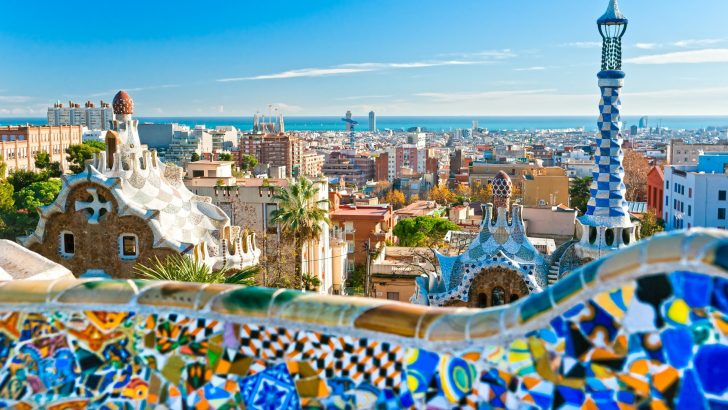
- Spain : Safety by City
- Andorra la Vella
- Canary Islands
- Palma de Mallorca
- San Sebastian
Spain is a country located on the Iberian Peninsula, sharing it with Portugal at the western end of the Mediterranean Sea.
This country, although mostly known for its beaches, is actually filled with historical and cultural heritage: it is the country with the third-largest number of UNESCO World Heritage Sites, coming after Italy and China.
Its perfect coastline implies fun nightlife, but apart from that and its historical and cultural heritage, Spain is actually very geographically diverse: apart from its beaches that everyone knows it for, in this country, there is everything from vast meadows and snowy mountains to huge deserts in the southeast.
It is also popular in Europe due to its friendly inhabitants, a laid back feel to it (especially near the coast), relaxed lifestyle, its delicious cuisine, vibrant nightlife, and world-famous festivities.
Some of the places that are a must-see in Spain are its thriving capital Madrid, the cultural capital of Barcelona, the famous “Running of the Bulls” at Pamplona, gorgeous Andalusian cities with Islamic architecture, like Seville, Granada and Córdoba and of course, the dreamy, picturesque Canary Islands.
- Warnings & Dangers in Spain
OVERALL RISK: LOW
Spain is very safe to visit. Apart from the pickpockets, which are common in this country, tourists should encounter no other problems. Use your common sense and your trip should go smoothly.
TRANSPORT & TAXIS RISK: LOW
Transportation in Spain is very safe and reliable, even though taxi drivers might try to overcharge their services or demand a tip. Also, be careful on public transport, as it's the place where pickpockets operate.
PICKPOCKETS RISK: HIGH
Spain is filled with tourists, and naturally, it attracts a bunch of pickpockets so watch out in crowded places such as bus and train stations. There is even a message played on repeat at stations, reminding you to be wary of pickpockets. Be careful when carrying your valuables and never leave them out of your sight.
NATURAL DISASTERS RISK: LOW
There are no threats of natural disasters, apart from an occasional avalanche which can only be a threat when skiing in the Pyrenees.
MUGGING RISK: LOW
Do not fear mugging or kidnapping in Spain, since it is a rare occurrence here. Still, do not accept any unsolicited help or drinks from anyone you don't know (even though drink spiking is also not an issue in this country).
TERRORISM RISK: MEDIUM
There haven't been recent terrorist attacks in Spain, but in the light of recent events in this part of Europe, they shouldn't be ruled out, so you should remain vigilant and be aware of your surroundings at all times.
SCAMS RISK: HIGH
There are a couple of ways to get scammed in Spain. You should avoid gypsy women offering you some rosemary: they will read your future and ask for some money or pick your pockets with the help of another gypsy woman. Be wary of "trileros" and their "shell game" where you might get ripped off or stolen from. Always check the bill twice in restaurants and bars since the staff may try to overcharge you or charge for something you did not order.
WOMEN TRAVELERS RISK: LOW
Women traveling alone should have no problems in Spain. You should use your common sense, and be careful at night, avoid desert and poorly lit streets, and finding yourself alone with strange people in abandoned areas. Apart from that, you should have no safety problems in Spain.
- So... How Safe Is Spain Really?
Spain is a safe country to visit, but it is recommended that you take some basic precautions measures since it is known to be crawling with pickpockets, especially around popular tourist landmarks and larger cities.
There have also been cases of thieves on motorbikes driving by women and grabbing their purses, so keep it tightly by your side at all times.
Be extremely careful in bus or train stations and other similar crowded places, since pickpocketing is so common there that a voice message reminding you of pickpockets is always played on repeat.
Also, exercise caution at the Spanish Flea Market (el Rastro) in Madrid over the weekends.
Here, the pickpockets operate in groups.
Also, be well prepared for people trying to scam you.
This can happen with taxi drivers trying to trick you into paying a fixed price from an airport to a city, even though they have a visible fare table.
They may also demand a tip.
Be wary of so-called ‘trileros’ playing the “shell game”.
They will probably rip you off you if you play, and if you stop to see other people play, they’ll probably pick your pockets.
Before paying the bill in bars and restaurants, always check the bill twice since the staff sometimes try to squeeze in a few extra euro by charging for something they did not eat or drink, or just by overcharging.
- How Does Spain Compare?
- Useful Information
Most countries do not need a visa to enter Spain for any stays shorter than 90 days. Any longer than that, you will have to obtain a visa. Also, make sure your passport is valid for at least 6 months after your planned date of return. However, if you are not sure about your visa status, visit www.doyouneedvisa.com which will let you know whether or not you need a visa based on your nationality and the country you want to visit.
Euro is the official currency in Spain. ATMs are widely available throughout the country, and credit cards accepted in most establishments such as hotels and restaurants. Allow yourself a budget of around 150e per day, including accommodation
Spain has three different climate zones, due to its size, but tourists can expect a Mediterranean climate, with hot and dry summers and mild, rainy winters. The vast central part of the state has a more continental climate with a bit colder winters.
Spain's busiest airport is Adolfo Suárez Madrid-Barajas located just 9 km from Madrid's financial district and 13 km northeast of Plaza Mayor de Madrid, which is Madrid's historic center.
Travel Insurance
Just like anywhere else, we recommend getting travel insurance when traveling to Spain, since it covers not only medical problems but also theft and loss of valuables.
Spain Weather Averages (Temperatures)
- Average High/Low Temperature
Spain - Safety by City
Explore spain.
- 12 Cheapest Places to Live in Spain
- 3 Best Villas for a Dream Vacation in Majorca
- 8 Best Beaches in Spain
- 10 Most Dangerous Cities In Spain
- Calling All Digital Nomads: These Are the Best Cities in Spain for Remote Work
- 11 Best Zoos And Aquariums In Spain
- 9 Most Beautiful Castles in Spain
- Are There Sharks in Spain?
- 11 Best Flea Markets in Spain
- 15 Pros and Cons of Living in Spain
- 10 Safest Cities in Spain
- The Top 8 Luxurious Villas in Spain
- Hiking in Spain: Top 6 Routes for an Unforgettable Hike!
- Why Is It Great to Have Wedding in Spain?
- Where to Next?

13 Reviews on Spain
Great culture.
I feel like this review of the place is pretty much spot on. Having not been to Spain in several years, I was not sure what to expect when I went earlier this year. It is not as safe as it once was but I didn’t feel there was a threat against me at any point. I went with my husband, my sister, and her husband.
Warm and nice
I migrated from Spain to the US at a young age with my parents. I can’t say that I missed the place having no real deep memories from living there but when I went a few years ago, I did enjoy it. My parents had wanted to go back and visit family since I was 10 but never were able to afford it so I took them back in 2015. We are going to go again next year.
Safe and a pleasure to explore on your own terms
I would never tire of this country! They really take their tourism industry very seriously, everything is spot on, from classic tourist hotspots to hospitality and means of transportation.
Been to Madrid, Barcelona, Sevilla and several other lesser-known cities with Cadaques, Girona being our absolute favorite one. Sevilla will always have my heart, there’s no shortage of activities and it’s not as fast paced as Barcelona which is more of a city focused on younger people. Flamenco show, gorgeous architecture, museums and insanely good food, a must see for anyone who’s never been to Spain.
As with any big city you either can rent a car or resort to uber or lyft.
Their airports are very well organized and clean, you won’t feel like you need to double up on wet wipes when you’re sitting somewhere.
If you practice caution and avoid having all your valuables on display for an easy grab then you won’t have to deal with any other unpleasantries. Pickpockets, mostly gypsies, are rather easy to spot if you’ve traveled around Europe a bit. They tend to appear more in crowded places as in that confusion they will slightly push/bump into you and ease you of your wallet. Otherwise, that’s it. No one will hold you at gunpoint, you won’t get mugged or any other weird scenarios.
For foodies like me this is a dreamy destination, I always end up ordering way more than I need which results in several pounds weight gain when I come back home.
I see myself going on a solo-trip this summer now that covid is taking a break and Spain is definitely my top choice. A whole month of backpacking through this country, at my own pace, without having to worry about my safety, this is the dream especially after these rough couple of years.
Not safe from experience
Many people get mugged at knifepoint in public daylight and even when vigilant. Just because nothing happened to you and you had a great time, doesn’t mean it’s safe.
Spain is not safe and should be rated below 50.
Spain is NOT safe. Everybody i know that have visited including Europeans have been violently mugged or theft happened to them, including myself. Look at the US travel state department website report on Spain and see for yourself. Call the US embassy and ask them, they will have many of negative reports, including assaults. Police dont care and dont do anything. In fact, the police are definitely non existent and their guns are obsolete and a joke. The locals try to blame the morrocans. And taxi drivers will not run their meter.
Spain is a safe, clean, and healthy country.
Spain is safe
I live in the USA and had a house in Spain. I used to go every summer for 4 years and never had one problem! Not sure what happened to you but don’t say it’s not safe just because you were one of the few that got hassled. It’s definitely safer than Los Angeles haha!
Spain is fine in terms of safety
I lived in Spain for many years (actually, I’m visiting now) and never encountered any of that… Are you sure about the country you are talking about? Other than the usual caution in large cities or tourist areas (like anywhere else in the world! – use your common sense), it is a safe country.
Barcelona is absolutely not safe. I have been robbed or mugged and or randomly attacked 13 times in 2 years with around a 50% success rate for the C**TS… Unfortunately the last time was in my local area and the safest nicest area of them all, El Clot, It broke my heart so much that I vowed to leave Barcelona behind. It’s good for nothing but sunshine in my personal opinion; besides the theft of course. The first day I got there there was an attempt at my phone and the subsequent week another… Leave nothing out in the open and don’t even let strangers walk up towards you because they grab and run.. and they are fast! Do not leave anything on a table and do not go out with things you desire to look after and keep. Back all electronic information up so that you have a copy in case. So if you are like me friendly and trusting – First Barcelona will smash that out of your consciousness for a start – and make sure you have a VERY VERY solid and secure grip upon the things you wish to keep possession of, otherwise its ripped straight from your hand. Be careful of nightclub areas, Plaza Real especially and anything east of “The rambla” – a terrible area, anywhere east or south of Plaza Catalunya. East in this case is much safer than West. Do not leave your things on the beach, basically there is a very good reason why it is the petty crime capital of Europe and possibly even the world. To give this place a safe score I do find quite funny. Aside from the fact that its never a white man or a black man or a homeless man that will rob you. If you don’t look Spanish then you are a target. Men mostly I would imagine; I think its not only a disgusting act I also think they choose the men for there own egos too.
Span is as safe as Germany.
Food is overrated
I don’t know why people wax lyrical about the food. I have travelled from South to North and coming from Scotland , I too came with the spoon feed notion that Spanish was a superior place to visit for good food etc. I can now say after some deep travelling that the food is no better then decent cooked canteen food in the UK. Unlike the UK and prob the US there is next to no great selection of Ethnic Food , Even when you encounter a Chinese restaurant it’s mainly subservient to local tastes and blended down. Spanish foods tends to be over reliant on Potatoes and Night Shades , even though they are huge exporters of spinach you see next to no greens on the plate in a restaurant or other eatery even at the high end. Even for the 21st century the food system seems locked tight into a traditional regime , that probably harked back to a time when food was scarce and people had to make do with limited provisions. However unlike the UK Spain hasn’t moved on from the post war era it seems when it comes to the service of food. Good luck catering for any specific dietary requirements of food intolerances unless you’re going to live in a bubble in Barcelona or Madrid I suppose. Deserts and sweets seem to be locked into the same cycle and I’m not surprised alcohol plays a large part of the culinary experience to stimulate very bland and repetative regimes . When it comes to food. I’m surprised there have not been more jokes about the Spanish (of most regions ) and their over consumption of Potatoes with almost every other dish. Though Spain might be a nation divided at certain points along linguistic lines and other political factors. I’m sure as defenders of the Potato they will always be united in the IP even if Catalonia goes her own way.
A Scotsman criticizing Spanish cuisine? Seriously, is this a joke? It’s not the fault of Spanish cuisine if you chose to always eat at cheap places where fried fish, pork skewers, and croquettes with frozen potatoes are the staples of the menu. This review speaks much more about its cultural level than about Spanish gastronomy.
Avoid the Canaries
Can’t speak of the mainland, but I would suggest avoiding the Canary Islands. Some rotten piece of trash stole clothing from my luggage. It’s not safe to drink the tap water on any of the islands, and with the possible exception of Tenerife, they aren’t very pretty. Chock full of loud mouth, uneducated, drunken British tourists looking for “quickies”… Find somewhere else to vacation.
Share Your Experience Cancel reply
Your Review
Title of your review
Article Contents
- Overall Risk
- Transport & Taxis Risk
- Pickpockets Risk
- Natural Disasters Risk
- Mugging Risk
- Terrorism Risk
- Women Travelers Risk
- Weather Averages (Temperatures)
- User Reviews
- Share Your Experience
Popular Destinations

Safety Index
Recent reviews & comments.
- Silvian on 17 Pros and Cons of Living in Canada
- Shan on Brisbane
- dummy above me on Saudi Arabia
- amora on 15 Pros and Cons of Living in Jamaica
- M.... on Amman
Popular US States
- Pennsylvania
Be prepared to visit Spain with these 16 things to know before you go
Jun 21, 2023 • 6 min read
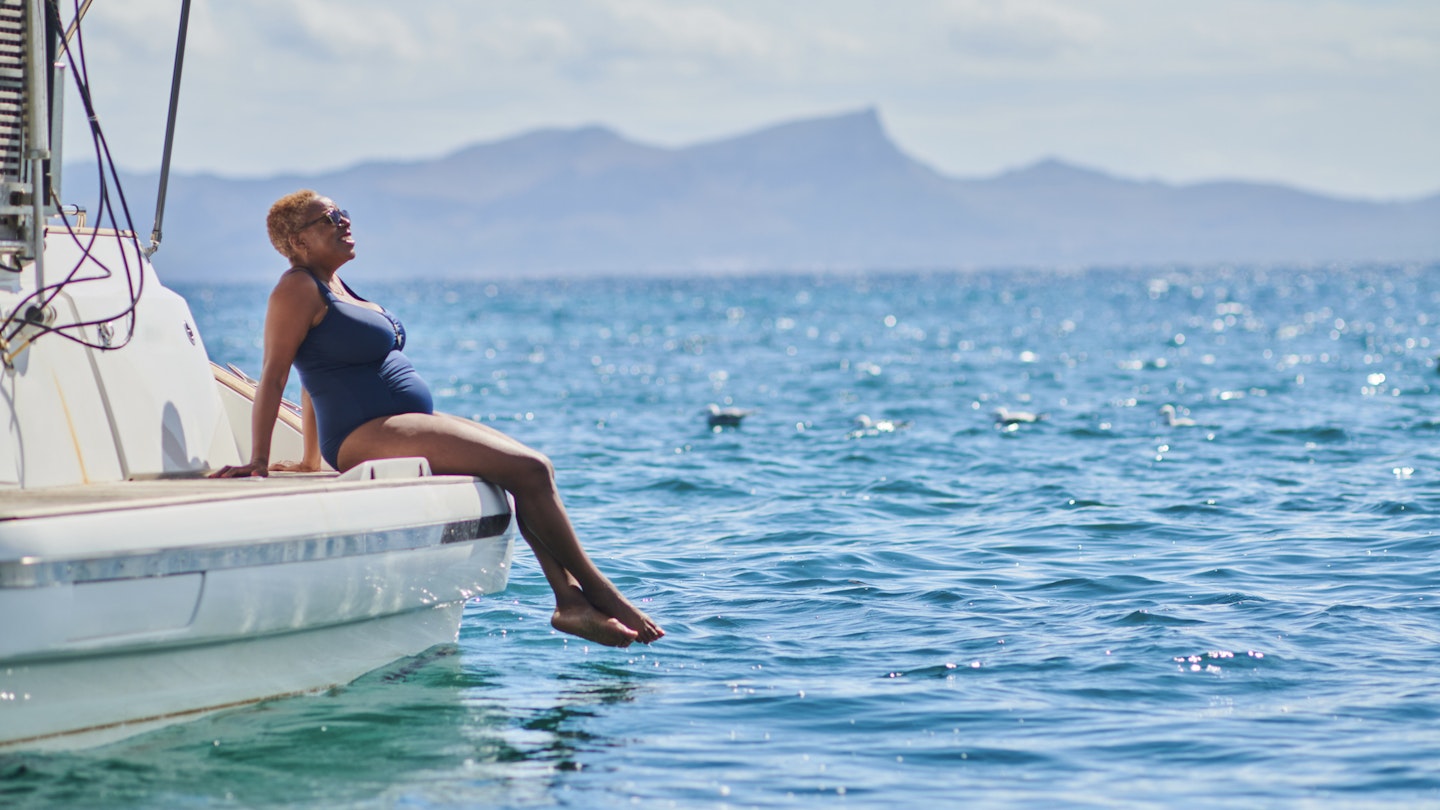
Here's what you need to know to get ready for a trip to Spain © Flashpop / Getty Images
Spain has been home for the past 16 years, ever since I moved to its capital Madrid in my early thirties.
From day one, it was easy to be charmed by this warm and inviting country . It ticks a lot of boxes in terms of what you’re looking for in a European destination – great cuisine and wine , spectacular landscapes , architectural gems, green spaces and a thriving art scene.
Getting around the country is also very convenient, thanks to Spain's efficient and reliable multi-modal public transport system . And the Spanish people are some of the friendliest locals, who will happily go out of their way to point you in the right direction if you’re lost.
Of course there were still some cultural quirks I had to adjust to – for one, eating times in Spain are very late in comparison with the rest of the world's dining schedules. I still remember my early days in Madrid when my belly would be in outright rebellion while waiting for “early” dinner reservations at 9pm. And forget about making a speedy exit from social gatherings; in Spain saying farewell could take up another hour of your time.
Cultural idiosyncrasies aside, your trip to this incredible country can be your most memorable one yet if you plan well ahead, and follow these useful travel tips.

1. Pack warm clothes. Really.
There is a humorous Spanish expression that goes, “Hasta cuarenta de mayo, no te quites el sayo” , which translates to “Until the 40th of May, don’t remove your coat” – sage advice to keep a jacket handy until mid-June. While Spain may be famous for its blue skies and sun-drenched beaches, it actually has more colder seasons in the year than warm ones, during early spring (March to May), autumn (September to November) and winter (December to February). Regions in northern Spain, such as the Basque Country, Asturias and Galicia, have cooler temperatures compared to the rest of the country.
2. Being cashless is common
Card is king in Spain. The main tourist hubs such as Madrid, Barcelona , San Sebastián and Ibiza are generally credit card-friendly destinations. In fact, you could go cashless for days and pay for your meals, drinks, taxis and bus fares without a problem using a credit or debit card.
If you do bring cash, make sure you have loose change. Several establishments, bus and taxi drivers, especially on morning shifts, usually do not have change for bigger bills. So if you prefer paying cash, it’s a good idea to be stocked up on smaller bills (€5 and €10) and coins.
3. Choose your time to visit Madrid wisely
Think twice about visiting Madrid in August . Most establishments in the Spanish capital close, and Madrileños usually head for the beaches to escape the brutal August heat .
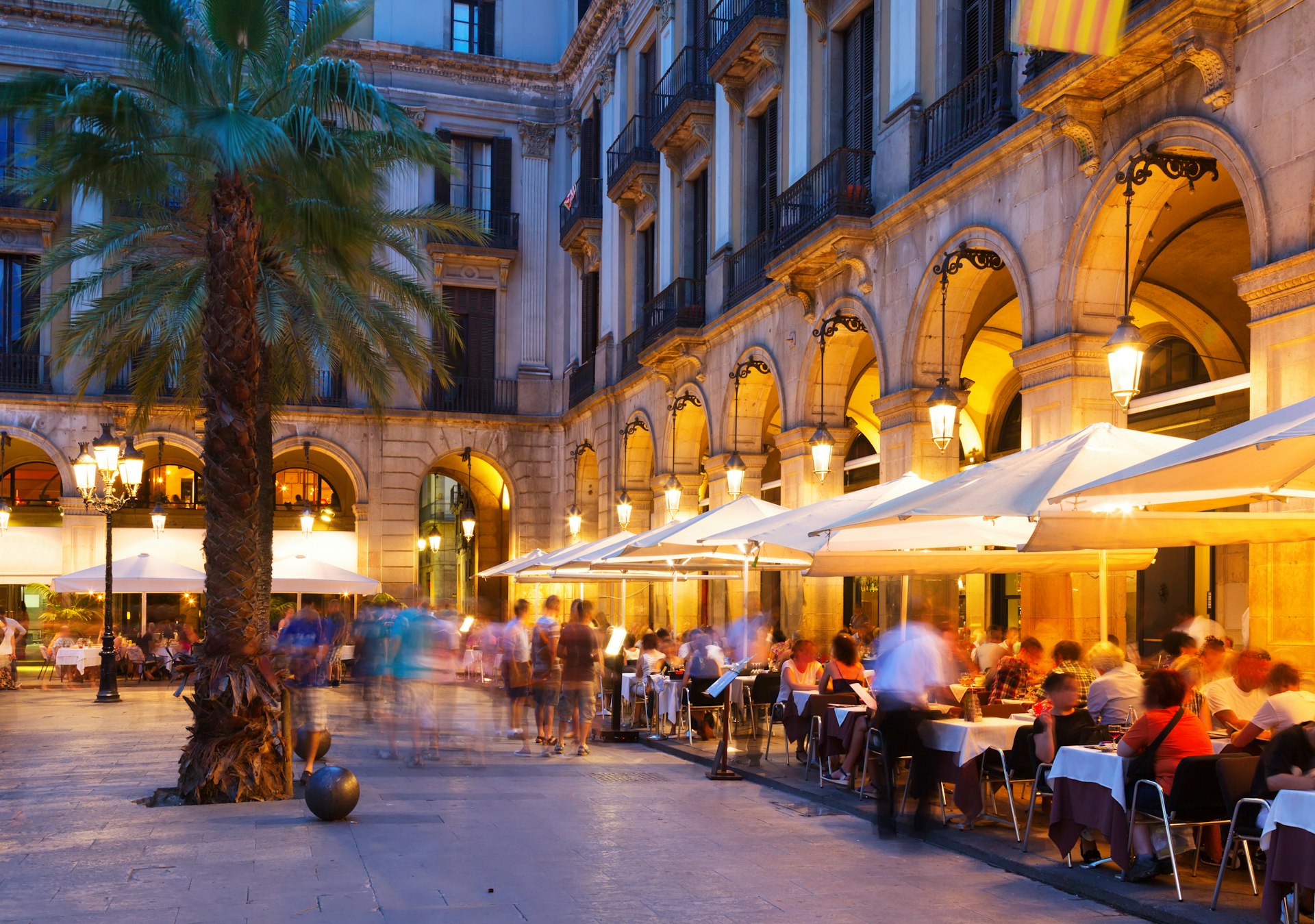
4. Expect to eat late
Prepare for late Spanish dining times. Many tourists who come to Spain for the first time end up hungry while waiting for restaurants to open. Most restaurants open for lunch from 1pm to 4pm, and dinner from 8pm to 1am. A lot of establishments also close on Mondays. You can stave off hunger pangs before mealtimes by snacking on tapas – small savory plates that are usually free with a drink order in many Spanish cities. In San Sebastián or Bilbao in the Basque Country , you can savor pintxos , or bite-sized portions typically served on a slice of bread and skewered with a toothpick.
5. Ordering certain drinks will immediately mark you as a tourist
A popular drink among tourists, sangría is usually served in pitchers meant for sharing, and not by the glass. Instead, try ordering a local favorite that’s similar to sangría, tinto de verano , a concoction of red wine and lemon soda.
Ask for a caña like a local instead of a cerveza . A caña is a small glass of beer on tap (about 250ml).
6. Tipping is not expected
European countries in general don’t have a tipping culture. But of course, it is very much appreciated – especially if you enjoyed good service.
7. Don't eat food while you’re on the move
Eating is an age-old pleasure that must be savored unhurriedly, so it’s uncommon to see Spaniards biting sandwiches or munching on fries while walking down the street or riding public transportation.
8. Look for fixed-price lunches
Order the menú del día (daily menu) for lunch on weekdays. Take your cue from the locals and ask for the fixed-price menu (ranging from €8 to €17) that includes a three-course meal with dessert, drinks, bread and coffee.
9. Eat late, stay late
Make time for sobremesa – lingering long after a meal for a post-dining conversation. This is a hallmark of sociable Spanish culture, to extend conversations well beyond mealtimes to be able to enjoy each other’s company for as long as possible, usually over drinks.
10. Keep an eye on your belongings
Be vigilant of pickpockets and keep your belongings close. Pickpockets are unfortunately rampant in high tourist traffic areas. If you’re sitting at an outdoor table, watch out for vendors that get suspiciously close and distract you with their items for sale, such as flowers or lottery tickets, while they surreptitiously steal your wallet or mobile phone on the table (this is a modus operandi I’ve witnessed more than once!).
11. You can drink tap water in Spain
Go ahead and drink the tap water. Spanish tap water or “agua de grifo” is safe to drink, though the taste varies across regions.
12. There's one number for an emergency
Call 112 for any emergency. You can contact this number for any kind of emergency in Spain, even without a Spanish SIM card on your mobile phone. You’ll be connected to the right emergency service through multilingual operators. To contact the Spanish National Police, dial 091.
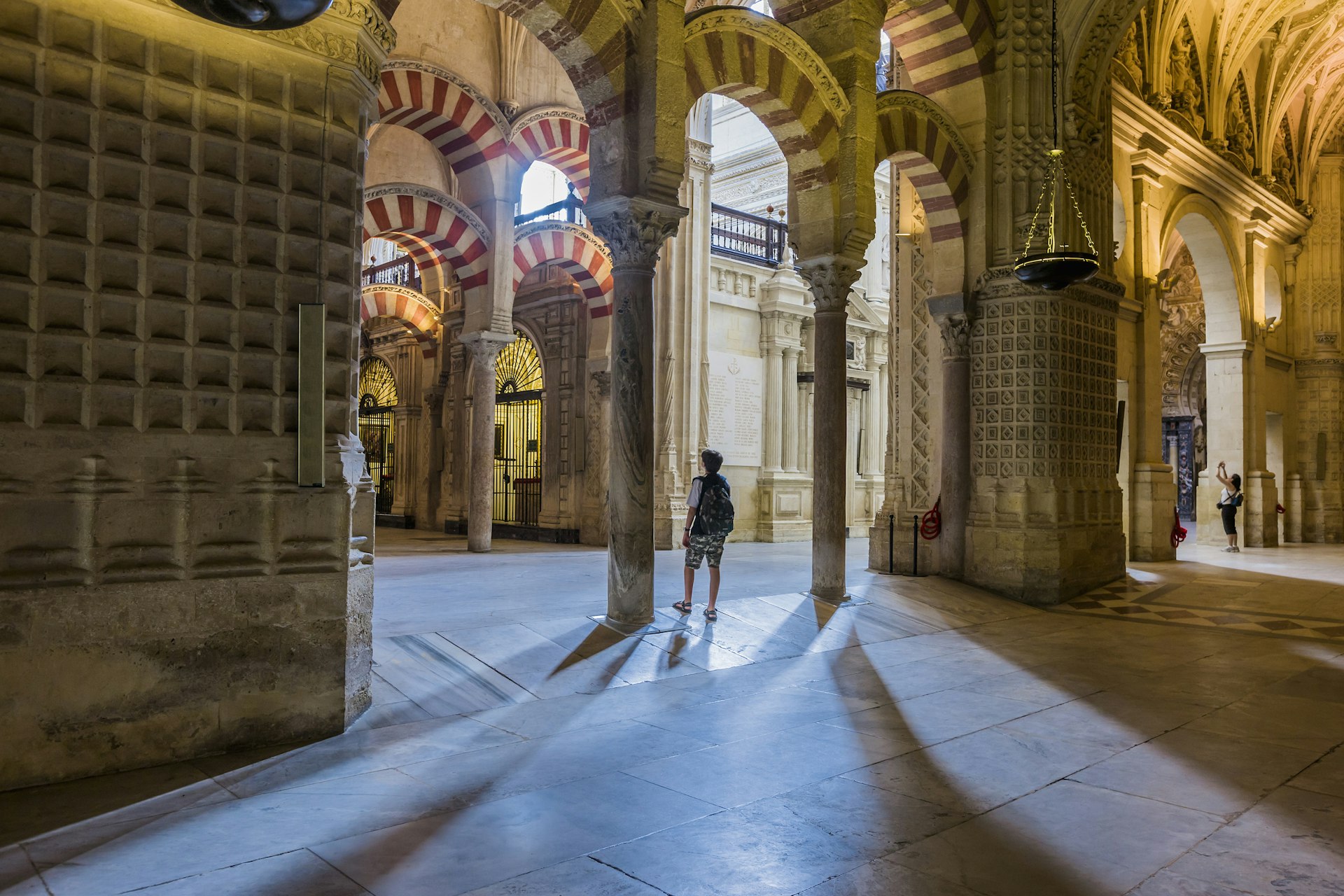
13. Dress appropriately when away from the beach
Opt for smart casual attire and avoid overly casual outfits like athleisure wear, beachwear, or excessively revealing clothing in the city. If you’re visiting religious sites such as churches, cathedrals or mosques, cover your shoulders and knees to show respect for these places.
14. Brush up on basic Spanish
Like any destination, it helps a lot if you know basic local phrases. While you can get by speaking English in the bigger, more touristy cities, it is a different story when visiting smaller, lesser-known towns outside the tourist radar.
Don't say “no problemo”, which is incorrect. The correct phrase is “no hay problema” or more colloquially, say “no pasa nada” .
15. Know what is considered polite
Greet people, even strangers. It’s commonplace to greet people in elevators, shops and along hallways. Compliment good service by saying “muy amable” . Meaning “very kind”, this is a commonly used polite phrase to express gratitude for someone’s helpfulness. It can be said in different situations – if a person has gone out of their way to assist you, like giving you directions, holding a door or giving up their seat for you. You can also say this to show your appreciation for customer service that goes above and beyond.
16. Don’t leave a social gathering without saying goodbye
It is generally frowned upon to leave an occasion without letting your host know. However, be prepared for a long, drawn out goodbye – the Spanish are highly sociable people who like extending conversations, leading to lengthy, and often multiple stages of farewells.
Explore related stories
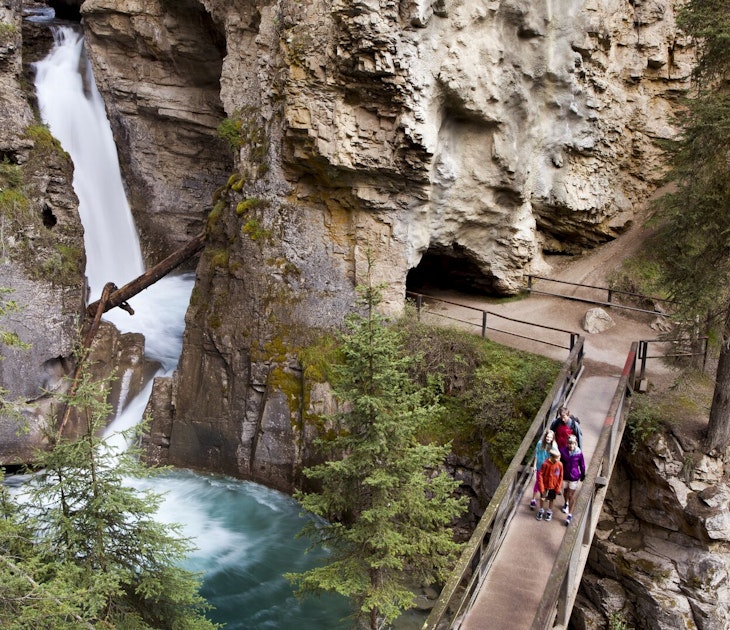
Apr 19, 2024 • 10 min read
Summer is just around the corner in the northern hemisphere. Here's where the Lonely Planet team is going.
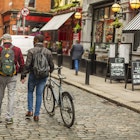
Mar 31, 2024 • 6 min read

Mar 26, 2024 • 8 min read
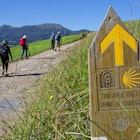
Mar 25, 2024 • 6 min read

Mar 21, 2024 • 6 min read

Mar 17, 2024 • 5 min read
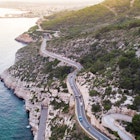
Mar 13, 2024 • 7 min read

Mar 8, 2024 • 17 min read

Mar 2, 2024 • 7 min read
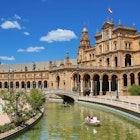
Feb 28, 2024 • 3 min read
Safety in Spain: guide to travel worriless in 2024

Contrary to other countries, safety in Spain is relatively high. You’ll rarely have any problem in the areas most people visit.
So if you’re wondering: is Spain safe for travel in 2024?
Absolutely! Spain is extremely safe and welcoming. As a matter of fact, every year millions of people explore and enjoy the country incident-free.
Just follow the same precautions you would apply at home and everything will be fine.
Nevertheless, for the best experience you should consider getting a travel and health insurance before traveling.
So whether you’re just embarking on a city break with some friends, or if you’re wondering whether it’s OK to explore certain areas in Spain’s biggest cities, don’t worry. This guide is going to help you travel safely and stress-free in Spain.
Table of Contents
Is it safe to travel to Spain right now?
Spain is still very safe at the moment. However, there are a few things that you should take into consideration.
1. Pro-independence protests in Catalonia
With intermittent protests around Catalonia throughout the last few years, you may wonder if it’s safe to travel to Barcelona.
A few years ago, a pro-independence majority government in Catalonia had a referendum to separate from Spain. Spain constitutional court declared that this vote was illegal. As a result, there have been protests within Catalonia.
However, they ended a long time ago. At the moment, Barcelona and the rest of Catalonia is perfectly safe for visitors. So there’s absolutely nothing to worry about.
2. Is Spain safe from terrorist attacks?
In the past decades Spain has seen its fair share of attacks from terrorists, and the alert for terrorism in Spain is usually relatively high.
Unfortunately, Spain remains a target for terrorist activity, but no more than any other Western nation.
In fact, the rate of fatal attacks was much higher in the 1970s and 1980s, when political extremists on the right and left, and separatist forces such as ETA in the Basque Country (dissoluted in 2018) used to operate.
So the best you can you is to keep yourself informed of potential risks to safety and security by monitoring the media and other local information sources. Follow any instructions issued by the local authorities and be vigilant in public places, particularly at tourist sites, shopping areas and transport hubs, such as airports and railway stations.
That’s it.
The information in this section was accurate at the time of writing, however, the world is a changeable place, now more than ever. My best piece of advice is to do your own research and practice common sense. That will be enough to have a safe trip to Spain.
Safety in Spain: beware of pickpockets
Violent crime is incredibly low, and Spain is one of Europe’s safest countries for tourists.
Whilst Spain is safe, crime can happen anywhere.If it’s going to happen while you’re traveling around Spain, it will most likely occur in one of the cities, particularly around the main tourist landmarks.
Pretty much like in any big European city, there are pickpockets in most big cities like Madrid, Barcelona, Seville, Valencia, etc. So be particularly careful if you plan to visit any of these destinations.
Go unnoticed
Tourists often carry more cash and more valuables on them than locals do. That’s one of the reasons they are targeted.
Moreover, they’re typically not paying attention to what’s going on around them because they’re so focused on exploring the area or taking pictures.
So it’s essential to make yourself less noticeable. Don’t look like a tourist!
That means avoiding gawking at maps and appearing like you don’t know where you are. Before going out, have a good idea of how to get there and move like you know where you’re heading to.
Use common sense
This should go by itself, but unfortunately it often doesn’t. Use common sense :
- Don’t believe for a minute that the back pocket of your jeans a safe place for your wallet or phone (it’s not!).
- The most secure place to stash your goods is the inside (ideally zipped) pocket of your jacket.
- If you can, avoid carrying a backpack or shoulder bag while out and about.
- But if you do need to carry one, move your backpack from your back to your front when you’re on public transit, and don’t put anything in the back pocket.
- Keep your smartphone tucked away on your person while you’re eating or having a coffee.
Be cautious in crowded areas and in public transports
While you can encounter pickpockets anywhere in a city, some locations are a magnet for pickpockets.
Here are the most frequent places with a questionable safety in Spain.
Tourist attractions. For obvious reasons the landmark or museum will distract you and take your attention off your possessions. Oftentimes there’s high pedestrian traffic – tons of people bumping into each other and thus less likely to notice the magical abilities of a thief.
If a popular tourist attraction is on your list of must-sees while traveling, take extra precautions with your valuables while you’re in the area.
Public transportation. Because public transportation is often crowded, it offers tons of opportunities to pickpockets. With just a bump from an accomplice, a pickpocket can take your wallet and be off the bus or subway and far away before you even realize it’s missing.
Restaurants and bars. Pickpockets love going to cafeterias and bars that are popular with tourists. You’ll be focused on your meal and the people you’re eating or drinking with. So you won’t the hand that slides into your purse or backpack to snatch a wallet. Also, don’t leave your phone on the table!
Hotel lobbies. When you arrive at your hotel and you enter the lobby, you’re distracted looking for your booking information and you may leave your luggage unattended. Don’t do so. Pickpockets will take advantage of your diverted attention by stealing what they can from you.
Keep the bare minimum in your wallet
The best piece of advice regarding safety in Spain that I can give you is to carry as minimum cash with you as possible .
The less you have in your wallet, the less of a hassle it will be if you do get robbed:
- Just keep a single form of ID and a small amount of cash. That’s it.
- Use your travel money card with both Apple and Android devices to make any payment.
- Keep your physical travel debit card as back up stowing it safely away in your accommodation in the event that you do lose your wallet.
Be careful when using ATMs
It’s generally safe to withdraw cash from ATM machines, but be aware of your surrounds while you’re using the machine:
- Be particularly careful when typing your pin-code.
- Avoid withdrawing cash alone at night in very early hours of morning. If you must do it, be extra cautious.
In my opinion, the best way to prevent any trouble is to avoid ATMs using a travel debit card during your trip to Spain .
What to do in case you get robbed in Spain?
I can’t stress it enough.
Make a copy of your important documents before you leave.
Before you leave for your trip, make a copy of your passport, national ID and driver’s license (both your local one and the international one ). I’d suggest storing these in Dropbox or Google Drive. These will come in handy in the event you lose anything and need to go to the embassy to get a new passport.
The safety in Spain is reasonably high, especially in terms of a popular travel destination, but it’s not perfect. Even if you follow the above advice, there’s still a small chance you’ll get robbed.
So what should you do if this happens to you?
- Cancel your travel money card company. If your wallet goes missing or stolen, immediately cancel your travel debit card using the app on your phone. Alternatively, call the issuing company and let them know. Any attempted transactions with your card will then be blocked.
- Contact your travel insurance company. Contact your travel insurance company to report your valuables as missing or stolen. Most of the time, it won’t cover any financial loss if your debit or credit cards are skimmed or used fraudulently. But it may cover other valuables depending on your policy. So it’s good to check with them.
- File a report with the police. You surely won’t get your passport or national ID and travel debit card back, but you will need it if you lost other valuables and your travel insurance covers it.
Cookies on GOV.UK
We use some essential cookies to make this website work.
We’d like to set additional cookies to understand how you use GOV.UK, remember your settings and improve government services.
We also use cookies set by other sites to help us deliver content from their services.
You have accepted additional cookies. You can change your cookie settings at any time.
You have rejected additional cookies. You can change your cookie settings at any time.
- Passports, travel and living abroad
- Travel abroad
- Foreign travel advice
Warnings and insurance
The Foreign, Commonwealth & Development Office (FCDO) provides advice about risks of travel to help British nationals make informed decisions. Find out more about FCDO travel advice .
Before you travel
No travel can be guaranteed safe. Read all the advice in this guide and any specific travel advice that applies to you:
- women travellers
- disabled travellers
- LGBT+ travellers
Follow and contact FCDO travel on Twitter , Facebook and Instagram . You can also sign up to get email notifications when this advice is updated.
Travel insurance
If you choose to travel, research your destinations and get appropriate travel insurance . Insurance should cover your itinerary, planned activities and expenses in an emergency.
Related content
Is this page useful.
- Yes this page is useful
- No this page is not useful
Help us improve GOV.UK
Don’t include personal or financial information like your National Insurance number or credit card details.
To help us improve GOV.UK, we’d like to know more about your visit today. We’ll send you a link to a feedback form. It will take only 2 minutes to fill in. Don’t worry we won’t send you spam or share your email address with anyone.
Update April 12, 2024
Information for u.s. citizens in the middle east.
- Travel Advisories |
- Contact Us |
- MyTravelGov |
Find U.S. Embassies & Consulates
Travel.state.gov, congressional liaison, special issuance agency, u.s. passports, international travel, intercountry adoption, international parental child abduction, records and authentications, popular links, travel advisories, mytravelgov, stay connected, legal resources, legal information, info for u.s. law enforcement, replace or certify documents.
Before You Go
Learn About Your Destination
While Abroad
Emergencies
Share this page:
Travel Advisory July 26, 2023
Spain - level 2: exercise increased caution.
Reissued with obsolete COVID-19 page links removed.
Exercise increased caution in Spain due to terrorism and civil unrest .
Country Summary: Terrorist groups continue plotting possible attacks in Spain. Terrorists may attack with little or no warning, targeting tourist locations, transportation hubs, markets/shopping malls, local government facilities, hotels, clubs, restaurants, places of worship, parks, major sporting and cultural events, educational institutions, airports, and other public areas.
Demonstrations are common. They may take place in response to political or economic issues, on politically significant holidays, and during international events.
Read the country information page for additional information on travel in Spain.
If you decide to travel to Spain:
- Avoid demonstrations and crowds.
- Be aware of your surroundings when traveling to tourist locations and crowded public venues.
- Follow the instructions of local authorities.
- Monitor local media for breaking events and adjust your plans based on new information.
- Enroll in the Smart Traveler Enrollment Program ( STEP ) to receive Alerts and make it easier to locate you in an emergency.
- Follow the Department of State on Facebook and Twitter .
- Review the Country Security Report for Spain.
- Visit the CDC page for the latest Travel Health Information related to your travel.
- Prepare a contingency plan for emergency situations. Review the Traveler’s Checklist .
Embassy Messages
View Alerts and Messages Archive
Quick Facts
6 months recommended, 3 months beyond your date of departure is required
1 page per stamp
None required for less than 90 days
Embassies and Consulates
U.S. Embassy Madrid Calle Serrano, 75 28006 Madrid, Spain Telephone: (34) 91-587-2200 Emergency after-hours telephone: (34) 91-587-2200 Fax: (34) 91-587-2303 E-mail: [email protected]
U.S. Consulate General Barcelona Paseo Reina Elisenda de Montcada, 23 08034 Barcelona, Spain Telephone: (34) 93-280-2227 Emergency after-hours telephone: (34) 91-587-2200 Fax: (34) 93-280-6175 E-mail: [email protected]
U.S. Consular Agency Fuengirola (Málaga) Avenida Juan Gómez "Juanito", 8 Edificio Lucía 1º-C 29640 Fuengirola (Málaga), Spain Telephone: (34) 95-247-4891 Fax: (34) 95-246-5189 E-mail: [email protected]
U.S. Consular Agency Las Palmas Edificio Arca Calle Los Martinez de Escobar 3, Oficina 7 35007 Las Palmas, Gran Canaria, Spain Telephone: (34) 92-827-1259 Fax: (34) 92-822-5863 E-mail: [email protected]
U.S. Consular Agency Palma de Mallorca Edificio Reina Constanza Porto Pi, 8, 9-D 07015 Palma, Islas Baleares, Spain Telephone: (34) 97-140-3707 Fax: (34) 97-140-3971 E-mail: [email protected]
U.S. Consular Agency Seville Plaza Nueva 8-8 duplicado 2nd Floor, Office E-2 No.4 41101 Sevilla, Spain Telephone: (34) 95-421-8751 Fax: (34) 95-422-0791 E-mail: [email protected]
U.S. Consular Agency Valencia Doctor Romagosa 1, 2-J 46002 Valencia, Spain Telephone: (34) 96-351-6973 Fax: (34) 96-352-9565 E-mail: [email protected]
Destination Description
See the Department of State’s Fact Sheet on Spain for information on U.S.-Spain relations.
Entry, Exit and Visa Requirements
U.S. citizens traveling to Spain are not subject to any COVID-19 entry restrictions.
Spain is a party to the Schengen Agreement . This means that U.S. citizens may enter Spain for up to 90 days for tourism or business without a visa. Your passport should be valid for at least three months beyond the period of stay. You must have sufficient funds and a return airline ticket. Visit the Embassy of Spain website for the most current visa information.
Traveling Through Europe : If you are planning to visit, transit and/or travel through European countries, you should be familiar with the requirements of the Schengen Agreement.
- Your passport should be valid for at least three months beyond the period of stay. If you plan on transiting a Schengen country, review our U.S. Travelers in Europe page .
- You will need sufficient proof of funds and a return plane ticket .
- For additional information about visas for the Schengen area, see the Schengen Visa page.
Students and athletes: Students, prospective students, and athletes should visit the Embassy of Spain website for additional information on entry requirements. You should not travel to Spain as a student or for an athletic/study program without the appropriate Spanish visa. U.S. citizen students and athletes have been denied entry and held in immigration detention at Spanish airports awaiting return flights to the United States because they lacked the appropriate visa. If your coach or sponsoring program says that you do not require a visa to study, play for a sports team, or participate in a sports training program in Spain, you should confirm this information with the nearest Spanish consulate in the United States before you travel.
U.S. citizen minors living in Spain: Spanish law mandates that all Spanish minors traveling internationally without their parents or legal guardians must have written notarized permission from a parent or guardian. The law also applies to foreign, minor residents if their country of nationality also requires parental permission. While U.S. law does not require minors traveling without a parent/guardian to have the parents’/guardians’ written permission, Spanish authorities and airlines have occasionally misinterpreted the law and stopped U.S. citizens minors from departing the country. Therefore, parents/legal guardians should consider preparing a notarized, written permission for their U.S. citizen minor children to travel abroad unaccompanied or with a third party.
HIV/AIDS restrictions: The U.S. Department of State is unaware of any HIV/AIDS entry restrictions for visitors to or foreign residents of Spain.
Find information on dual nationality , prevention of international child abduction , and customs regulations on our websites.
Safety and Security
Terrorism: Terrorist groups and those inspired by such organizations are intent on encouraging or conducting attacks worldwide, including within Europe. Terrorists are increasingly using less sophisticated methods of attack – including knives, firearms, and vehicles – to target crowds more effectively. Frequently, their aim is unprotected or vulnerable targets, such as:
- High-profile public events (sporting contests, political rallies, demonstrations, holiday events, celebratory gatherings, etc.)
- Hotels, clubs, and restaurants frequented by tourists
- Places of worship
- Schools
- Parks
- Shopping malls and markets
- Public transportation systems (including subways, buses, trains, and scheduled commercial flights)
Spain’s open borders with its Western European neighbors allow the possibility for terrorists to enter and exit the country anonymously. Additionally, Spain’s enclaves in Melilla and Ceuta on the North African coast allow for entry into Spain from the African continent. Spain has taken robust actions to guard against terrorist attacks, including arrests of suspected extremists allegedly involved in terrorist plots. Credible information indicates terrorist groups continue to plot potential attacks in Europe, including Spain.
For more information, see our Terrorism page.
Crime: Pickpocketing and other minor crimes, such as theft, are very common in Spain including instances where the victim is purposefully distracted to facilitate the theft. Street crimes against U.S. citizens usually occur in tourist areas, including airports, train stations, and both urban and beach destinations .
Violent crimes, including robberies, have also been reported. Some instances have required the victim to seek medical attention. Car break-ins are also frequent in Spain.
Use common sense, awareness and the same personal security measures you would normally use in any large city or tourist destination.
Keep track of your passport at all times, including on flights and other modes of transportation. There have been reports of passports being stolen on planes en route to Spain. Do not leave bags unattended. Keep them in sight and avoid placing passports, cash, cell phones, or other valuables in the outer pockets of backpacks or purses on tables or floors, grounds in public places. Do not leave bags slung over the backs of chairs, on hotel or store counters, on top of your suitcase or travel bag, or out of your physical control in hotel lobbies, car rental locations, train stations, restaurants, and other public places. Avoid carrying your passport unless needed for travel, especially in tourist areas. Instead, carry a photocopy or photo of your passport’s biographical information page and consider leaving your passport in a secure location, such as a hotel safe. Your passport will be required to check in into any hotel in Spain and may be required for trains or tourist sites.
Sexual Assault: The U.S. Mission in Spain has received numerous reports of sexual assaults affecting U.S. citizens, especially younger travelers, students, and exchange teachers.
Navigating the Spanish criminal justice system after surviving a sexual assault has been difficult for many U.S. citizen victims, who report feeling judged and re-victimized throughout the very lengthy process.
Although it is not required, many U.S. citizen victims of sexual assault in Spain have found it helpful to hire a local attorney to be their advocate and defend their rights during any judicial process or use the help of the local Office of Victim’s Assistance. Information about the local victim’s assistance program is given out at the police station when the report is filed.
There have been numerous reports alleging sexual assaults against U.S. citizen students by Manuel Blanco Vela, a representative of a tour operator based in Seville, Spain. Conduct research online to determine who owns and operates tour companies to make informed choices.
Many sexual assaults occur at night or during the early morning hours. In most cases, assailants take advantage of alcohol or drugs to make victims more vulnerable.
Domestic Violence: U.S. citizen victims of domestic violence should call the toll-free emergency number in Spain, 016, for assistance, and the U.S. Embassy in Madrid at (34) 91-587-2200 or U.S. Consulate General Barcelona at (+34) 93-280-2227. Note that the local authorities are responsible for investigating and prosecuting crimes.
Victims of Crime: U.S. citizen victims of domestic violence, sexual assault or other violent crimes are encouraged to report crimes to the local emergency services at 112 and contact the U.S. Embassy, Consulate, or consular agency for assistance . Note that local authorities are responsible for investigating and prosecuting crime.
See our webpage on help for U.S. victims of crime overseas .
- Help you find appropriate medical care
- Assist you in reporting a crime to the police
- Contact relatives or friends with your written consent
- Provide general information regarding the victim’s role during the local investigation and following its conclusion
- Provide a list of local attorneys
- Provide information on victim’s compensation programs in the United States
- Provide an emergency loan for repatriation to the United States and/or limited medical support in cases of destitution
- Help you find accommodation and arrange flights home
- Replace a stolen or lost passport
Demonstrations occur frequently. They may take place in response to political or economic issues, on politically significant holidays, and during international events.
- Demonstrations can be unpredictable, avoid areas around protests and demonstrations .
- Past demonstrations have turned violent.
- Check local media for updates and traffic advisories.
International Financial Scams: See the Department of State and the FBI pages for information.
Financial scams are prevalent in Spain. Beware of anyone asking for money, particularly people who establish a “romantic” relationship online or anyone who claims the Spanish authorities are asking them for money. Scams are often initiated through Internet postings/profiles or by unsolicited emails and letters. Scammers almost always pose as U.S. citizens who have no one else to turn to for help. Common scams include:
- People claiming to be U.S. military personnel
- Romance/Online dating
- Money transfers
- Grandparent/Relative targeting
- Free Trip/Luggage
- Lotteries
- Inheritance notices
- Work permits/Job offers
Tourism: The tourism industry is generally regulated, and rules [with regards to best practices and safety inspections] are regularly enforced. Hazardous areas/activities are identified with appropriate signage, and professional staff is typically on hand in support of organized activities. In the event of an injury, appropriate medical treatment is widely available throughout the country. Outside of a major metropolitan center, it may take more time for first responders and medical professionals to stabilize a patient and provide life-saving assistance. U.S. citizens are encouraged to purchase medical evacuation insurance .
Local Laws & Special Circumstances
Criminal Penalties: You are subject to local laws. If you violate local laws, even unknowingly, you may be expelled, arrested, or imprisoned. Individuals establishing a business or practicing a profession that requires additional permits or licensing should seek information from the competent local authorities prior to practicing or operating a business.
Furthermore, some violations of laws are also prosecutable in the United States, regardless of local law. For examples, see our website on crimes against minors abroad and the Department of Justice website.
Penalties for possessing, using, or trafficking illegal drugs in Spain are severe and convicted offenders can expect long jail sentences and heavy fines.
Most cities in Spain have banned the consumption of alcohol in the street, other than in registered street cafes and bars. You could be arrested or fined if you break the law.
Local police, sometimes dressed in plain clothes, can require you to produce identification to establish your identity upon request and detain you for further questioning. Carry a photocopy of your passport with you as proof of your identity. If you are stopped by someone who claims to be a plainclothes police officer, ask to see their law enforcement identification.
Arrest Notification: If you are arrested or detained, ask police to notify the U.S. Embassy Madrid or U.S. Consulate General Barcelona immediately. See our webpage for further information.
Counterfeit and Pirated Goods: Although counterfeit and pirated goods are prevalent in many countries, they may still be illegal according to local laws. You may also have to pay fines or have to give them up if you bring them back to the United States. See the U.S. Department of Justice website for more information.
Faith-Based Travelers: See the following webpages for details:
- Faith-Based Travel Information
- International Religious Freedom Report – see country reports
- Human Rights Report – see country reports
- Hajj Fact Sheet for Travelers
- Best Practices for Volunteering Abroad
LGBTQI+ Travelers: There are no legal restrictions on same-sex sexual relations or the organization of LGBTQI+ events in Spain.
See our LGBTQI+ Travel Information page and section 6 of our Human Rights report for further details.
Travelers with Disabilities: The law in Spain prohibits discrimination against persons with physical, sensory, intellectual or mental disabilities, and the law is enforced. Social acceptance of persons with disabilities in public is as prevalent as in the United States. In general, public transportation, lodging, communication/information, and general infrastructure are accessible. Taxis that can accommodate wheelchairs are available, but usually must be booked in advance.
In historic areas and older areas, sidewalks can be narrow and have uneven surfaces. Take this into account when planning your visit. There may be differences in small towns and villages, where accessibility may be more limited.
Rental, repair, replacement parts for aids/equipment/devices, or service providers, such as sign language interpreters or personal assistants are widely available in Spain.
Students: Follow the tips below and exercise caution and good judgment to make your study-abroad experience a positive and safe one. If you are coming to Spain to participate in a sports program, please check with the Embassy of Spain that you have the correct visa.
Do your research before contracting a tour operator or other service provider, including coaches and organizers of sports camps, schools, and training centers.
Exercise caution when agreeing to an internship or to serve as a recruiter for a specific organization or company. Most arrests, accidents, and violent crimes U.S. citizens suffer in Spain involve excessive alcohol. Drink in moderation and stay in a group of friends when in clubs, bars, or traveling.
See our Students Abroad page and FBI travel tips .
Women Travelers : The U.S. Mission in Spain has received numerous reports of sexual assaults affecting U.S. citizens, especially younger travelers, students, and exchange teachers. Please see more information under Safety and Security. See our travel tips for Women Travelers .
Good medical care is available in Spain. However, regulations regarding medications vary from those in the United States. Spanish regulations do not permit the international shipment of medication . Do not ship medication from the United States to Spain . Spanish customs authorities will reject and return to the shipper medication mailed from the United States. This may cause a significant delay in receiving your medications. The U.S. Embassy cannot help you retrieve medications stopped by Spanish customs.
Medications requiring prescriptions in the United States also require a local doctor’s prescription in Spain. In some instances, a medicine prescribed in the United States will not have a local equivalent. It is important that travelers research this on the European Agency for Medication website prior to travel.
For emergency services in Spain, dial 112. You may ask for an English-speaking attendant.
Ambulance services are widely available.
We do not pay medical bills . Be aware that U.S. Medicare/Medicaid does not apply overseas. Most hospitals and doctors overseas do not accept U.S. health insurance. Medical care is not free in Spain. If you require medical attention, you will incur expenses, even if you are treated in a public healthcare facility. Lack of payment may bar future travel to Spain.
Medical Insurance: Make sure your health insurance plan provides coverage overseas. Most care providers overseas only accept cash payments. See our webpage for more information on insurance overseas. Visit the U.S. Centers for Disease Control and Prevention for more information on type of insurance you should consider before you travel overseas. We strongly recommend supplemental insurance to cover medical evacuation.
Always carry your prescription medication in original packaging, along with your doctor’s prescription. Check with the embassy to ensure the medication is legal in Spain.
Vaccinations: Be up-to-date on all vaccinations recommended by the U.S. Centers for Disease Control and Prevention.
Further health information:
- World Health Organization
- U.S. Centers for Disease Control and Prevention (CDC)
Air Quality: Visit AirNow Department of State for information on air quality at U.S. Embassies and Consulates.
The U.S. Embassy maintains a list of doctors and hospitals . We do not endorse or recommend any specific medical provider or clinic.
Health facilities in general:
- Adequate health facilities are available throughout the country. Private hospitals usually require advance payment or proof of adequate insurance or funds before admitting a patient. Medical staff may speak little or no English. Patients may be asked to bear costs for transfer to or between hospitals.
- Patients have to pay their medical treatment in public hospitals.
Medical Tourism and Elective Surgery:
- U.S. citizens have suffered serious complications or died during or after having cosmetic or other elective surgery.
- Medical tourism is a rapidly growing industry. People seeking health care overseas should understand that medical systems operate differently from those in the United States and are not subject to the same rules and regulations. Anyone interested in traveling for medical purposes should consult with their local physician before traveling and visit the U.S. Centers for Disease Control and Prevention website for more information on Medical Tourism.
Pharmaceuticals: U.S. Customs and Border Protection and the Food and Drug Administration are responsible for rules governing the transport of medication back to the United States. Medication purchased abroad must meet their requirements to be legally brought back into the United States. Medication should be for personal use and must be approved for usage in the United States. Please visit the U.S. Customs and Border Protection and the Food and Drug Administration websites for more information.
Assisted Reproductive Technology and Surrogacy: If you are considering traveling to Spain to have a child through use of assisted reproductive technology (ART) or surrogacy, please see our ART and Surrogacy Abroad page .
Surrogacy is illegal in Spain and subject to complex local regulation.
Adventure Travel: Visit the U.S. Centers for Disease Control and Prevention website for more information about Adventure Travel .
Travel and Transportation
Road Conditions and Safety : Road conditions in Spain can differ significantly from those in the United States. Drivers and pedestrians should exercise increased caution as traffic in Madrid and Barcelona is often faster-paced than in the United States and can be unnerving because of unfamiliar signs and traffic lights and different driving habits, including motorbikes weaving between traffic lanes.
Obey the traffic light located at your stop line, as there are separate traffic lights for each side of the intersection. Be alert when driving at night in urban areas; you may encounter drivers or pedestrians under the influence of alcohol.
Night driving in isolated rural areas can be dangerous because of farm animals and poorly marked roads.
Rural traffic is generally heavier in July and August as well as during the Christmas and Easter seasons.
Emergency services, including roadside assistance, are plentiful, competent, and can be easily accessed by dialing 112 from any phone.
Traffic Laws: You must obtain an International Driving Permit prior to your arrival if you plan to drive in Spain. The permits are only valid for one year.
It is illegal to rent a vehicle if you don’t have an International Driving Permit. Your rental car may be impounded, and you will be required to pay a fine if stopped by the police.
It is against the law to use a mobile phone without a hands-free device while driving. There is a €300 fine for violating this regulation, and you may also lose your license.
All drivers and passengers are required to buckle up (even in taxis and in the backseat) and wear a reflective vest if they need to stop on the roadside. A reflective triangle warning sign is also mandatory if you stop on the roadside.
You must have liability insurance to operate any car or motorcycle.
If you are stopped by the Spanish National Police or the Guardia Civil, they may levy fines on the spot and issue a receipt for payment. This ensures that foreigners pay their fines while still in Spain.
Public Transportation: Public transportation in large Spanish cities is generally excellent.
Only use clearly identified cabs, ensure that taxi drivers always switch on the meter (except for fixed-fare trips originating to and from the Madrid airport), and ask for a receipt.
Private transportation companies (such as Uberor Cabify) are often used in Madrid and Barcelona but check private transportation websites for operating status before arrival.
Official taxis to and from the Madrid airport to the city center charge a €30 flat rate. Official taxis to and from the Barcelona airport to the cruise ship terminal charge a €39 flat rate.
Rail service is comfortable and reliable but varies in quality and speed. Intercity buses are usually comfortable and inexpensive.
See our Road Safety page for more information.
Aviation Safety Oversight: The U.S. Federal Aviation Administration (FAA) has assessed the Government of Spain’s Civil Aviation Authority as being in compliance with International Civil Aviation Organization (ICAO) aviation safety standards for oversight of Spain’s air carrier operations. Further information may be found on the FAA’s safety assessment page .
Maritime Travel: Mariners planning travel to Spain should also check for U.S. maritime advisories and alerts . Information may also be posted to the U.S. Coast Guard homeport website and the NGA broadcast warnings .
For additional travel information
- Enroll in the Smart Traveler Enrollment Program (STEP) to receive security messages and make it easier to locate you in an emergency.
- Call us in Washington, D.C. at 1-888-407-4747 (toll-free in the United States and Canada) or 1-202-501-4444 (from all other countries) from 8:00 a.m. to 8:00 p.m., Eastern Standard Time, Monday through Friday (except U.S. federal holidays).
- See the State Department’s travel website for the Worldwide Caution and Travel Advisories .
- Follow us on Twitter and Facebook .
- See traveling safely abroad for useful travel tips.
Review information about International Parental Child Abduction in Spain . For additional IPCA-related information, please see the International Child Abduction Prevention and Return Act ( ICAPRA ) report.
Travel Advisory Levels
Assistance for u.s. citizens, learn about your destination, enroll in step.

Subscribe to get up-to-date safety and security information and help us reach you in an emergency abroad.
Recommended Web Browsers: Microsoft Edge or Google Chrome.
Make two copies of all of your travel documents in case of emergency, and leave one with a trusted friend or relative.
Afghanistan
Antigua and Barbuda
Bonaire, Sint Eustatius, and Saba
Bosnia and Herzegovina
British Virgin Islands
Burkina Faso
Burma (Myanmar)
Cayman Islands
Central African Republic
Cote d Ivoire
Curaçao
Czech Republic
Democratic Republic of the Congo
Dominican Republic
El Salvador
Equatorial Guinea
Eswatini (Swaziland)
Falkland Islands
France (includes Monaco)
French Guiana
French Polynesia
French West Indies
Guadeloupe, Martinique, Saint Martin, and Saint Barthélemy (French West Indies)
Guinea-Bissau
Isle of Man
Israel, The West Bank and Gaza
Liechtenstein
Marshall Islands
Netherlands
New Caledonia
New Zealand
North Korea (Democratic People's Republic of Korea)
Papua New Guinea
Philippines
Republic of North Macedonia
Republic of the Congo
Saint Kitts and Nevis
Saint Lucia
Saint Vincent and the Grenadines
Sao Tome and Principe
Saudi Arabia
Sierra Leone
Sint Maarten
Solomon Islands
South Africa
South Korea
South Sudan
Switzerland
The Bahamas
Timor-Leste
Trinidad and Tobago
Turkmenistan
Turks and Caicos Islands
United Arab Emirates
United Kingdom
Vatican City (Holy See)
External Link
You are about to leave travel.state.gov for an external website that is not maintained by the U.S. Department of State.
Links to external websites are provided as a convenience and should not be construed as an endorsement by the U.S. Department of State of the views or products contained therein. If you wish to remain on travel.state.gov, click the "cancel" message.
You are about to visit:
You are using an outdated browser. Upgrade your browser today or install Google Chrome Frame to better experience this site.
Spain Traveler View
Travel health notices, vaccines and medicines, non-vaccine-preventable diseases, stay healthy and safe.
- Packing List
After Your Trip
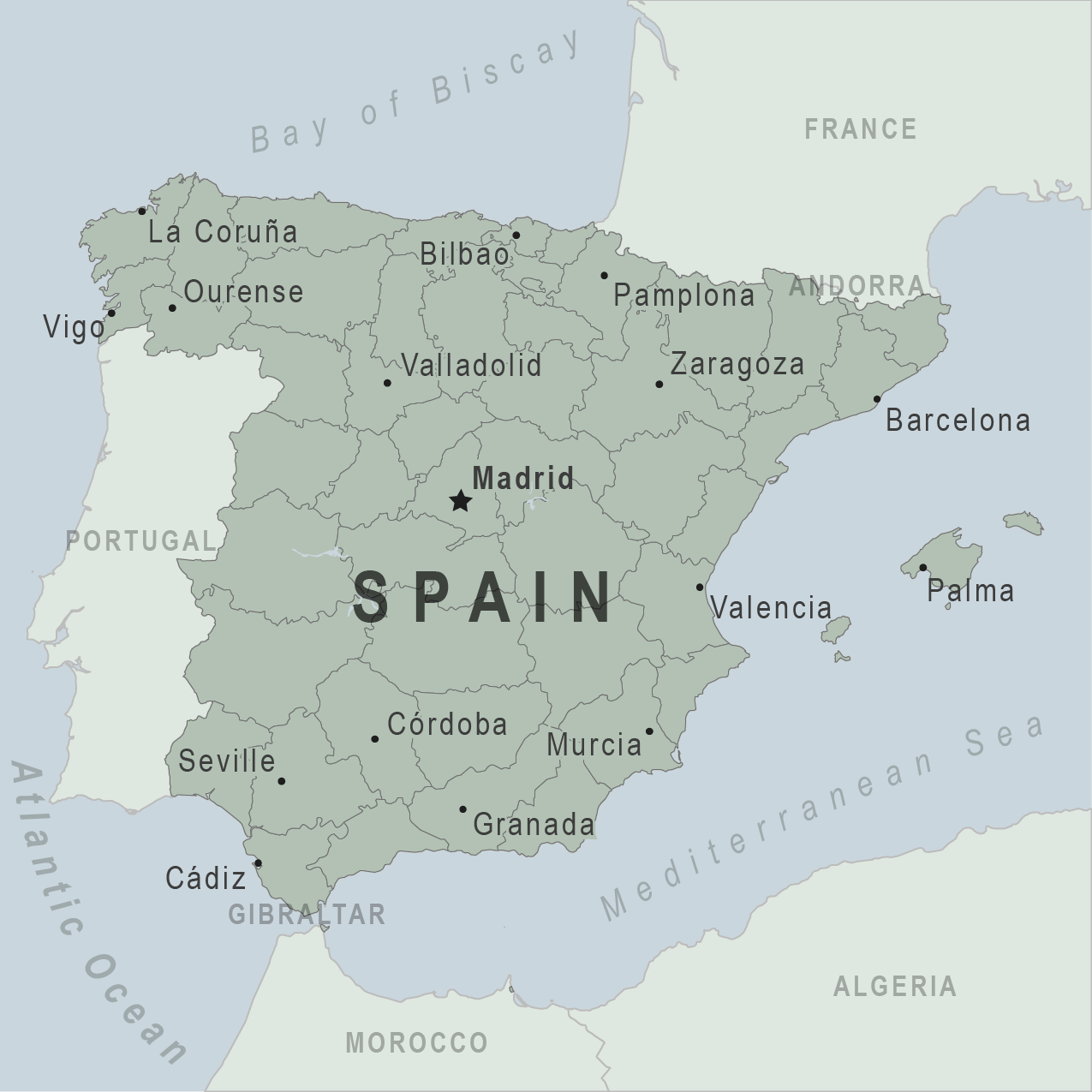
There are no notices currently in effect for Spain.
⇧ Top
Check the vaccines and medicines list and visit your doctor at least a month before your trip to get vaccines or medicines you may need. If you or your doctor need help finding a location that provides certain vaccines or medicines, visit the Find a Clinic page.
Routine vaccines
Recommendations.
Make sure you are up-to-date on all routine vaccines before every trip. Some of these vaccines include
- Chickenpox (Varicella)
- Diphtheria-Tetanus-Pertussis
- Flu (influenza)
- Measles-Mumps-Rubella (MMR)
Immunization schedules
All eligible travelers should be up to date with their COVID-19 vaccines. Please see Your COVID-19 Vaccination for more information.
COVID-19 vaccine
Hepatitis A
Consider hepatitis A vaccination for most travelers. It is recommended for travelers who will be doing higher risk activities, such as visiting smaller cities, villages, or rural areas where a traveler might get infected through food or water. It is recommended for travelers who plan on eating street food.
Hepatitis A - CDC Yellow Book
Dosing info - Hep A
Hepatitis B
Recommended for unvaccinated travelers younger than 60 years old traveling to Spain. Unvaccinated travelers 60 years and older may get vaccinated before traveling to Spain.
Hepatitis B - CDC Yellow Book
Dosing info - Hep B
Cases of measles are on the rise worldwide. Travelers are at risk of measles if they have not been fully vaccinated at least two weeks prior to departure, or have not had measles in the past, and travel internationally to areas where measles is spreading.
All international travelers should be fully vaccinated against measles with the measles-mumps-rubella (MMR) vaccine, including an early dose for infants 6–11 months, according to CDC’s measles vaccination recommendations for international travel .
Measles (Rubeola) - CDC Yellow Book
Spain is free of dog rabies. However, rabies may still be present in wildlife species, particularly bats. CDC recommends rabies vaccination before travel only for people working directly with wildlife. These people may include veterinarians, animal handlers, field biologists, or laboratory workers working with specimens from mammalian species.
Rabies - CDC Yellow Book
Avoid contaminated water
Leptospirosis
How most people get sick (most common modes of transmission)
- Touching urine or other body fluids from an animal infected with leptospirosis
- Swimming or wading in urine-contaminated fresh water, or contact with urine-contaminated mud
- Drinking water or eating food contaminated with animal urine
- Avoid contaminated water and soil
Clinical Guidance
Avoid bug bites.
Leishmaniasis
- Sand fly bite
- Avoid Bug Bites
Airborne & droplet
- Breathing in air or accidentally eating food contaminated with the urine, droppings, or saliva of infected rodents
- Bite from an infected rodent
- Less commonly, being around someone sick with hantavirus (only occurs with Andes virus)
- Avoid rodents and areas where they live
- Avoid sick people
Tuberculosis (TB)
- Breathe in TB bacteria that is in the air from an infected and contagious person coughing, speaking, or singing.
Learn actions you can take to stay healthy and safe on your trip. Vaccines cannot protect you from many diseases in Spain, so your behaviors are important.
Eat and drink safely
Food and water standards around the world vary based on the destination. Standards may also differ within a country and risk may change depending on activity type (e.g., hiking versus business trip). You can learn more about safe food and drink choices when traveling by accessing the resources below.
- Choose Safe Food and Drinks When Traveling
- Water Treatment Options When Hiking, Camping or Traveling
- Global Water, Sanitation and Hygiene | Healthy Water
- Avoid Contaminated Water During Travel
You can also visit the Department of State Country Information Pages for additional information about food and water safety.
Prevent bug bites
Although Spain is an industrialized country, bug bites here can still spread diseases. Just as you would in the United States, try to avoid bug bites while spending time outside or in wooded areas.
What can I do to prevent bug bites?
- Cover exposed skin by wearing long-sleeved shirts, long pants, and hats.
- Use an appropriate insect repellent (see below).
- Consider using permethrin-treated clothing and gear if spending a lot of time outside. Do not use permethrin directly on skin.
What type of insect repellent should I use?
- FOR PROTECTION AGAINST TICKS AND MOSQUITOES: Use a repellent that contains 20% or more DEET for protection that lasts up to several hours.
- Picaridin (also known as KBR 3023, Bayrepel, and icaridin)
- Oil of lemon eucalyptus (OLE) or para-menthane-diol (PMD)
- 2-undecanone
- Always use insect repellent as directed.
What should I do if I am bitten by bugs?
- Avoid scratching bug bites, and apply hydrocortisone cream or calamine lotion to reduce the itching.
- Check your entire body for ticks after outdoor activity. Be sure to remove ticks properly.
What can I do to avoid bed bugs?
Although bed bugs do not carry disease, they are an annoyance. See our information page about avoiding bug bites for some easy tips to avoid them. For more information on bed bugs, see Bed Bugs .
For more detailed information on avoiding bug bites, see Avoid Bug Bites .
Stay safe outdoors
If your travel plans in Spain include outdoor activities, take these steps to stay safe and healthy during your trip:
- Stay alert to changing weather conditions and adjust your plans if conditions become unsafe.
- Prepare for activities by wearing the right clothes and packing protective items, such as bug spray, sunscreen, and a basic first aid kit.
- Consider learning basic first aid and CPR before travel. Bring a travel health kit with items appropriate for your activities.
- If you are outside for many hours in the heat, eat salty snacks and drink water to stay hydrated and replace salt lost through sweating.
- Protect yourself from UV radiation : use sunscreen with an SPF of at least 15, wear protective clothing, and seek shade during the hottest time of day (10 a.m.–4 p.m.).
- Be especially careful during summer months and at high elevation. Because sunlight reflects off snow, sand, and water, sun exposure may be increased during activities like skiing, swimming, and sailing.
- Very cold temperatures can be dangerous. Dress in layers and cover heads, hands, and feet properly if you are visiting a cold location.
Stay safe around water
- Swim only in designated swimming areas. Obey lifeguards and warning flags on beaches.
- Do not dive into shallow water.
- Avoid swallowing water when swimming. Untreated water can carry germs that make you sick.
- Practice safe boating—follow all boating safety laws, do not drink alcohol if you are driving a boat, and always wear a life jacket.
Keep away from animals
Most animals avoid people, but they may attack if they feel threatened, are protecting their young or territory, or if they are injured or ill. Animal bites and scratches can lead to serious diseases such as rabies.
Follow these tips to protect yourself:
- Do not touch or feed any animals you do not know.
- Do not allow animals to lick open wounds, and do not get animal saliva in your eyes or mouth.
- Avoid rodents and their urine and feces.
- Traveling pets should be supervised closely and not allowed to come in contact with local animals.
- If you wake in a room with a bat, seek medical care immediately. Bat bites may be hard to see.
All animals can pose a threat, but be extra careful around dogs, bats, monkeys, sea animals such as jellyfish, and snakes. If you are bitten or scratched by an animal, immediately:
- Wash the wound with soap and clean water.
- Go to a doctor right away.
- Tell your doctor about your injury when you get back to the United States.
Reduce your exposure to germs
Follow these tips to avoid getting sick or spreading illness to others while traveling:
- Wash your hands often, especially before eating.
- If soap and water aren’t available, clean hands with hand sanitizer (containing at least 60% alcohol).
- Don’t touch your eyes, nose, or mouth. If you need to touch your face, make sure your hands are clean.
- Cover your mouth and nose with a tissue or your sleeve (not your hands) when coughing or sneezing.
- Try to avoid contact with people who are sick.
- If you are sick, stay home or in your hotel room, unless you need medical care.
Avoid sharing body fluids
Diseases can be spread through body fluids, such as saliva, blood, vomit, and semen.
Protect yourself:
- Use latex condoms correctly.
- Do not inject drugs.
- Limit alcohol consumption. People take more risks when intoxicated.
- Do not share needles or any devices that can break the skin. That includes needles for tattoos, piercings, and acupuncture.
- If you receive medical or dental care, make sure the equipment is disinfected or sanitized.
Know how to get medical care while traveling
Plan for how you will get health care during your trip, should the need arise:
- Carry a list of local doctors and hospitals at your destination.
- Review your health insurance plan to determine what medical services it would cover during your trip. Consider purchasing travel health and medical evacuation insurance for things your regular insurance will not cover.
- Carry a card that identifies, in the local language, your blood type, chronic conditions or serious allergies, and the generic names of any medicines you take.
- Bring copies of your prescriptions for medicine and for eye glasses and contact lenses.
- Some prescription drugs may be illegal in other countries. Call Spain’s embassy to verify that all of your prescription(s) are legal to bring with you.
- Bring all the medicines (including over-the-counter medicines) you think you might need during your trip, including extra in case of travel delays. Ask your doctor to help you get prescriptions filled early if you need to.
Many foreign hospitals and clinics are accredited by the Joint Commission International. A list of accredited facilities is available at their website ( www.jointcommissioninternational.org ).
Select safe transportation
Motor vehicle crashes are the #1 killer of healthy US citizens in foreign countries.
Be smart when you are traveling on foot.
- Use sidewalks and marked crosswalks.
- Pay attention to the traffic around you, especially in crowded areas.
- Remember, people on foot do not always have the right of way in other countries.
Riding/Driving
Choose a safe vehicle.
- Choose official taxis or public transportation, such as trains and buses.
- Make sure there are seatbelts.
- Avoid overcrowded, overloaded, top-heavy buses and minivans.
- Avoid riding on motorcycles or motorbikes, especially motorbike taxis. (Many crashes are caused by inexperienced motorbike drivers.)
- Choose newer vehicles—they may have more safety features, such as airbags, and be more reliable.
- Choose larger vehicles, which may provide more protection in crashes.
Think about the driver.
- Do not drive after drinking alcohol or ride with someone who has been drinking.
- Consider hiring a licensed, trained driver familiar with the area.
- Arrange payment before departing.
Follow basic safety tips.
- Wear a seatbelt at all times.
- Sit in the back seat of cars and taxis.
- When on motorbikes or bicycles, always wear a helmet. (Bring a helmet from home, if needed.)
- Do not use a cell phone or text while driving (illegal in many countries).
- Travel during daylight hours only, especially in rural areas.
- If you choose to drive a vehicle in Spain, learn the local traffic laws and have the proper paperwork.
- Get any driving permits and insurance you may need. Get an International Driving Permit (IDP). Carry the IDP and a US-issued driver's license at all times.
- Check with your auto insurance policy's international coverage, and get more coverage if needed. Make sure you have liability insurance.
- Avoid using local, unscheduled aircraft.
- If possible, fly on larger planes (more than 30 seats); larger airplanes are more likely to have regular safety inspections.
- Try to schedule flights during daylight hours and in good weather.
Helpful Resources
Road Safety Overseas (Information from the US Department of State): Includes tips on driving in other countries, International Driving Permits, auto insurance, and other resources.
The Association for International Road Travel has country-specific Road Travel Reports available for most countries for a minimal fee.
Maintain personal security
Use the same common sense traveling overseas that you would at home, and always stay alert and aware of your surroundings.
Before you leave
- Research your destination(s), including local laws, customs, and culture.
- Monitor travel advisories and alerts and read travel tips from the US Department of State.
- Enroll in the Smart Traveler Enrollment Program (STEP) .
- Leave a copy of your itinerary, contact information, credit cards, and passport with someone at home.
- Pack as light as possible, and leave at home any item you could not replace.
While at your destination(s)
- Carry contact information for the nearest US embassy or consulate .
- Carry a photocopy of your passport and entry stamp; leave the actual passport securely in your hotel.
- Follow all local laws and social customs.
- Do not wear expensive clothing or jewelry.
- Always keep hotel doors locked, and store valuables in secure areas.
- If possible, choose hotel rooms between the 2nd and 6th floors.
Healthy Travel Packing List
Use the Healthy Travel Packing List for Spain for a list of health-related items to consider packing for your trip. Talk to your doctor about which items are most important for you.
Why does CDC recommend packing these health-related items?
It’s best to be prepared to prevent and treat common illnesses and injuries. Some supplies and medicines may be difficult to find at your destination, may have different names, or may have different ingredients than what you normally use.
If you are not feeling well after your trip, you may need to see a doctor. If you need help finding a travel medicine specialist, see Find a Clinic . Be sure to tell your doctor about your travel, including where you went and what you did on your trip. Also tell your doctor if you were bitten or scratched by an animal while traveling.
For more information on what to do if you are sick after your trip, see Getting Sick after Travel .
Map Disclaimer - The boundaries and names shown and the designations used on maps do not imply the expression of any opinion whatsoever on the part of the Centers for Disease Control and Prevention concerning the legal status of any country, territory, city or area or of its authorities, or concerning the delimitation of its frontiers or boundaries. Approximate border lines for which there may not yet be full agreement are generally marked.
Other Destinations
If you need help finding travel information:
Message & data rates may apply. CDC Privacy Policy
File Formats Help:
- Adobe PDF file
- Microsoft PowerPoint file
- Microsoft Word file
- Microsoft Excel file
- Audio/Video file
- Apple Quicktime file
- RealPlayer file
- Zip Archive file
Exit Notification / Disclaimer Policy
- The Centers for Disease Control and Prevention (CDC) cannot attest to the accuracy of a non-federal website.
- Linking to a non-federal website does not constitute an endorsement by CDC or any of its employees of the sponsors or the information and products presented on the website.
- You will be subject to the destination website's privacy policy when you follow the link.
- CDC is not responsible for Section 508 compliance (accessibility) on other federal or private website.
Is Spain Safe to Visit?
Spain is the second most-visited and the 32nd safest country in the world . Despite that, in the middle of the tourist hustle and bustle, a bit of petty crime does happen.
As such, the US travel advisory recommends being a bit more cautious than usual here. It’s nothing to lose sleep over, though! You just need to be informed so you know what to expect—so let’s jump right in.
Is Spain Safe?

Spain is generally a safe place to visit , according to trustworthy sources.
According to CNN , Spain is one of the top countries for expats, and when a place is good for residents, it’s bound to be safe for tourists too.
InterNations’ 2023 rankings crowned Málaga, Valencia, and Alicante as some of the best places for living the good life, whether it’s for their friendliness, healthcare, or affordability. Other honorable mentions on the list include Madrid and Barcelona , always bustling with culture and life.
Spain is also one of the most LGBTQ+-friendly countries out there, with same-sex marriage legalized back in 2005. The epic pride celebrations draw millions of people every year, showing just how progressive and accepting Spain really is.
Forbes’ 2022 list also mentioned Spain as one of the safest places to visit.
The potential risks to be aware of? Pickpockets in public places, political demonstrations in the area of Catalonia, (very rare) extremist threats in the major cities, and overindulging in alcohol and illegal substances in party places like Ibiza .
Here’s the safety scoop:
- International travel advisories: Level 2, Exercise Increased Caution
- Crime rating: 36.25
- Most common crime: Theft
- Most high-crime places: Balearic Islands, Catalonia, Madrid
- Public transportation safety: Watch out for pickpockets, otherwise, it’s safe and on time
- Road safety: Driving is generally safe, roads are well-maintained with clear signage
- Safety walking alone during the day: Safe
- Safety walking alone during the night: Moderately safe
- Beach safety: Safe and secure, complete with nearby showers, good accessibility, and lifeguard services
- Common natural disasters: Storms, wildfires, earthquakes, and tornadoes
- Carbon monoxide poisoning: No reported incidents involving tourists, but the threat persists
- Police presence: Mostly present around tourist hotspots, malls, clubs, and during big events and holidays
- Medical care quality: Good healthcare and plenty of respectable hospitals
Travel Advisory for Spain
The U.S. State Department has given Spain a level-2 travel warning: Practice Increased Caution.
“The tourism industry is generally well-regulated, and protocols [concerning safety inspections and best practices] are routinely upheld,” according to the U.S. State Department.
The caution, however, stems from concerns regarding crime, political protests, and terrorism .
“Pickpocketing and other minor crimes, such as theft, are very common in Spain,” warns the U.S. State Department. Travelers are advised to keep their passports secure and avoid leaving bags unattended.
The U.S. State Department shares that demonstrations can pop up in Spain over political or economic issues, during big holidays, or when there are international events, and advises travelers to “check local media for updates and traffic advisories.”
The advisory points out the country’s open borders with neighboring European countries and its enclaves in Melilla and Ceuta as potential entry points for terrorist groups . While Spain has taken strong measures to prevent terrorist attacks, tourists should remain vigilant and aware of their surroundings at all times.
A Comprehensive Look at Spain Crime Rates
Spain has a pretty low crime rating of 36.25.
In 2021, there were around 1,960,113 reported crimes across the whole country. That works out to about 41.4 incidents per one thousand people. It’s the lowest it’s been in recent years , except for 2020 because of COVID-19.
The most common crime in 2022 was theft , with 24,462 reported cases —a drop from about 26,500 in 2019.
The Balearic Islands had the highest crime rate in 2022 , with 64 crimes per 1,000 inhabitants. Catalonia came next with 61, and Madrid with 59. Among the islands, Ibiza had the highest crime rate at 79 per 1,000, followed by Mallorca (64), Formentera (55), and Minorca (42).
All things considered, the regions with higher tourist traffic tend to experience more crime . However, Spain remains a safe destination. Just keep an eye on your stuff, like you would anywhere else, and you should be fine.
Source : Numbeo , 2024 data based on 4,154 contributors.
Personal Crime in Spain
According to Numbeo, personal crimes are pretty uncommon in Spain, so you’re unlikely to run into any trouble during your trip.
Solo female travelers might get some wolf-whistling or cat-calling, but overall, locals are respectful and don’t bother tourists in such a manner .
Falling victim to personal crime depends on where you are, what time of day it is, and how you’re behaving . For instance, if you’re out late and acting rowdy after drinking too much, you might get into trouble. But showing respect wherever you go is just common sense, not just in Spain.
Overall, Numbeo says it’s safe to walk alone during the day in Spain . But like anywhere else, it’s wise to stay alert at night. After dark, Spain is rated as “moderately safe.” This is because nightlife brings its own set of concerns like drunk people and rowdy behavior. Not to mention that while crime in broad daylight is more common by a small margin, violent crime usually occurs at night .
Property Crime in Spain
Theft is a common concern in Spain.
Often, visitors are so engrossed in sightseeing and snapping photos that they overlook their surroundings—and since tourists tend to carry more cash and valuables, they are the prime targets of theft.
Be extremely cautious when traveling in crowded buses and trains, enjoying your meal or drink at a café or bar, sunbathing at the beach, or sightseeing at museums or popular cultural sites— these are the main hit points for theft .
Beware of fake police officers too. Some pose as authorities and ask to inspect your wallet for identification only to swipe your cards or cash. Always them to show you proper identification if approached, as genuine officers typically won’t stop you unless there’s a valid reason.
Stay alert even in your hotel lobby. When checking in, keep an eye on your luggage and belongings. Don’t leave them unattended in the lobby, as pickpockets seize the chance to snatch valuables when you’re distracted.
Police Presence in Spain
Spain has plenty of police officers keeping a watchful eye.
You’ll see plenty of them if you’re hitting the clubs —likely checking for anything illegal or dangerous among the partygoers. You’ll also notice more police out and about around big holidays like Christmas , especially around shopping spots.
During the tourist season, Spain also runs “Operation Safe Summer.” This is when the Spanish Government brings in cops from other countries to help out in tourist areas.
In 2023, Operation Safe Summer brought French and Italian officers in Alicante and Benidorm , and Italian and German officers in Ibiza’s Santa Eularia .
The policemen you’ll come across will likely be friendly and easy to approach . Just remember to show respect and follow the rules . That way, you can relax and enjoy your time in Spain, knowing you’re well taken care of.
Public Transportation Safety in Spain
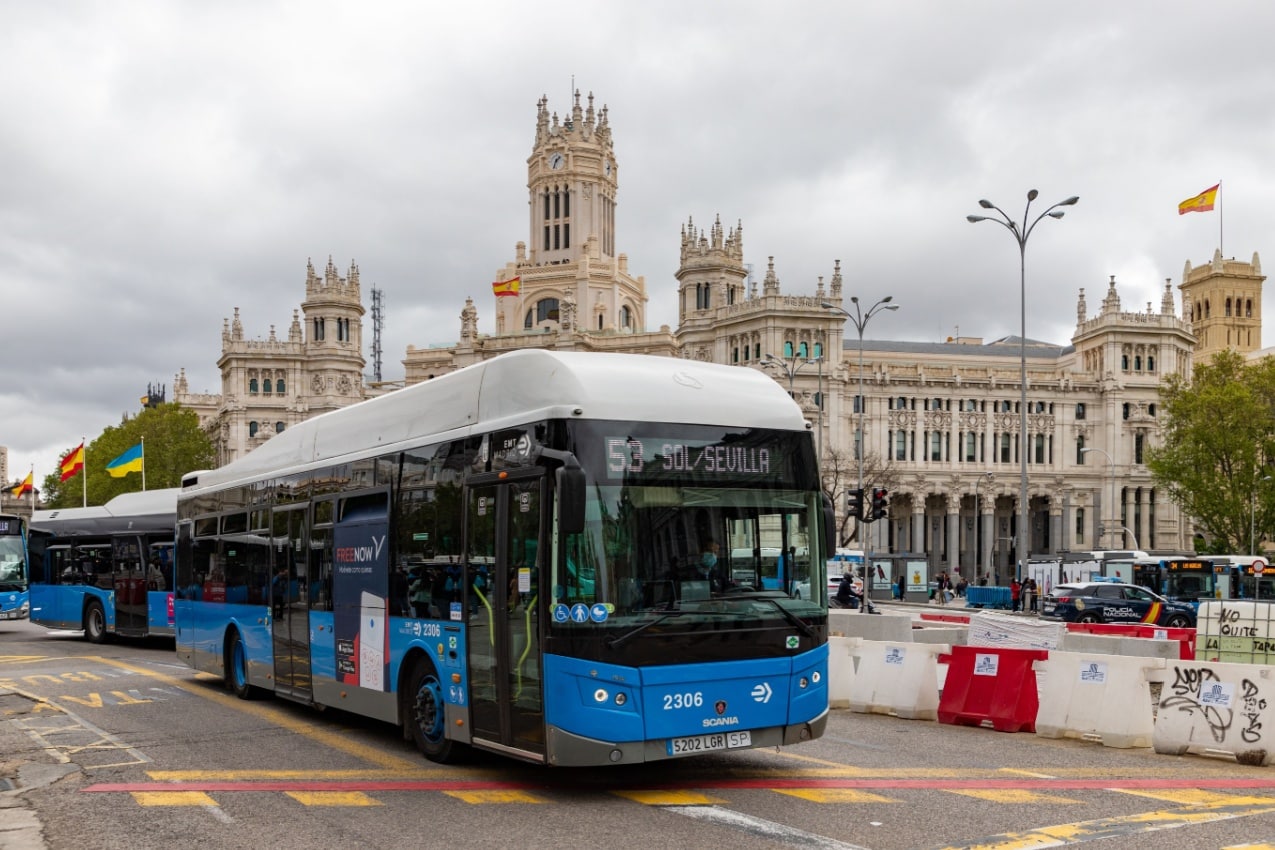
Public transportation in Spain is generally safe and convenient.
Madrid, for example— boasts one of the world’s top 10 metro systems , right up there with cities like New York , Paris , and London . But it’s not just Madrid; cities across Spain, like Barcelona, Seville, Valencia, and more, have efficient bus, tram, and metro networks too.
Taxis are generally safe, plentiful, and regulated. Some taxi stands even display fares for popular destinations so you know what to expect. You can also use ride-sharing services like Uber or Cabify.
If there’s no meter, make sure to agree on the fare before starting your journey. If you’re not fluent in Spanish, it’s a good idea to write down your destination to avoid any misunderstandings.
Keep an eye out for illegal taxis that may try to take advantage of tourists! If you feel like you’ve been overcharged, ask for an official receipt and report the issue to the local authorities.
Road Safety in Spain
Driving in Spain is usually safe, with well-maintained roads and clear signs all over.
Here are some important things to keep in mind, especially if you’re not from Spain:
- You must be at least 18 years old to drive in Spain and 21 to rent a car.
- The legal blood alcohol limit for driving in Spain is 0.5 g/l in the bloodstream (or 0.25 mg/l in exhaled air).
- The speed limit on highways is 120 km/h (75 mph), 100 km/h (62 mph) on main roads or roads with two lanes, 90 km/h (56 mph) on all other roads, and 50 km/h (31 mph) in urban areas such as cities, towns, and villages.
- Some roads here can be twisty and hilly, so take it easy. Always be on the lookout for other drivers making sudden moves.
- Keep an eye out for mopeds and scooters, especially in places like Ibiza where they’re popular modes of transportation.
Medical Care Quality in Spain
Spain’s healthcare system is good , ranking 21st overall in the 2022 World Index of Healthcare Innovation .
Here are some of the best hospitals you’ll find in Spain:
- Hospital Universitario La Paz , Madrid
- Hospital Universitario Fundación Jiménez Díaz , Madrid
- Hospital Clínico San Carlos , Madrid
- Hospital Universitario 12 de Octubre , Madrid
- Hospital General Universitario Gregorio Marañón , Madrid
- Hospital Ramón y Cajal , Madrid
- Hospital Universitari Vall d’Hebron , Barcelona
- Hospital Clínic de Barcelona , Barcelona
- Hospital Universitario y Politécnico la Fe , Valencia
- Clinica Universidad de Navarra , Pamplona/Iruña
If you’re an EU/ EFTA (European Free Trade Association – Iceland , Liechtenstein, Norway , and Switzerland ) resident, you’re in luck— public hospitals provide free treatment with your European Health Insurance Card . However, for private medical services, you’ll need to pay out of pocket.
If you don’t have a European Health Insurance Card or wish to get private treatment, invest in medical travel insurance . That way, you’ll be covered for any unexpected medical expenses.
And don’t worry if you need a pharmacy after hours— there are 24-hour pharmacies . Just remember, for regular medicine, head to a “Farmacia,” not a “Parafarmacia,” which sells herbal remedies.
Is It Safe to Travel Solo in Spain?
Spain is a great destination for solo travelers, and here’s why.
Firstly, the locals are known for their friendliness and helpfulness, especially in cities like Malaga, which is considered one of the friendliest cities in the world .
And with Spain being a hotspot for tourists, you’ll never feel lonely . There are millions of travelers around , so you’re sure to meet people to hang out with and share your adventures.
You can also join group tours to explore safely. From visiting iconic landmarks like the Alhambra and Sagrada Familia to enjoying food tours and hiking adventures, there’s no shortage of options to keep you entertained.
As always, stay mindful of your surroundings. Remember to:
- Keep your belongings close
- Stick to well-lit areas at night
- Watch your drinks
- Ignore catcallers, especially for solo female travelers
- Be cautious about sharing personal info, like where you’re staying
Perils of Nature: The Risk of Natural Disasters in Spain
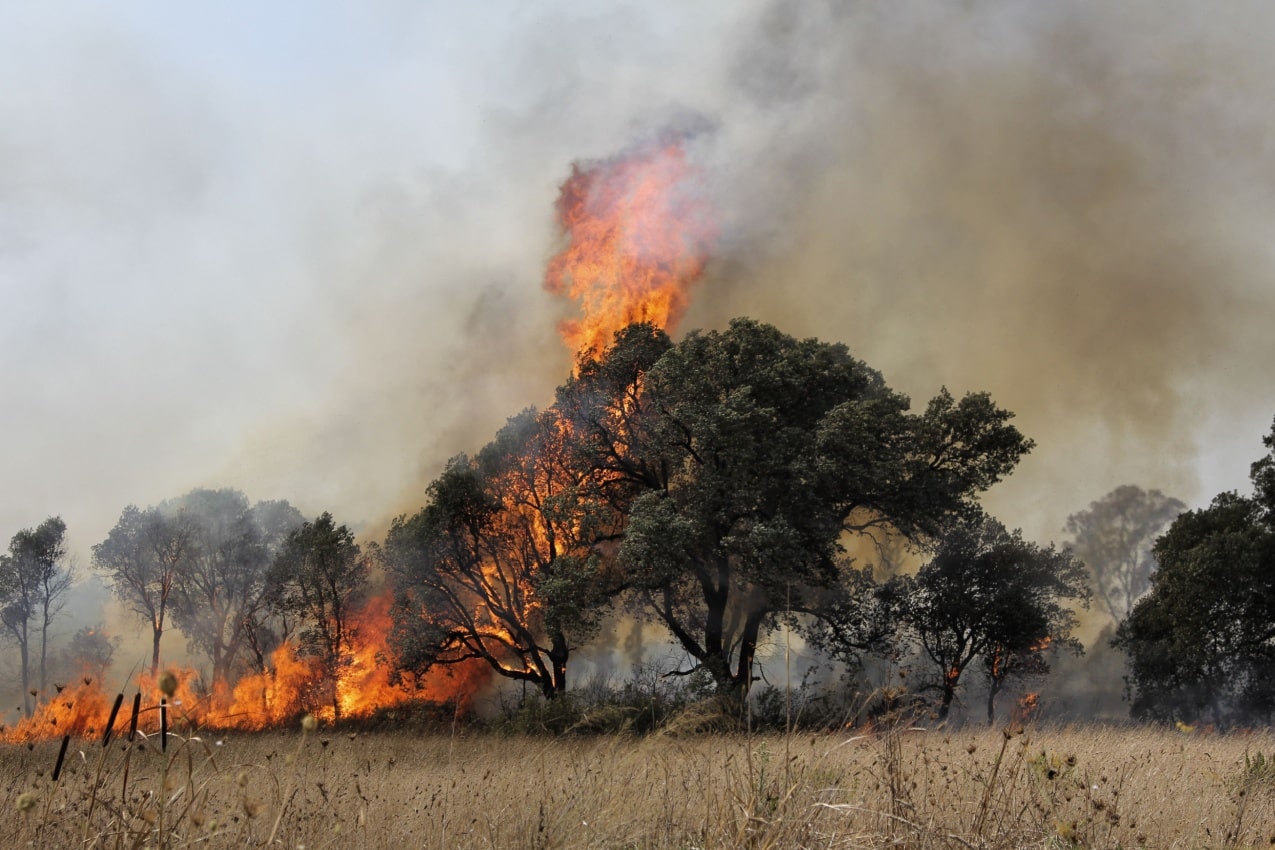
Spain is generally lucky to have a low risk of natural disasters.
However, when Mother Nature does decide to make an appearance, it comes in the form of severe storms, wildfires, earthquakes, and tsunamis.
Storms almost never happen during the peak summer months when most tourists flock to the country.
Instead, rainy days are more common from mid-autumn through to spring—and some of them can pack quite a punch. In October 2023, Storm Bernard hit Southern Spain, causing some serious damage and sadly, casualties. And back in 2019, there was a wild tornado along the coast of Ibiza that left a few people injured.
Thankfully, we’ve got modern weather reports to help us stay on top of things. So for more information about upcoming storms, visit the State Meteorological Agency (AEMET) , or download the El Tiempo de AEMET app.
Wildfires are most likely to occur during the hot summer months , but they can happen at other times too, especially after long stretches of dry and scorching weather.
In the summer of 2023 , Ibiza was at “extreme” risk, but luckily, no fires broke out on the island. However, in the fall of the same year , a wildfire in eastern Spain forced 850 people to evacuate.
The least you can do to prevent such tragedies is to not light a fire in mountains, forests, or rural areas in Spain— especially between May and October . If you ever spot a forest fire, dial 112 for help!
Earthquakes
Earthquakes in Spain are typically low in magnitude and extremely rare.
The most recent earthquake occurred in October 2023, striking about 217 miles (350 km) southeast of the center of the country. With a magnitude of only 2.80 on the Richter scale , it was a minor tremor that most people hardly noticed.
However, it’s always good to be prepared just in case. If you ever feel the ground shaking, remember these three simple steps:
- Drop to the ground to avoid being knocked over.
- Take cover under something sturdy to protect yourself from falling debris.
- Hold on until the shaking stops to prevent injury.
For real-time updates on earthquakes in Spain, you can check out the DataBaseEarth website.
Tsunamis usually happen because of big underwater earthquakes—but those almost never occur in Spain.
Now, if there’s a big earthquake along the African coast, there’s a small chance a wave could come over to Spain , hitting areas between Seville and Malaga, and the Balearic Islands.
However, even if there’s a big earthquake in the surrounding areas, it might not mean a tsunami will happen. For instance, in September 2023 Morocco had the biggest earthquake up to date —a 6.8 magnitude—but luckily, it didn’t cause a tsunami in the Mediterranean.
In the rare event that you feel a big earthquake in Spain and you’re by the coast, keep an eye on the water. If you see it suddenly pulling away from the shore, that’s a sign of a tsunami.
In that case, don’t wait around— get away from the coast fast and head for higher ground.
Beware the Silent Threat: Carbon Monoxide Poisoning in Spain
Spain has experienced its share of incidents involving the poisonous gas carbon monoxide. The numbers are minimal but still concerning.
In 2023, a carbon monoxide leak claimed the life of a 40-year-old man in Mallorca. Then, in 2024, three people, including a child, were poisoned in Jaén after inhaling dangerous levels of the gas. These incidents aren’t isolated—there have been reports of carbon monoxide in the Bahamas and Mexico City .
Carbon monoxide (CO) is invisible and odorless and can leak from faulty or poorly ventilated appliances, such as water heaters—silently poisoning the people in the room who inhale it.
But don’t panic —there are precautions you can take. The most important one is to use carbon monoxide detectors. These handy devices sound an alarm when dangerous levels of CO are detected, potentially saving lives.
So, before booking your stay in Spain, it’s a good idea to check if your accommodations have CO detectors installed . If you’re unsure, don’t hesitate to ask the staff.
If your lodging doesn’t have detectors, you can purchase portable CO detectors for yourself. They’re affordable and compact, and provide an added layer of protection wherever you go.
And lastly, it’s crucial to know the early symptoms of CO poisoning , which can include headaches, nausea, dizziness, and vomiting. If you experience any of these symptoms, seek medical attention immediately. Your safety is always the top priority!
Serenity by the Shore: The Safety of Spain Beaches
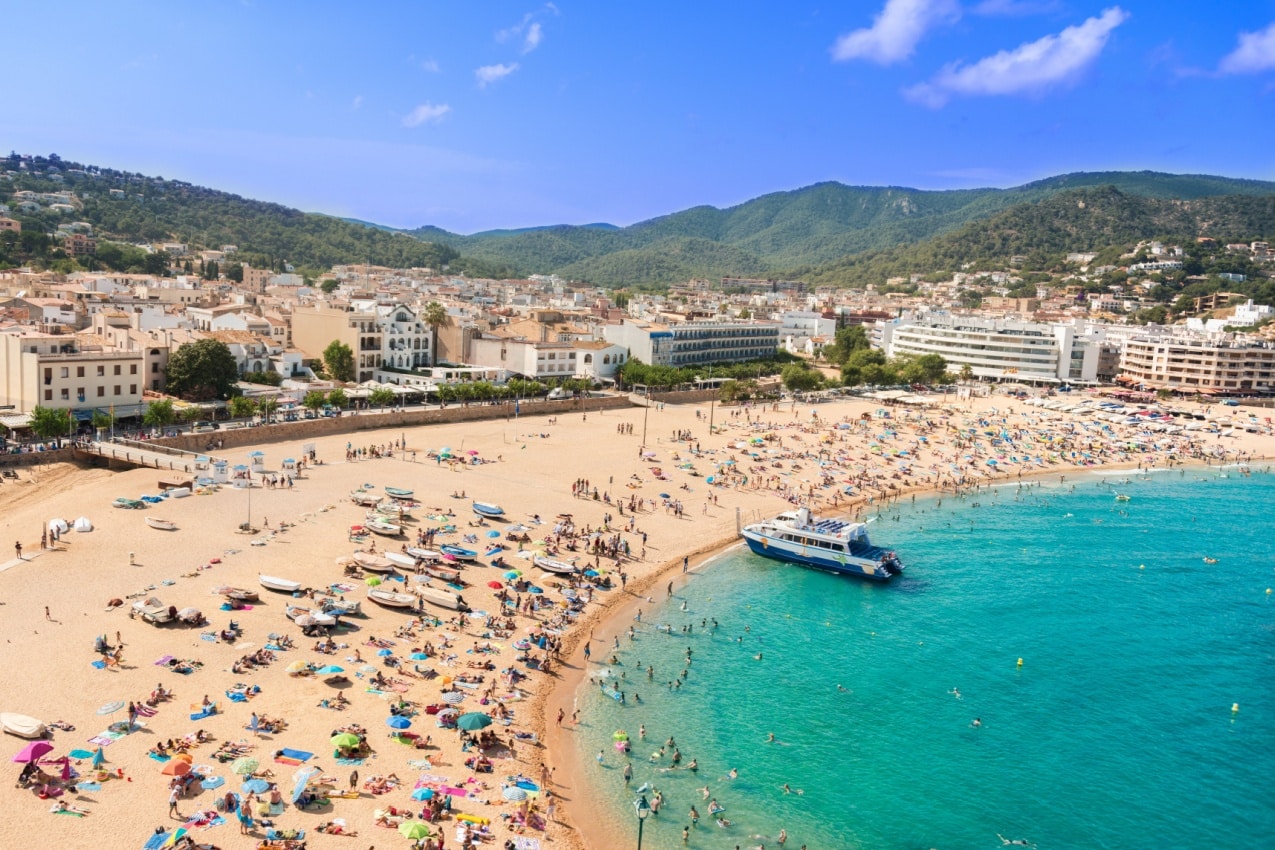
Spain’s beaches are mostly safe and secure—complete with nearby showers, good accessibility, and lifeguard services.
When you hit up a Spanish beach, keep an eye out for multi-colored flags. If you spot a blue flag, it’s a fantastic sign—the beach is certified by the Foundation for Environmental Education (FEE) and meets high environmental and quality standards.
Fun fact: Spain boasts the most Blue Flag beaches globally, with a total of 628!
But there’s more to those flags than just blue. The rest of the spectrum signals how safe the waters are for swimming:
- Green means calm waters, perfect for a refreshing dip
- Yellow signals slightly turbulent waters, so swim with caution
- Red indicates dangerous currents and waves—stay out of the water
- Black warns of contaminated waters
- Purple means dangerous marine life is present
The best family-friendly beaches in Spain are:
- El Sardinero beach, Santander, Cantabria
- Playa de Muro, Alcudia, Mallorca
- La Roqueta beach, Guardamar de Segura, Alicante
- Playa de la Malagueta, Málaga, Costa del Sol
- El Castellar beach, Mazarrón, Murcia
- La Misericordia beach, Málaga
- Playa de Rodas, Cíes Islands, Galicia
- Playa de Caneliñas, Sanxenxo, Galicia
- Las Canteras beach, Las Palmas de Gran Canaria, Canary Islands
- Playa de Ses Illetes, Formentera, Balearic Islands
- Playa de Las Cucharas, Costa Teguise, Lanzarote
If you’re looking for some party vibes, then consider these hotspots:
- Platges de Comte, Ibiza, Balearic Islands
- Playa de Valdevaqueros, Tarifa, Andalusia
- Playa del Inglés, Gran Canaria, Canary Islands
- Playa d’en Bossa, Ibiza, Balearic Islands
- Platja de l’Arenal, Valencia
- Playa de Las Américas, Tenerife
- Cala Lanuza, Valencia
- Meloneras, Gran Canaria, Canary Islands
- Playa de Almerimar, Andalusia
- Playa de Guadalmar, Malaga
- Playa de la Colonia, Águilas, Murcia
- Playa del Albir, Benidorm, Valencia
For those seeking hidden beaches off the beaten path, explore:
- Platja Cala El Golfet, Girona
- Playa de Rodas, Islas Cíes, Galicia
- Calo des Moro, Mallorca
- Playa Cala Aiguablava, Girona
- Platja des Coll Baix, Mallorca
- Cala de Algaiarens, Menorca
When it comes to sharks, these creatures tend to avoid the crowded, swimmer-packed shores. However, incidents do occur , albeit very rarely.
Remember , your beach safety is ultimately up to you. If you’ve had a few too many drinks, it’s best to skip the swim. Avoid swimming at dawn or dusk when sharks are more active in their hunt for prey. And always keep an eye on your valuables—better safe than sorry!
Spain Weather Patterns: What to Expect
In Spain, you’ll find five main types of climate:
- Down south and along the east coast , places like Barcelona, Valencia, the Balearic Islands, and Málaga, enjoy a warm Mediterranean climate with mild winters and plenty of sunshine.
- In the heart of the country , around Madrid, it’s dry and can get pretty hot in summer, but chilly in winter.
- In the Andalusian plains , think Seville and Córdoba, it feels almost like being in Africa with mild winters but scorching-hot summers.
- Up in the mountains , like the Pyrenees, it’s much cooler and gets colder as you go higher up.
- Along the north coast , it’s cool, damp, and rainy with mild temperatures.
For the sake of this article, let’s give a more detailed climate analysis of Spain’s capital, Madrid.
The Weather in Madrid: What to Expect
In Madrid, the climate swings from cold winters to hot summers .
Throughout the year, temperatures typically range from 33°F to 92°F (about 0.6°C to 33.3°C), rarely dipping below 23°F or soaring above 99°F (about -5°C or 37.2°C).
Summer lasts from mid-June to September , with daily highs averaging above 83°F (about 28.3°C). July takes the cake as the hottest month, with highs hitting around 91°F (about 32.8°C) and lows around 63°F (about 17.2°C).
Winter runs from mid-November to March , with daily highs often falling below 58°F (about 14.4°C). January brings the coldest days, with lows around 33°F (about 0.6°C) and highs around 51°F (about 10.6°C).
The sun shines from June to September , with July boasting the clearest skies—about 86% of the time.
This sunny spell aligns with Madrid’s dry season , peaking in July, with minimal rainfall averaging just 0.3 inches (about 0.76 cm) over 1.8 days.
Clouds also bring rain, marking the rainy season from September to June , with May seeing the most rainy days and October receiving the most rainfall.
From January to May, bundle up a bit more as the wind kicks up , especially in April, the windiest month. September, on the other hand, brings calmer breezes.
Monthly Average Temperatures in Madrid
Source : WeatherSpark , 2024 data
When Is the Best Time to Visit Spain?
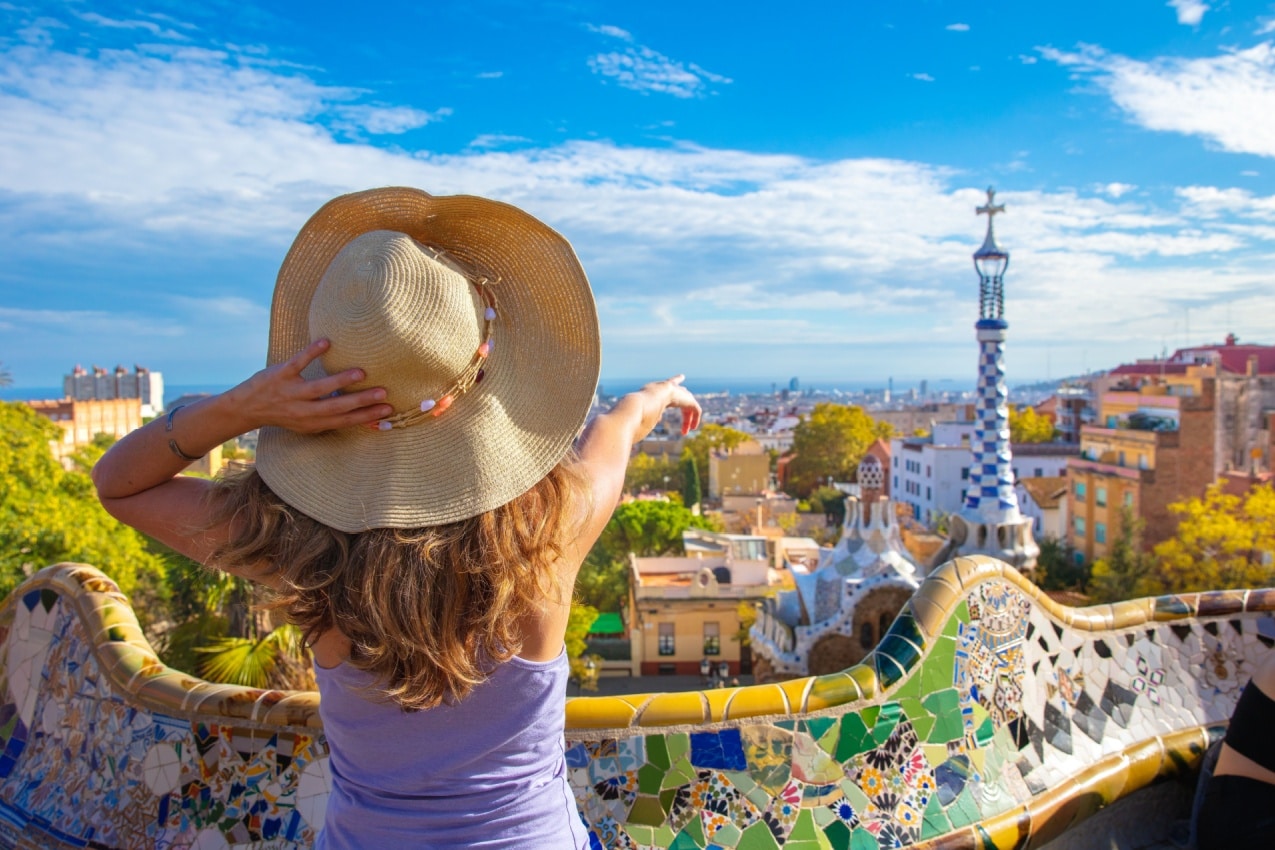
The best time to visit Spain would be in the summer months from June to August.
When the sun’s out, so are the crowds, marking summer as the peak tourist season in Spain . It’s no wonder—everyone’s chasing that sunshine!
But hey, summertime can get very hot! So if you’re planning a trip during the summer months, you’ll want to head for the coast, where you can soak up the sun on the beach and take a refreshing dip in the sea. Coastal regions really come alive in the summertime —think Valencia, Málaga, the glamorous beaches of Barcelona, the Canary Islands, and the Balearic Islands—packed with festivals, adventure tours, and vibrant nightlife.
If you’re not a fan of crowds, the low season (November to February) might be more to your liking . It might be a bit cooler, but you’ll have fewer tourists and shorter lines at attractions. Just make sure to check what’s open ahead of time. Plus, wandering the streets alongside mostly locals gives you a real taste of Spanish life. And bonus—you can score some sweet deals during the off-season!
For those who crave a bit of balance—neither too crowded nor too quiet—should aim for the shoulder . The periods from April to June and September to October offer that perfect in-between. The weather is still pleasant, the crowds are manageable, and you’ll score some budget-friendly deals that you won’t find in the peak summer months. Plus, you can explore museums and attractions without the usual crowds, allowing for a more intimate experience.
How to Stay Safe in Spain
- Download AlertCops , a handy mobile app allowing you to report incidents or crimes to Spanish law enforcement authorities.
- Stay updated on Spain’s current terrorist threat alert level via the Spanish Interior Ministry’s website . Remain vigilant in crowded tourist hotspots, shopping districts, and transportation hubs like airports and train stations.
- Travel light by carrying only essential items in your wallet or purse . Secure valuable documents like your passport in a hotel safe and keep photocopies with you instead.
- Exercise caution on public transportation , a favored hunting ground for pickpockets, where a slight bump may precede the swift disappearance of your wallet.
- Stay hydrated with tap or bottled water. Tap water in Spain is safe to drink, but it may taste peculiar due to its high mineral content.
- Keep beach trips carefree. Pack light for the beach, like sunscreen, water, snacks, a passport photocopy, and cash for the day.
- Choose your hotel wisely. Research the area where your stay is located and stay updated on local news—be the first to know if something happens through reliable online newspapers TheLocal , SUR , and El Pais .
- Plan ahead for attractions. Book tickets in advance for museums and popular sites to skip the long wait lines and save time.
- Enjoy alcoholic beverages responsibly. Avoid swimming in the ocean and be cautious on balconies, as incidents like drowning or falling over have occurred among tourists in Spain’s party hotspots.
- Keep your accommodation private. Party places like Ibiza have seen incidents where thieves enter empty villas while the tourists are out partying. So when purchasing club tickets or chit-chatting with strangers, avoid sharing your place of stay.
- Beware of the “shell game.” This is a common street scam in Spain where a performer deceives spectators by hiding a ball or object under a cup or shell and shuffling them around—a distraction that makes spectators easy targets for pickpockets.
- Be cautious if approached by a Roma woman. She will probably offer you a small rosemary plant as a “gift” while also persuading you to read your fortune. While you’re distracted, someone may attempt to pick your pockets. If the woman is working alone, she may ask for money for her “reading.”
Useful Apps to Enhance Your Experience
- Google Maps to help navigate through Spain’s roads
- SpanishDict to easily translate between English and Spanish
- TheFork to discover and reserve tables at over 30,000 restaurants across Spain
- JustEat to order food delivery when you don’t feel like going out
- Spain’s Official Tourism website to explore over 3,400 beaches with weather forecasts and photos
Emergency Numbers
- Emergency Services (Ambulance, Fire, Police): 112
- National Police: 091
- Guardia Civil: 062
- Gender Violence: 016
- Suicide Prevention: 024
¡Buen Viaje!
There’s nothing quite like a thrilling vacation in Madrid, Barcelona, or Valencia, right? And it’s even better when you know you’ll be safe.
A friendly reminder before we say farewell:
- Watch out for pickpockets in busy areas like train stations and tourist hotspots—they can be sneaky!
- In areas like Catalonia, there might be political protests now and then, so it’s best to steer clear if things feel tense.
- Spain loves to party, especially in places like Ibiza, but it’s easy to get carried away. So be careful and know your limits!
And hey, if you have some extra time, why not venture beyond the bustling tourist spots? Explore the tranquil mountains, discover hidden stretches of coastline, or take a break in a charming village and have a chat with a local.
Trust us, all that sunshine does wonders for the local’s moods! So, don’t hesitate to strike up a conversation.
Safe travels!

Is Slovenia Safe to Visit?

12 Safest Countries in Europe to Visit in 2024

Norway Safety 2024: Is Norway Safe to Visit?

New Zealand Safety 2024: Is New Zealand Safe to Visit?
Your email address will not be published. Required fields are marked *
Save my name, email, and website in this browser for the next time I comment.

Is Spain Safe – How Safe Is Spain?
Here at Traveling in Spain, we know how the mood of a holiday can change completely when some of your most precious and important belongings get stolen. We don’t want that to happen to you on your perfect trip to Spain!

Unfortunately, anyone can be a victim of crime and tourists are prime targets. With a little bit of background and safety tips , you can stop that from happening. So look no further, because we have the best tips on how to safely travel in Spain .
Is It Safe To Travel To Spain?
Is Spain safe? Spain is actually not an extremely dangerous place, and travelers can be sure to have a great time in the country where people make the most of their days drinking sangria, eating tapas and soaking up the sun.
Of course, your safety is important to us, so we decided to take a look at how safe Spain really is. The Institute for Economics and Peace published The Global Peace Index 2024 and it ranks Spain in the top 30 of the world’s safest countries. We guess it’s safe to say that you can start planning your trip !

However, in big cities with crowded areas, pickpockets and muggers target tourists. As a tourist, you are a vulnerable target. You’re not constantly on the move, you may have a lot of baggage with you, or seem lost or distracted in a busy location, like the big Spanish monuments . That’s why you should know what to expect when it comes to crime in Spain.
Crime In Spain: Is It Safe To Travel To Spain Right Now?
Is it safe to travel to Spain? If you know what crime to expect, you can be cautious and prevent yourself from becoming a victim, while still enjoying your holiday. Thieves target busy places where they can’t get noticed, like touristic areas and transport hubs. Beaches and restaurants are the top locations for bag snatchers and phone thieves – so make sure to keep an eye on your belongings at all times, and keep your bag closed.
Pickpocketing and Muggings
Spain is a top tourist destination, making pickpocketing a major risk for travelers . The risk of getting mugged is lower than pickpocketing, but you should always be aware of your surroundings and stay alert.

Pickpockets like to operate in big cities, metro and train stations , and busy attractions where tourists flock together. They prefer to work in groups. One person (or a group) can easily distract you while the others reach into your pocket to grab your wallet.
In Spain, you can expect to find con-artists and scammers trying to trick tourists for their own advantage. Watch out for any people who want to show you a trick, groups approaching you, or people offering any help or assistance on the streets. If something sounds suspicious, it probably is. Refuse help kindly and keep on walking – we don’t have time to waste on scammers!
Terrorism Risk
Spain has not recently been a target of a terrorist attack, but other countries in Europe have been targeted – meaning Spain is at medium risk. However, don’t let that influence you too much. Terrorist attacks can happen anywhere in the world at any given time. Other travelers have not been put off by the possibility of a terrorist attack, and tourists still flock to Spain yearly to admire and enjoy its beauty and culture.
Safest Cities In Spain
You might have heard that you need to avoid the capital Madrid and Barcelona due to the fact that both these cities are at a high risk of petty crime. It’s also the two cities in Spain running the highest risk of a terrorist attack. Despite speculation around terrorist attacks, the overall safety of big cities in Spain has moved up the list, making us feel more reassured to book a trip.
However, the safest is always the smaller towns. These are also often the most beautiful and unique places to visit in Spain , and a holiday spent outside of the cities is a very different, and equally exciting one.
Safety in Barcelona, Spain: Crime Rate
The Safe Cities Index Report released by the Economist Intelligence Unit in 2017, actually ranks Madrid and Barcelona in the 12th and 13th position of the 60 safest cities in the world. Madrid went up 13 places, and even Barcelona moved up 7 places since 2015, despite the terrorist attack that took place in 2017.
Crime, Spain, and violence are terms that we rarely hear together! Violent crime rates are relatively low. The most common are pickpocketing and other petty crimes due to the high concentration of tourists.
Holiday In Spain: Before you leave
People could steal from you when you leave your things unattended, or if you seem careless or lost. So before starting your journey to Spain, get clued up on the crime front and avoid being an unlucky victim of crime.

Follow these tips before you go on your journey to make sure that you have all your backup documents ready, in case of an emergency:
- Take cards and receipts you won’t be using out of your wallet before leaving on holiday.
- Why have everything in one wallet? Split your cash and carry only as much as you need. Take an extra credit card with you if possible.
- Scan copies of your passport, credit cards, and important documents and email them to yourself. Alternatively, you can store them on your online cloud.
- Pack a few rubber elastics. We’ve heard that adding these around your wallet will make it more difficult to grab out of a tight front-pocket.
Safety Tips For Transportation
Taking the metro, the bus or your rental car ? When using personal or public transportation in Spain, take our tips into consideration.
- Beware of jam-packed metros – especially when carrying a lot of stuff. Thieves will come up close to you and while people bumping against each other in public transport seems normal – this might be a scam to search your pockets or steal your luggage.
- Car break-ins are common in Spanish cities. Use the hotel safe or hotel room to store your valuables. Thieves check cars for hidden valuables, even if nothing is in sight.

Safety On The Streets
Walking the streets of Spain is more dangerous at night than during the day. Stay in busy areas and follow our tips on how to be safe on the streets.
- Wear backpacks and camera bags in front of you to avoid the risk of getting them grabbed or slashed off your back.
- If you’re out late at night, avoid quiet streets and take a taxi back to your accommodation. Another option is a chauffeur service.
- Avoid using ATM’s at night or in quiet locations. You may get followed and robbed.
It’s also a good idea to travel in groups! If you’re backpacking Spain solo and you’d prefer to explore with a group – both to share the experience and to make sure you’re 100% safe, consider joining a group tour of the cities! Two of our favorite day tours are a segway tour of Barcelona , and the various options for a bike tour in Madrid . These are a great way to meet people, and combine fun, exercise, and sightseeing.

Travel Warnings, Spain: Tried And True Scams
These tricks and scams have been around Spain for a long time. There are a lot of variations on these schemes, so it might be good to familiarize yourself with them to spot dangerous situations from a distance.

Stepping-On-Your-Leg Scam
A person steps on your leg and pretends to be brushing off the dirt. While you’re watching, the other thief is going through your pockets.
Dropping Coins Scam
Someone will accidentally drop coins or other objects in front of you. As you assist in picking them up, another thieve is busy stealing your wallet.
Watch Out For Women And Children
Watch out for groups of individuals (usually women or children) that suddenly surround you with a paperclip board in front of your eyes. While you can’t see someone will try to steal things from you.
Shoe Polish Scam
A thief might try to polish your shoes without your permissionand upon refusal, another would’ve already searched your pockets.
Street Con-Artists
Thieves in Spain are known to try and sell scarves, flowers, herbs or tell your fortune to you. These colourful characters will not accept your money – and zip your wallet closed for you. Of course, you will only realize later that your money is gone. Please avoid engaging with people selling things off the street.

What To Do When You Get Robbed In Spain
The best thing to do when you get robbed in Spain is to file a police report. This can only be done while you are still in the country. Depending on what you lost, you might need to organize documents to fly back to your own country.
- If your cards get stolen, cancel them immediately.
- File a police report (called denuncia in Spanish) for items that are insured or have high value
- If your passport is stolen, you need to find out if you need a temporary passport to leave the country. Check with your airline if you will need a passport to complete your travels.
- You can either report a crime online, by calling or visiting your nearest police station
- This number is available for English speaking tourists (from 9am – 9pm). They will be able to assist you with any questions you might have.
If you find yourself in any threatening situation, try to cooperate. Giving up your items are surely better than being threatened or getting hurt. If you see people acting suspicious, continue walking, always keep your hands in your front pockets or hold on to your bag firmly.

Well, now that you know what to watch out for you can be sure to protect yourself and keep your belongings safe. Spain, safety, and sangrias should all go hand-in-hand. Que tengas buen viaje – have a safe trip, because it’s time to relax and enjoy the magnificent culture and city life of Spain. Salud!

Day Trip From Madrid to Valencia | How Far Is It + Travel Tips

Madrid in November: Weather & Things to Do
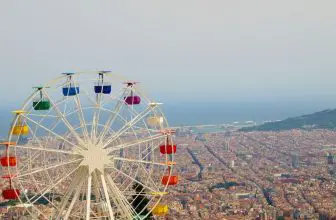
Barcelona in May: Weather & Things to Do

Madrid in June: Weather & Things to Do
Leave a reply cancel reply.
Save my name, email, and website in this browser for the next time I comment.
- 8 Luxury Hotels in Gran Canaria | Boutiques, 5-star, & Resorts
- Málaga To Ronda Day Trip | Is It Better By Train, Plane, or Car?
Traveling in Spain aims to help tourists and locals find the best adventures, and tours in Spain. We collect live prices from trusted tour and ticketing operators. We’ll sometimes link out to our affiliate partners, such as Amazon LLC, and make a small commission at no extra cost to you.
Privacy Overview

Shopping cart
- Skip to main content
- Skip to "About this site"
Language selection
Search travel.gc.ca.
Help us to improve our website. Take our survey !
COVID-19: travel health notice for all travellers
Spain travel advice
Latest updates: The Need help? section was updated.
Last updated: April 11, 2024 07:18 ET
On this page
Safety and security, entry and exit requirements, laws and culture, natural disasters and climate, spain - exercise a high degree of caution.
Exercise a high degree of caution in Spain due to the threat of terrorism
Back to top
Petty crime
Petty crime, such as pickpocketing and purse snatching, is common. It’s most prevalent in larger cities and particularly during holidays, festivals and weekends.
Thieves work alone or in groups and may use various techniques to distract you and steal your belongings, such as asking for directions or informing you of a stain on your clothes.
Individuals posing as plainclothes police officers may ask to see your passport, IDs or wallets. In this situation, politely ask to see their official identification badge to verify that the request is legitimate.
Thieves are especially active in crowded areas, such as:
- airports and public transportation facilities
- hotel lobbies
- restaurants, patios and outdoor cafés
- tourist attractions
In Madrid, thieves are particularly active in the following areas:
- Atocha train station
- Gran Vía
- Plaza Cibeles and Paseo del Prado
- Puerta del Sol area, Plaza Mayor and surrounding streets
- Retiro park
- the subway system
There has been a significant increase in stolen passports in the Barcelona region during the last few years.
In Barcelona, thieves are particularly active in the following areas:
- Barceloneta beach
- El-Prat airport and on the airport shuttle bus (the Aerobus)
- Güell park
- Las Ramblas, including in Internet cafés
- Passeig de Gràcia
- Plaça de Catalunya
- Plaça Reial and surrounding streets of the old city (Ciutat Vella
- Sagrada Família Basilica
- Sants train and bus station
Useful links
- Security advice while in Catalonia - Mossos d’Esquadra
- Tips to stay safe - Municipality of Barcelona
While in Spain:
- ensure that your belongings, including your passport and other travel documents, are secure at all times
- carry a photocopy or digital copy of your passport identification page, driver’s licence, train or airline tickets and credit cards
- at the beach, bring only the essentials
- expect travel delays and additional expenses if your passport is stolen
- don’t leave luggage unattended at airport check-in or ticket counters, car rental desks or hotel lobbies
- avoid frequenting unlit areas
Violent crime
Violent crime is rare but does occur. Home burglaries happen in larger cities and coastal areas and sometimes affect homes or vacation rental apartments offered through online accommodation apps.

On the road
Thieves have been known to simulate or provoke road-related incidents, such as flat tires. When a motorist stops to help, the thieves steal the motorist’s car or belongings. The reverse scenario has also occurred, whereby a thief offers to help a motorist in distress and steals the motorist’s car or belongings.
In the event of a road-related incident, be extremely cautious about accepting help from anyone other than a uniformed officer from the National Police Corps or Civil Guard.
There is also a high threat of theft from rental and parked vehicles.
- Be particularly vigilant in service areas on coastal highways
- Use secure parking facilities
- Avoid leaving any luggage or valuables in the vehicle
- Always lock your doors and keep windows closed
Foreign Tourist Assistance Service
Several municipalities have dedicated police units for foreign tourists (SATE) and offer services in English and other languages.
You can also call the tourist hotline to file a police report with the assistance of a translator.
- Safety tips for tourists - Policía Nacional
- Foreign Tourist Assistance Service (SATE) in Madrid - Tourism Madrid
- Tourist Assistance Service in Barcelona (Ciutat Vella District) - Guàrdia Urbana de Barcelona
- Foreign Tourist Assistance Service (SATE) in Málaga - Tourism Málaga
- Hotline service to file a police report with a translator - Policía Nacional
There is a threat of terrorism in Europe. Terrorists have carried out attacks in several European cities.
In Spain, attacks causing deaths and injuries have taken place. Further attacks in Spain cannot be ruled out. Further attacks elsewhere in Europe are likely.
Targets could include:
- government buildings, including schools
- places of worship
- airports and other transportation hubs and networks
- public areas such as tourist attractions, restaurants, bars, coffee shops, shopping centres, markets, hotels and other sites frequented by foreigners
Always be aware of your surroundings when in public places. Be particularly vigilant if attending sporting events and during religious holidays and other public celebrations, as terrorists have used such occasions to mount attacks.
The Spanish government maintains a public alert system on terrorism and communicates threat level changes online and through local media. The current threat level for Spain is level 4 (“high”) on a scale of 5.
Terrorism threat level - Spanish Ministry of the Interior (in Spanish)
Internet scams
Unsolicited emails offering enticing business or financial opportunities are most likely fraudulent.
These emails may involve the following scenarios:
- prizes won in the Spanish lottery (el Gordo)
- inheritance
- a friend or family member who appears to be in distress abroad
Never send funds to an unknown individual. Don’t travel to Spain to obtain restitution after losing money to a scam.
Romance scams
If you’re travelling to Spain to meet someone you’ve otherwise only met online, you may be the victim of a scam. Be wary of attempts at fraud by persons who profess friendship or romantic interest over the internet.
Investment scams
If you plan to buy a property or make other investments in Spain, seek legal advice in Canada and Spain. Do so before making commitments. Related disputes could take time and be costly to resolve.
Credit card and ATM fraud
Credit card and ATM fraud occurs.
When using debit or credit cards:
- pay careful attention if other people are handling your cards
- use ATMs located in public areas or inside a bank or business
- avoid using card readers with an irregular or unusual feature
- cover the keypad with one hand when entering your PIN
- check for any unauthorized transaction on your account statements
Overseas fraud
Spiked food and drinks
Never leave food or drinks unattended or in the care of strangers. Be wary of accepting snacks, beverages, gum or cigarettes from new acquaintances, as the items may contain drugs that could put you at risk of sexual assault and robbery.
Demonstrations and strikes
Demonstrations and strikes occur regularly. They also take place sporadically in Catalonia, including in Barcelona, in response to political events. Violent clashes between demonstrators and police have taken place.
Even peaceful demonstrations can turn violent at any time. They can also lead to traffic and public transportation disruptions, including access to roads, airports, and the railway and metro systems. Flight delays or cancellations, as well as disruptions at ports, are also possible.
- Avoid areas where demonstrations and large gatherings are taking place
- Follow the instructions of local authorities
- Monitor local media for information on ongoing demonstrations
- Be prepared to change your travel plans on short notice
Mass gatherings (large-scale events)
Swimming and water activities
Coastal waters can be dangerous. Always obey warning flags at beaches, lakes and rivers.
The main warning flags used in Spain are:
- Green: calm waters, swimming is allowed
- Yellow: agitated waters, swimming with precautions is recommended
- Red: dangerous waters, swimming or entering the water is forbidden
- Black: contaminated waters, avoid swimming
In marine areas, coral, jellyfish and other ocean life found along reefs can poison, sting or cause infection if touched or stepped on.
- Ask local authorities about the presence of such species and whether they are dangerous
- Immediately seek medical assistance if you get hurt
In the fall and winter months, be cautious when walking along beaches close to the water’s edge as waves can be unpredictable in size and may come onto shore further than expected.
- Don’t visit beaches or coastal areas during periods of severe weather warnings
- Look out for signs warning of cliff erosion and falling rocks
- Don’t dive into unknown waters, as hidden rocks or shallow depths can cause serious injury or death
- Exercise caution and follow the advice of the local authorities
Water safety abroad
Mountain activities
If you intend to do mountaineering or skiing:
- never do so alone and always hire an experienced guide from a reputable company
- buy travel insurance that includes helicopter rescue and medical evacuation
- ensure that your physical condition is good enough to meet the challenges of your activity
- ensure that you’re adequately equipped and well informed about weather and other conditions that may pose a hazard
- inform a family member or friend of your itinerary, including when you expect to be back
- know the symptoms of acute altitude sickness, which can be fatal
- obtain detailed information on trekking routes or ski slopes before setting out and do not venture off marked trails or slopes
Road safety
Road conditions and road safety can vary throughout the country. Some drivers are aggressive and drive at excessive speeds.
Travellers may experience delays crossing between Spain and Gibraltar due to increased border controls.
- Be sure you are prepared for lengthy delays
- Plan for an adequate supply of fuel, food, and water
We do not make assessments on the compliance of foreign domestic airlines with international safety standards.
Information about foreign domestic airlines
Every country or territory decides who can enter or exit through its borders. The Government of Canada cannot intervene on your behalf if you do not meet your destination’s entry or exit requirements.
We have obtained the information on this page from the Spanish authorities. It can, however, change at any time.
Verify this information with the Foreign Representatives in Canada .
- Schengen area
Spain is a Schengen area country. Canadian citizens do not need a visa for travel to countries within the Schengen area. However, visa-free travel only applies to stays of up to 90 days in any 180-day period. Stays are cumulative and include visits to any Schengen area country.
If you plan to stay in the Schengen area for a longer period of time, you will need a visa. You must contact the high commission or embassy of the country or countries you are travelling to and obtain the appropriate visa(s) prior to travel.
- Foreign Representatives in Canada
Entry requirements vary depending on the type of passport you use for travel.
Before you travel, check with your transportation company about passport requirements. Its rules on passport validity may be more stringent than the country’s entry rules.
Regular Canadian passport
Your passport must be valid for at least 3 months beyond the date you expect to leave the Schengen area.
Passport for official travel
Different entry rules may apply.
Official travel
Passport with “X” gender identifier
While the Government of Canada issues passports with an “X” gender identifier, it cannot guarantee your entry or transit through other countries. You might face entry restrictions in countries that do not recognize the “X” gender identifier. Before you leave, check with the closest foreign representative for your destination.
Other travel documents
Different entry rules may apply when travelling with a temporary passport or an emergency travel document. Before you leave, check with the closest foreign representative for your destination.
- Foreign Representatives in Canada
- Canadian passports
Tourist visa: not required for stays up to 90 days in any 180-day period Business visa: not required Student visa: required
Other entry requirements
Customs officials may ask you to show them a return or onward ticket and proof of sufficient funds to cover your stay.
Children and travel
Learn more about travelling with children .
Yellow fever
Learn about potential entry requirements related to yellow fever (vaccines section).
Relevant Travel Health Notices
- Global Measles Notice - 13 March, 2024
- COVID-19 and International Travel - 13 March, 2024
This section contains information on possible health risks and restrictions regularly found or ongoing in the destination. Follow this advice to lower your risk of becoming ill while travelling. Not all risks are listed below.
Consult a health care professional or visit a travel health clinic preferably 6 weeks before you travel to get personalized health advice and recommendations.
Routine vaccines
Be sure that your routine vaccinations , as per your province or territory , are up-to-date before travelling, regardless of your destination.
Some of these vaccinations include measles-mumps-rubella (MMR), diphtheria, tetanus, pertussis, polio, varicella (chickenpox), influenza and others.
Pre-travel vaccines and medications
You may be at risk for preventable diseases while travelling in this destination. Talk to a travel health professional about which medications or vaccines may be right for you, based on your destination and itinerary.
Yellow fever is a disease caused by a flavivirus from the bite of an infected mosquito.
Travellers get vaccinated either because it is required to enter a country or because it is recommended for their protection.
- There is no risk of yellow fever in this country.
Country Entry Requirement*
- Proof of vaccination is not required to enter this country.
Recommendation
- Vaccination is not recommended.
* It is important to note that country entry requirements may not reflect your risk of yellow fever at your destination. It is recommended that you contact the nearest diplomatic or consular office of the destination(s) you will be visiting to verify any additional entry requirements.
About Yellow Fever
Yellow Fever Vaccination Centres in Canada
Measles is a highly contagious viral disease. It can spread quickly from person to person by direct contact and through droplets in the air.
Anyone who is not protected against measles is at risk of being infected with it when travelling internationally.
Regardless of where you are going, talk to a health care professional before travelling to make sure you are fully protected against measles.
Hepatitis B is a risk in every destination. It is a viral liver disease that is easily transmitted from one person to another through exposure to blood and body fluids containing the hepatitis B virus. Travellers who may be exposed to blood or other bodily fluids (e.g., through sexual contact, medical treatment, sharing needles, tattooing, acupuncture or occupational exposure) are at higher risk of getting hepatitis B.
Hepatitis B vaccination is recommended for all travellers. Prevent hepatitis B infection by practicing safe sex, only using new and sterile drug equipment, and only getting tattoos and piercings in settings that follow public health regulations and standards.
Coronavirus disease (COVID-19) is an infectious viral disease. It can spread from person to person by direct contact and through droplets in the air.
It is recommended that all eligible travellers complete a COVID-19 vaccine series along with any additional recommended doses in Canada before travelling. Evidence shows that vaccines are very effective at preventing severe illness, hospitalization and death from COVID-19. While vaccination provides better protection against serious illness, you may still be at risk of infection from the virus that causes COVID-19. Anyone who has not completed a vaccine series is at increased risk of being infected with the virus that causes COVID-19 and is at greater risk for severe disease when travelling internationally.
Before travelling, verify your destination’s COVID-19 vaccination entry/exit requirements. Regardless of where you are going, talk to a health care professional before travelling to make sure you are adequately protected against COVID-19.
The best way to protect yourself from seasonal influenza (flu) is to get vaccinated every year. Get the flu shot at least 2 weeks before travelling.
The flu occurs worldwide.
- In the Northern Hemisphere, the flu season usually runs from November to April.
- In the Southern Hemisphere, the flu season usually runs between April and October.
- In the tropics, there is flu activity year round.
The flu vaccine available in one hemisphere may only offer partial protection against the flu in the other hemisphere.
The flu virus spreads from person to person when they cough or sneeze or by touching objects and surfaces that have been contaminated with the virus. Clean your hands often and wear a mask if you have a fever or respiratory symptoms.
In this destination, rabies may be present in some wildlife species, including bats. Rabies is a deadly disease that spreads to humans primarily through bites or scratches from an infected animal.
If you are bitten or scratched by an animal while travelling, immediately wash the wound with soap and clean water and see a health care professional.
Before travel, discuss rabies vaccination with a health care professional. It may be recommended for travellers who will be working directly with wildlife.
Safe food and water precautions
Many illnesses can be caused by eating food or drinking beverages contaminated by bacteria, parasites, toxins, or viruses, or by swimming or bathing in contaminated water.
- Learn more about food and water precautions to take to avoid getting sick by visiting our eat and drink safely abroad page. Remember: Boil it, cook it, peel it, or leave it!
- Avoid getting water into your eyes, mouth or nose when swimming or participating in activities in freshwater (streams, canals, lakes), particularly after flooding or heavy rain. Water may look clean but could still be polluted or contaminated.
- Avoid inhaling or swallowing water while bathing, showering, or swimming in pools or hot tubs.
Insect bite prevention
Many diseases are spread by the bites of infected insects such as mosquitoes, ticks, fleas or flies. When travelling to areas where infected insects may be present:
- Use insect repellent (bug spray) on exposed skin
- Cover up with light-coloured, loose clothes made of tightly woven materials such as nylon or polyester
- Minimize exposure to insects
- Use mosquito netting when sleeping outdoors or in buildings that are not fully enclosed
To learn more about how you can reduce your risk of infection and disease caused by bites, both at home and abroad, visit our insect bite prevention page.
Find out what types of insects are present where you’re travelling, when they’re most active, and the symptoms of the diseases they spread.
- In this country, risk of dengue is sporadic. It is a viral disease spread to humans by mosquito bites.
- Dengue can cause flu-like symptoms. In some cases, it can lead to severe dengue, which can be fatal.
- The level of risk of dengue changes seasonally, and varies from year to year. The level of risk also varies between regions in a country and can depend on the elevation in the region.
- Mosquitoes carrying dengue typically bite during the daytime, particularly around sunrise and sunset.
- Protect yourself from mosquito bites . There is no vaccine or medication that protects against dengue fever.
Animal precautions
Some infections, such as rabies and influenza, can be shared between humans and animals. Certain types of activities may increase your chance of contact with animals, such as travelling in rural or forested areas, camping, hiking, and visiting wet markets (places where live animals are slaughtered and sold) or caves.
Travellers are cautioned to avoid contact with animals, including dogs, livestock (pigs, cows), monkeys, snakes, rodents, birds, and bats, and to avoid eating undercooked wild game.
Closely supervise children, as they are more likely to come in contact with animals.
Human cases of avian influenza have been reported in this destination. Avian influenza is a viral infection that can spread quickly and easily among birds and in rare cases it can infect mammals, including people. The risk is low for most travellers.
Avoid contact with birds, including wild, farm, and backyard birds (alive or dead) and surfaces that may have bird droppings on them. Ensure all poultry dishes, including eggs and wild game, are properly cooked.
Travellers with a higher risk of exposure include those:
- visiting live bird/animal markets or poultry farms
- working with poultry (such as chickens, turkeys, domestic ducks)
- hunting, de-feathering, field dressing and butchering wild birds and wild mammals
- working with wild birds for activities such as research, conservation, or rehabilitation
- working with wild mammals, especially those that eat wild birds (e.g., foxes)
All eligible people are encouraged to get the seasonal influenza shot, which will protect them against human influenza viruses. While the seasonal influenza shot does not prevent infection with avian influenza, it can reduce the chance of getting sick with human and avian influenza viruses at the same time.
Person-to-person infections
Stay home if you’re sick and practise proper cough and sneeze etiquette , which includes coughing or sneezing into a tissue or the bend of your arm, not your hand. Reduce your risk of colds, the flu and other illnesses by:
- washing your hands often
- avoiding or limiting the amount of time spent in closed spaces, crowded places, or at large-scale events (concerts, sporting events, rallies)
- avoiding close physical contact with people who may be showing symptoms of illness
Sexually transmitted infections (STIs) , HIV , and mpox are spread through blood and bodily fluids; use condoms, practise safe sex, and limit your number of sexual partners. Check with your local public health authority pre-travel to determine your eligibility for mpox vaccine.
Medical services and facilities
Health care is excellent. Service is available throughout the country but may be limited in certain rural areas.
Private healthcare is also widely available. Upfront payment may be required.
Make sure you get travel insurance that includes coverage for medical evacuation and hospital stays.
Travel health and safety
Keep in Mind...
The decision to travel is the sole responsibility of the traveller. The traveller is also responsible for his or her own personal safety.
Be prepared. Do not expect medical services to be the same as in Canada. Pack a travel health kit , especially if you will be travelling away from major city centres.
water_restrictions_in_catalonia
Water restrictions in Catalonia
On February 1, 2024, the Government of Catalonia declared a state of emergency and imposed water restrictions due to drought. The restrictions affect 229 municipalities, including Barcelona. They include daily use limits and prohibit certain high-use activities.
- Confirm if water restrictions apply in your location
Information on water restrictions – Government of Catalonia (in Catalan)
You must abide by local laws.
Learn about what you should do and how we can help if you are arrested or detained abroad .
Transfer to a Canadian prison
Canada and Spain are signatories to the Convention on the Transfer of Sentenced Persons. This enables a Canadian imprisoned in Spain to request a transfer to a Canadian prison to complete a sentence. The transfer requires the agreement of both Canadian and Spain authorities.
This process can take a long time, and there is no guarantee that the transfer will be approved by either or both sides.
Identification
Local authorities may ask you to show ID at any time. You must carry an adequate ID, such as a passport, to show upon request. You could be detained until you can prove your identity.
Keep a photocopy or digital copy of your passport’s photo page in a safe place should your passport be lost or seized.
In Spain, foreign visitors must present a passport upon check-in at a hotel. Restaurants, hotels, shops and other such establishments also routinely request passports or other pieces of government-issued photo identification, such as a driver’s licence, to process credit card transactions.
- Don’t leave your passport or any other ID document with anyone
- Wait until they have taken the details or made a copy of it and have given the document back to you
Penalties for possession, use or trafficking of illegal drugs are severe. Convicted offenders can expect jail sentences or heavy fines.
In several autonomous regions and municipalities, including Madrid, Barcelona and the Balearic Islands, alcohol consumption in the street is prohibited. If you don’t comply, you could be fined.
Drugs, alcohol and travel
Photography
It is illegal to photograph military installations.
Some municipalities, including Barcelona, have banned beachwear outside of local beaches, including on beachfront promenades.
If caught, you could face on-the-spot fines.
Counterfeit merchandise
It is illegal in certain municipalities to buy counterfeit merchandise from street vendors, such as sunglasses or purses.
Local authorities may impose heavy fines on tourists caught buying counterfeit merchandise.
Dual citizenship
Dual citizenship is not legally recognized in Spain.
If local authorities consider you a citizen of Spain, they may refuse to grant you access to Canadian consular services. This will prevent us from providing you with those services.
Travellers with dual citizenship
International Child Abduction
The Hague Convention on the Civil Aspects of International Child Abduction is an international treaty. It can help parents with the return of children who have been removed to or retained in certain countries in violation of custody rights. The convention applies between Canada and Spain.
If your child was wrongfully taken to, or is being held in Spain, and if the applicable conditions are met, you may apply for the return of your child to the Spanish court.
If you are in this situation:
- act as quickly as you can
- contact the Central Authority for your province or territory of residence for information on starting an application under The Hague Convention
- consult a lawyer in Canada and in Spain to explore all the legal options for the return of your child
- report the situation to the nearest Canadian government office abroad or to the Vulnerable Children’s Consular Unit at Global Affairs Canada by calling the Emergency Watch and Response Centre
If your child was removed from a country other than Canada, consult a lawyer to determine if The Hague Convention applies.
Be aware that Canadian consular officials cannot interfere in private legal matters or in another country’s judicial affairs.
- List of Canadian Central Authorities for the Hague Convention
- International Child Abduction: A Guidebook for Left-Behind Parents
- Travelling with children
- The Hague Convention - Hague Conference on Private International Law
- Canadian embassies and consulates by destination
- Emergency Watch and Response Centre
You can drive in Spain with your valid Canadian driver’s licence and an international driving permit for up to 6 months. For stays longer than 6 months, you must obtain a local driver’s licence.
Vehicles must be equipped for emergency situations. You must carry the following items:
- 2 red warning triangles, of which one must be placed in front of the vehicle and one behind in case of accident or breakdown
- a reflective jacket, kept inside the car (not in the trunk), that you must wear when leaving a vehicle stranded or involved in a highway accident
- a spare tire and a repair kit
- a full set of spare light bulbs, plus the tools to change them
- snow chains if travelling in adverse winter conditions
You may be subject to on-the-spot fines if you fail to comply with these laws.
Emission zones
Certain cities have put in place low-emission or zero-emission zones (Zona de Bajas Emisiones [ZBE] and Area Central Cero Emisiones [ACCE]) to reduce air pollution. Access to these zones is restricted, and speed limits are lowered.
You may need to obtain a permit to prove that your vehicle responds to environmental standards.
- Driving in Spain - European Commission
- Obtaining a Spanish licence - General Traffic Directorate (in Spanish)
- More about the International Driving Permit
The currency of Spain is the euro (EUR).
If you are carrying €10,000 or more, or the equivalent in other currencies, you must make a declaration to customs when you enter or leave the European Union. It includes sums in:
- banknotes and coins
- bearer negotiable instruments such as cheques, travellers’ cheques, promissory notes and money orders
- bonds, shares
- gold coins with a gold content of at least 90 %
- gold bars, nuggets or clumps with a gold content of at least 99.5 %
- any other convertible asset
This does not apply if you are travelling within the European Union or in transit to a non-EU country.
EU cash controls - European Commission
Torrential rainfall and storms are common during the fall on the Mediterranean coast, particularly in the Valencian Community and the Balearic Islands.
Winter storms and heavy snowfall may also occur, particularly in northern and mountainous areas.
- Latest weather warnings - Spanish government’s meteorological agency
High temperatures create dry conditions, which can lead to large fires throughout Spain, particularly during summer. Fires can lead to railway and road closures, including major highways, and affect air traffic.
The air quality in areas near active fires may deteriorate due to heavy smoke and affect travellers with respiratory ailments.
In case of a major fire:
- avoid areas affected by active wildfires
- follow the instructions of local emergency services personnel, including any evacuation orders
- monitor local media sources for up-to-date information
Civil protection - Spanish Ministry of the Interior (in Spanish)
Mountainous areas
The weather in mountainous areas can be unpredictable. If you plan a mountain or skiing holiday, stay informed of the latest weather and safety conditions.
Hazardous winter conditions, such as heavy snowfall, blizzards and freezing temperatures, may put pilgrims at risk on the French route of St. James Way (“Camino de Santiago”). As a result, between November 1 and March 31, the East access through Navarra via Lepoeder is closed.
Follow signage and take the West route (Luzaide/Valcarlos) during this period.
- Weather forecast in the Pyrenees - Pyrenees reference centre for mountain risk management (A Lurte) (in Spanish)
- Way of St James through Navarra - Tourism Navarra
- Way of St James through Galicia - Tourism Galicia
Local services
Dial 112 for emergency assistance.
A hotline service to file a police report with a translator is available from 9 a.m. to 9 p.m. on weekdays.
Dial 902 102 112
The service is not available on weekends and public holidays.
Hotline service to file a police report with a translator - Policía Nacional
Consular assistance
Spain, Andorra, and Canary Islands
For emergency consular assistance, call the Embassy of Canada to Spain, in Madrid, and follow the instructions. At any time, you may also contact the Emergency Watch and Response Centre in Ottawa.
The decision to travel is your choice and you are responsible for your personal safety abroad. We take the safety and security of Canadians abroad very seriously and provide credible and timely information in our Travel Advice to enable you to make well-informed decisions regarding your travel abroad.
The content on this page is provided for information only. While we make every effort to give you correct information, it is provided on an "as is" basis without warranty of any kind, expressed or implied. The Government of Canada does not assume responsibility and will not be liable for any damages in connection to the information provided.
If you need consular assistance while abroad, we will make every effort to help you. However, there may be constraints that will limit the ability of the Government of Canada to provide services.
Learn more about consular services .
Risk Levels
take normal security precautions.
Take similar precautions to those you would take in Canada.
Exercise a high degree of caution
There are certain safety and security concerns or the situation could change quickly. Be very cautious at all times, monitor local media and follow the instructions of local authorities.
IMPORTANT: The two levels below are official Government of Canada Travel Advisories and are issued when the safety and security of Canadians travelling or living in the country or region may be at risk.
Avoid non-essential travel
Your safety and security could be at risk. You should think about your need to travel to this country, territory or region based on family or business requirements, knowledge of or familiarity with the region, and other factors. If you are already there, think about whether you really need to be there. If you do not need to be there, you should think about leaving.
Avoid all travel
You should not travel to this country, territory or region. Your personal safety and security are at great risk. If you are already there, you should think about leaving if it is safe to do so.
Is Spain Safe for Travel in 2024?
Is Spain safe for travel in 2024? Generally, yes! With the right precautions, travelers can absolutely reduce their risk while visiting Spain.
Locals in Spain gave us some tips about staying safe in their country. With their help, we put together this guide, which covers everything from the COVID pandemic to tips for solo travelers.
Looking for insider info on safety in Spain? Work with a local for on-the-ground access as you plan your trip. Learn more .
- What to know about Spain and the COVID pandemic
- State of affairs in Spain
- Common scams and petty theft
- What to know about transportation safety
- Water quality in Spain
- Beach safety tips
- What solo travelers should know
Emergency numbers you should know

Spain and the COVID pandemic
Spain has recently loosened restrictions on Americans, making this delightful destination much more accessible. Here's what you need to know:
- Both vaccinated and unvaccinated travelers may visit Spain without a negative COVID test.
- Masks remain required on public transit (including airplanes).
- Roughly 86% of the population is fully vaccinated (as of fall 2022).
Still have questions? We recommend reaching out to a Hero in Spain who can share their local knowledge.
Spain is one of the safest countries in Europe
Generally, Spain is considered to be a safe place to visit. In fact, Spain ranks as one of the top 10% of the safest countries in the world.
Locals tell us that you should exercise the same kind of caution you would anywhere else. This is especially true in big cities like Madrid, Barcelona, or any other high-traffic area. Be aware of your surroundings and keep an eye on your belongings—just like you would do at home.
How ViaHero Works

Choose a local

Message the local

Get a guidebook
There’s little serious crime, but watch out for petty theft .
Generally, Spain is a safe to place to visit. However, given that Spain is filled with travelers the country also attracts a lot of pickpockets. Locals say they tend to strike in crowded places like bus and train stations.
Our locals recommend keeping your extra cash, credit cards, and passport locked in your hotel safe. Only take what you need when you’re out and about.
Use local insights to stay safe . These are some common scams that our locals recommend you watch out for:
The trileros scam
This scam is commonly known as the “shell game”. A seated performer will put a ball, pea, or other small objects under a cup or shell, mix the cups or shells around, and ask you to bet which one contains the object. It’s rigged, and you won't win. More importantly, though, it makes the spectators easy targets—while they’re concentrating on following the shells, they’re not concentrating on watching their stuff.
The Rosemary gift scam
In this scam, a Roma (gypsy) woman will offer you a small rosemary plant as a “gift”. Often, she’ll also grab your palm to read your fortune. While you’re distracted, someone may pick your pockets. Or, if she’s working alone, she’ll simply demand money for her “service”.
Transportation is as safe as you make it
Public transportation in Spain is really safe and reliable.
Locals tell us that buses, trains, and metros are the best ways to get around Spain. However, they note that you should keep your wits about you when you’re in a crowd—pickpockets will use the close quarters to try to grab your belongings.
It can be overwhelming to figure out transportation in a new country. So take the stress out of travel planning —our locals will provide detailed transit instructions (and ideas for what to do once you arrive in your destination).
If you find yourself on the metro at night, avoid riding in an empty carriage.
The water is safe to drink
All tap water in Spain is safe to drink—but as with any place where you’re not used to the water, you will have to get used to the taste. You may notice a chlorine-like aftertaste in some coastal areas of Spain.
To travel in a more sustainable way , invest in a filtered water bottle that you can carry with you instead of buying bottled water.
Make your time at the shore a safe one
Lying on the beach is one of the more popular things to do in Spain , but locals say to keep a couple of things in mind. The Mediterranean coast is hot and sunstroke is a real concern. Stay hydrated and don’t overdo it with the sangria. Our locals note you should be aware of the flag systems at the beaches:
- A red flag means it’s not safe to go in the water.
- A yellow flag means use caution (undertows).
- A black flag means the beach is closed.
The best beaches sport blue flags—that means they meet the highest standards of international health and safety.

Tips for solo female travelers
Spain is a great place for solo female travelers. To stay safe as a solo traveler, locals recommend:
- Carry your purse in front of you and close to your body when you're on the metro or in a crowded place.
- Go out a night with a group of trusted people ; don’t walk on deserted or poorly-lit streets.
- You may experience catcalling as you walk down the street, but it’s no worse in Spain than anywhere else in Western Europe.
- Buy your own drinks so you know what’s in them.
- Don’t share too much info with people you don’t know.
- Always use licensed taxis.
No one knows a place like the locals do . Our locals in Spain can explain how they stay safe in their hometown.
Here are some emergency numbers to know in case you run into trouble:
- Emergency - 112
- Police - 091
- Health emergencies - 061
- U.S. Embassy Madrid (34) 91-587-2200
- Website - U.S. Embassy Madrid
Our locals are also available with phone support in case you need them.
Looking for more info?
- Tips and Tricks
Is it safe to travel to Spain right now? Spain travel guide 2021

- September 22, 2021
Spain has always been one of the most popular travel destinations for tourists from all around the globe.
Last year Spanish borders were closed for a good amount of year, and countless tourists missed their opportunity to see one of Europe’s most visited countries .
In recent months, the situation has stabilized, and borders are now fully open, but many people still wonder: Is it now finally safe to travel to Spain?
For that reason, we at Travel & Tapas have decided to help you out by collecting all information that can be useful and gather them into one complete Spain travel guide .
This article contains affiliate links. We may receive a commission for any purchases made through these links.
Table of Contents
Is spain a safe country to visit, is it safe to travel to spain right now, spain entry requirements, choosing your accommodation, booking your flight, transportation from airport, do you need travel insurance for spain.
In normal circumstances, Spain is a safe country to travel to .
Problems you could face are pick-pocketing and minor street trickery. Both are something that happens in most big cities around the world. The important thing is to always take care of your possessions and who you are socializing with.

Generally, Spanish people are incredibly positive , and if you had a problem, you would easily find someone to help you resolve it.
Because of that, Spain is one of the safest countries to travel to.
But let’s be honest, with the current circumstances, pick-pocketing is not on the top of the safety issues people worry about when traveling. Keeping that in mind…
Does border opening mean there is nothing to worry about?
Even though the situation got much better , there are still several rules that need to be followed. In case you are planning to visit Spain in near future, you should be aware of the latest travel restrictions .

A good source for anyone who is traveling from Europe is the Schengenvisainfo news website.
At this moment for anyone to enter Spain, they must:
- have proof of residency or citizenship
- be a health worker or a frontier worker
- have evidence of why it is essential to enter Spain
- have a proof of flight that is transiting Spain

For countries that are not in the European Union but do not need a visa for a 90-day stay in the Schengen area, these requirements are:
- valid passport (3-6 months before expiration date) or other travel documents
- return ticket (this is not a necessity, but you could be asked for it)
- enough funds for the desired stay up to 90 days
For a stay of more than 90 days in E.U., you should acquire a visa according to your necessity and rights.
How to plan a trip to Spain?
Planning a trip to Spain at this time can be a little bit tricky because many things are yet uncertain. But planning your steps carefully can help you minimize unexpected problems .
The smart way to plan a trip is to book a hotel or other accommodation on time. Some hotels may not accept guests at regular capacity, so checking that information on time is a good idea. It is recommendable to find your place to stay before you start planing other things.
In addition, hotels may have some requirements or rules that you should be aware of before booking. For example, they may ask for extra documentation before checking in or have some specific house rules that could affect your plans. So be thorough and do not hesitate to contact staff by mail or even phone.
When you decide on accommodation, before setting the dates, you should also find a corresponding flight.
If you are traveling from anywhere inside Europe, Ryanair could be a good option. Their flights are frequent so, there is plenty of times and dates to choose from . On top of that, they offer superb deals.

It is always recommendable to buy a return ticket and save yourself from unnecessary fuss at the customs.
Professional tip : Don’t limit yourself only on choosing flights to the city you are staying in. Sometimes you can find much better deals and save a lot of money by flying to adjacent cities. Spain has airports in a lot of places and usually a good connection between them.
Another important thing you should take into consideration is how you will get from the airport to your destination.
If you book a flight to another city, be sure to check how the mobility between the places is regulated.
Even though travel medical insurance is not required for you to enter Spain (at least in most cases), you should definitely consider buying one . In the current situation, being insured is crucial.
There are plenty of options to consider based on factors like the duration or type of your trip or other specific reasons related to your health.
When we were planning our trip to Spain and Portugal in 2020, we made sure to compare a great number of options and choose the one that will make us feel the safest if something were to happen, and we suggest you do it, too.

In the end, we decided to go with Nomad Insurance from SafetyWing . It seemed like the best option for someone traveling to multiple countries and not having it all planned out.
Luckily, nothing went wrong, but we were safe and sound, and that was super important. If you’re not sure where to start, we recommend checking their website by clicking the button below.

We know we’ll be using their plans again.
Here are some of the reasons that influenced our decision on going with SafetyWing:
- In times that carry extra concerns on top of your standard health worries during traveling, it’s good to have a plan that addresses these concerns specifically. So, on top of dealing with regular medical problems, this plan had a segment just for these crazy times. That made us feel extra safe.
- Their website is very intuitive and easy to navigate . This may not seem like an important thing for insurance, but let’s face it – it’s 2021, and being able to finish things in a few steps over the phone sometimes is a lifesaver.
- If you’re a Digital Nomad or just frequently changing countries during your trips, you get bored of all the documentation. SafetyWing makes this process easy and smooth , plus all the illustrations on their website make buying insurance more fun than it should be.
- Unlike many other travel medical insurance plans, SafteyWing lets you buy insurance when you’re already abroad. So if you forget to do it before your trip, it’s not too late to do it from your hotel room.
Of course, you don’t have to be a nomad or plan a giant trip to find a suitable plan from SafetyWing. They also cover short stays and vacations from 5 days onward.
We appreciate your support!
Thank you for reading our content and following our journey! We are working towards becoming full-time content creators and being able to share stories with you even more frequently. If you’d like to support us to be one step closer to that goal , you can do it through Ko-Fi! 👇🏽
Prepare for Spain

- Spanish Language
italki 2022 Review – The Best Platform to Learn Spanish Online
- February 26, 2022

- Coliving Movement
Why Spain should be your first coliving experience?
- November 18, 2021
Secure yourself the best travel experience
- SafetyWing – The best travel insurance for digital nomads and remote workers . It is perfect for all people who want to experience a coliving way of lifestyle.
- italki – Why not learn some Spanish before your trip and make your coliving even better? italki is the perfect platform for that, where more than 3500 native speakers are waiting to help you with your Spanish.
- Discover Cars – Spain is a large country, and there is a lot of land to cover. The cheapest way to do that and truly explore Spain is by renting a car.
Related Tags
- Spain Travel Guide
- Travel Insurance
- Travel Spain
- Visit Spain
Co-creator and Lead Writer at Travel & Tapas.
You May Also Like

- 10 minute read
International students in Spain – What to expect?
- June 24, 2020

- 9 minute read
Ferias in Spain you should really not miss this year
- March 3, 2020
Privacy Overview

Search Smartraveller

Latest update
Exercise normal safety precautions in Spain.
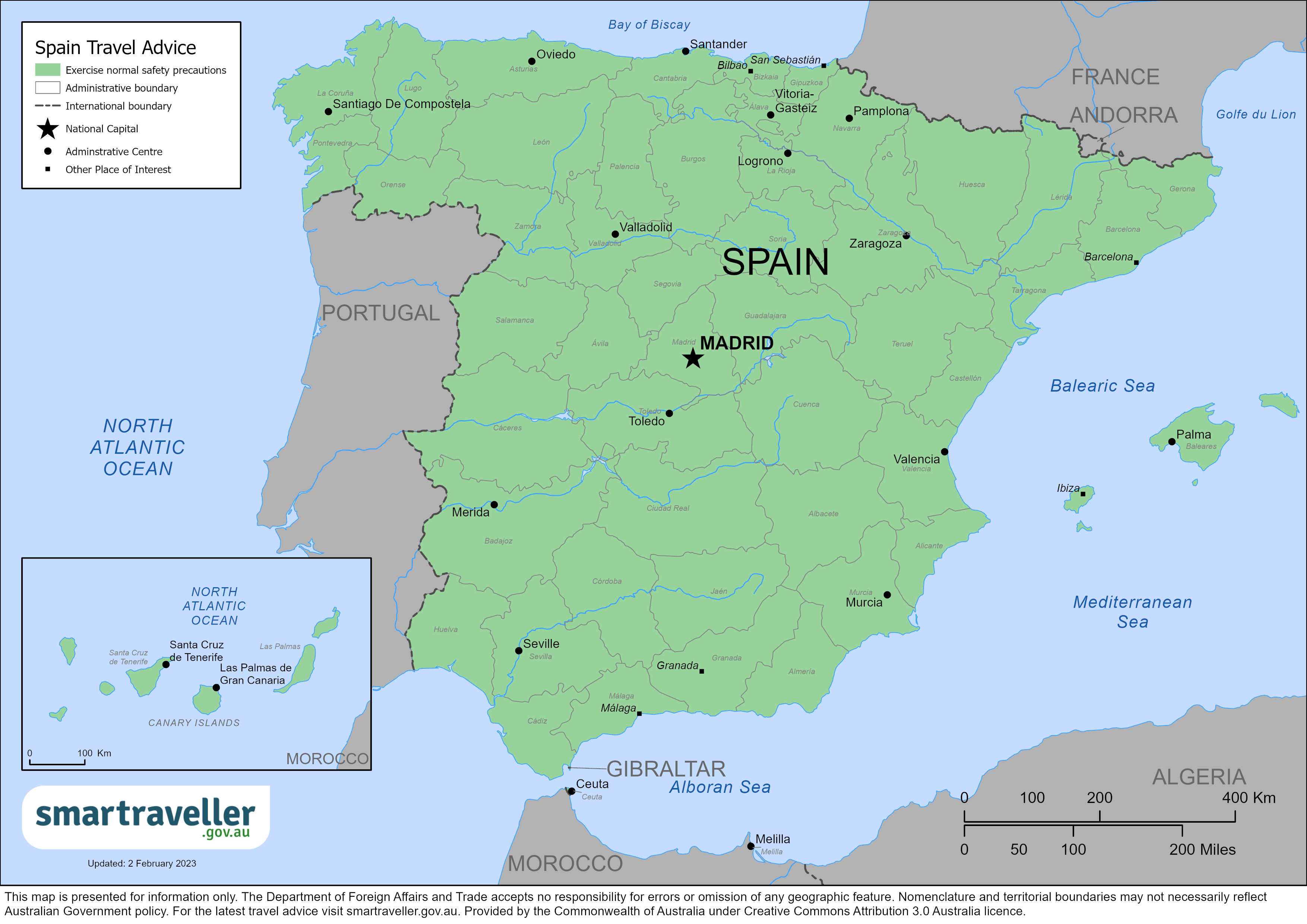
Spain (PDF 351.93 KB)
Europe (PDF 2.62 MB)
Local emergency contacts
Fire and rescue services, medical emergencies, advice levels.
Exercise normal safety precautions in Spain.
- Terror attacks have occurred. Authorities have stopped some attacks. The national terrorism alert for Spain is 'high'. Always be aware of possible threats. Take official warnings seriously.
- Demonstrations and strikes can occur and disrupt transport. Sometimes, protesters clash with police. Avoid unrest.
- Watch out for bag snatching, pickpocketing and theft from cars in large cities. Petty crime is a serious problem in Barcelona. Take care at tourist spots, beaches and on transport.
- Taking part in the Running of the Bulls in Pamplona is dangerous. Check your travel insurance covers you.
- Spain experiences earthquakes, volcanic eruptions, severe storms and forest fires. Monitor local media for updates.
Full travel advice: Safety
Health risks are similar to those in Australia.
- The standard of medical facilities is high.
Full travel advice: Health
- Always carry personal ID. You should carry a copy of your Australian Passport for ID, either as a hardcopy or as a photo on your phone. Police can detain you until they can confirm your identity.
- Don't photograph military sites.
- Spain doesn't recognise dual nationality. Always travel on your Australian passport.
Full travel advice: Local laws
- Spain is a part of the Schengen area , along with many other European countries. This allows you to enter without a visa in some cases.
- You'll need a visa if you're travelling for a purpose other than tourism. If you plan to stay longer than 90 days, please contact the Spanish Embassy or Consulates in Australia before travelling to Spain.
Full travel advice: Travel
Local contacts
- The Consular Services Charter details what we can and can't do to help you overseas.
- For consular help, contact the Australian Embassy in Madrid or the consulate in Barcelona .
- Stay up to date with local information and follow the Embassy's social media accounts.
Full travel advice: Local contacts
Full advice
Terrorist attacks in Spain are likely, and attacks can occur at any time
The national terrorism alert level for Spain is 'high'.
In recent years, terrorists have staged attacks in Spain and other European cities. Targets have included:
- public transport
- transport hubs
- places of worship
- sporting venues
- public places popular with tourists
Spain has increased security in public places, such as:
- shopping areas
- tourist sites
- major events that attract large crowds
Security services have stopped some planned attacks.
To reduce your risk, you should:
- be aware of possible threats when planning activities
- be alert in public places known to be possible terrorist targets
- monitor the media for updates
- report anything suspicious to the police
- follow official warnings
- follow the advice of local authorities
If there's an attack, leave the area as soon as it's safe. Avoid the affected area in case of secondary attacks.
Terrorism is a threat worldwide.
More information:
Civil unrest and political tension
Demonstrations occur regularly throughout Spain.
Demonstrations and strikes can disrupt traffic and transport, including air, rail and other public services.
Some demonstrations held close to tourist areas in large cities have ended in clashes with police and resulted in injuries.
Public protests and events that draw large groups of people can turn violent.
To reduce risks:
- avoid protests and demonstrations, and exercise caution if you're caught up in large gatherings/protests
- monitor local media for possible strikes and unrest
- avoid affected areas
In the event of a protest or demonstration, contact your travel agent or tour operator for information on your transport bookings. Be ready to change your plans.
- Demonstrations and civil unrest
Petty crime
Petty crime is common in large cities. It's a serious problem in Barcelona, especially on public transport and tourist areas.
Petty crime includes:
- bag snatching
- pickpocketing
- theft from cars
Thieves are very active during the peak summer tourist season. They target:
- tourist attractions
- public transport, railway stations and cruise terminals
- airports, including airside, after passing through airport security
- restaurants and cafes
- hotel foyers
- car parking areas or car hire companies
Take care when placing bags on chairs or the ground in restaurants and outdoor cafes.
Thieves often work in gangs. While you're distracted, another thief steals your belongings. Thieves try to distract you by:
- asking for help or directions
- deliberately spilling something on you
Violent theft is less common but may also occur.
To protect yourself from petty crime:
- take care of your personal belongings, especially in crowds
- leave your passport and other valuables in a safe location
- avoid walking in quiet, poorly lit streets
- monitor local sources for information about possible safety or security risks
Keep your passport and other ID separate. We recommend you carry a copy of your passport for ID, either as a hard copy or as a photo on your phone.
Road crime occurs throughout Spain.
Take care driving from Marseille in France to Valencia in Spain along the Mediterranean coast. Cars with foreign number plates are often targets.
Thieves working in pairs may convince you to stop because of a 'problem' with your vehicle, then offer to help with a flat or slashed tyre. While one helps, the other steals your belongings.
Never leave your luggage unattended, even inside your vehicle. Keep luggage and personal belongings out of sight.
To stay safe when on the road:
- never leave valuables in your vehicle
- be wary of offers of help
- always keep car doors locked, even when driving
- use secure parking facilities when you can, especially overnight
- don't leave your vehicle unattended for long periods
Thieves also break into caravans and motor homes, particularly in public parking areas.
Credit card fraud
Credit card and ATM fraud can occur.
Avoid using ATMs that open onto the street, especially at night. Use ATMs in banks, shops, and shopping centres.
Drink spiking
Cases of drink spiking, followed by theft and sexual assault , are reported.
To protect yourself from crime:
- stick with people you trust in bars and nightclubs
- never accept food or drinks from strangers
- don't leave your food or drink unattended
- Partying safely
Gender violence
Spanish authorities have various emergency numbers for victims of gender violence.
- Call 112 for 24-hour assistance from any of the emergency services in Spain. English-speaking staff are available.
- Call 016 (Whatsapp 600 000 016 or email [email protected] ). This is a 24 hours a day, 365 days a year helpline for victims of gender violence. It is accessible for people with hearing difficulties and is available in 53 languages.
More Information:
- Sexual assault
Scams are common.
Be aware of the latest scams. Don't become a victim.
Some complex scam operations are based in Spain. Inheritance scams are the most common.
Inheritance scams involve receiving an email from someone claiming to be a lawyer. They tell you an unknown Spanish relative has died and left you money.
If you've been a victim of a scam, don't travel to Spain. Seek legal advice.
Cyber security
You may be at risk of cyber-based threats during overseas travel to any country. Digital identity theft is a growing concern. Your devices and personal data can be compromised, especially if you're connecting to Wi-Fi, using or connecting to shared or public computers, or to Bluetooth.
Social media can also be risky in destinations where there are social or political tensions or laws that may seem unreasonable by Australian standards. Travellers have been arrested for things they have said on social media. Don't comment on local or political events on your social media.
More information:
- Cyber security when travelling overseas
Climate and natural disasters
Spain experiences natural disasters and severe weather .
If there's a natural disaster, follow the advice of local authorities.
Earthquakes
Spain experiences earthquakes , but major quakes are rare.
Volcanic eruptions occurred in 2021 on La Palma in the Canary Islands. There's seismic activity on the Canary Island of El Hierro. The risk level set by local authorities is Green, which is level 1 of 3.
- Canary Islands Government
Severe weather
Sometimes, Spain experiences extreme storms, especially along the northern coast and islands.
Heavy snow in winter (December to February) can affect northern areas.
Forest fires
Forest fires can occur from May to September. The risk is higher in rural areas.
Strict fines apply for any actions that could start a fire. If camping, ask local authorities for advice on fire danger and fire restrictions.
If there's a forest fire:
- follow the advice of local authorities, including evacuation orders
- keep in contact with family and friends
Adventure travel
Running of the bulls.
Taking part in the Running of the Bulls is dangerous. Every year, people are badly injured and sometimes killed.
People are also killed or badly injured jumping from fountains during the festivities in Pamplona.
Ensure you have travel insurance and that your policy covers you for planned activities. Don't take unnecessary risks.
Your travel insurance may not cover you if:
- you take part in the Running of the Bulls
- jump from fountains
- take other risks
Medicare doesn't cover you if you're in Spain.
Swimming safety
Every year, several people drown in the sea and in swimming pools in Spain.
Some beaches, especially around Spanish islands, may have strong undercurrents.
Swim at supervised beaches and follow the flag system that warns against dangerous swimming conditions.
If you plan to spend time in or on the water:
- regularly check weather reports
- take warnings seriously
- check media and local sources for information about potential dangers
- speak to your travel provider about safety equipment and weather conditions before continuing with planned activities
- if possible, take a friend or family member with you when you undertake swimming or water activities
- ensure you have travel insurance and that your policy covers you for planned activities
Travel insurance
Get comprehensive travel insurance before you leave.
Your policy needs to cover all overseas medical costs, including medical evacuation. The Australian Government won't pay for these costs.
If you can't afford travel insurance, you can't afford to travel. This applies to everyone, no matter how healthy and fit you are.
If you're not insured, you may have to pay thousands of dollars up-front for medical care.
- what activities and care your policy covers
- that your insurance covers you for the whole time you'll be away
Physical and mental health
Consider your physical and mental health before you travel, especially if you have an existing medical condition.
See your doctor or travel clinic to:
- have a basic health check-up
- ask if your travel plans may affect your health
- plan any vaccinations you need.
Do this at least 8 weeks before you leave.
If you have immediate concerns for your welfare or the welfare of another Australian, call the 24-hour Consular Emergency Centre on +61 2 6261 3305 or contact your nearest Australian Embassy, High Commission or Consulate to discuss counselling hotlines and services available in your location
- General health advice
- Healthy holiday tips (Healthdirect Australia)
Not all medications available over the counter or by prescription in Australia are available in other countries. Some may even be considered illegal or a controlled substance, even if prescribed by an Australian doctor.
If you plan to bring medication, check if it's legal in Spain. Contact the Spanish Embassy or Consulate in Australia before travelling to Spain. Take enough legal medicine for your trip.
You can't mail or courier medication from Australia to Spain.
Carry a copy of your prescription or a letter from your doctor stating:
- what the medication is
- your required dosage
- that it's for personal use
Contact DFAT if you need medical documents authenticated .
Health risks
Monitor the media and other sources for new health risks.
Follow the advice of Spain's Ministry of Health
Medical care
The standard of medical facilities in Spain is similar to those in Australia.
Most doctors don't speak English. A list of English-speaking doctors and medical facilities can be found on the Australian Embassy website.
There's no shared healthcare agreement between Australia and Spain.
Medical evacuation can be very expensive.
You're subject to all local laws and penalties, including those that may appear harsh by Australian standards. Research local laws before travelling.
If you're arrested or jailed, the Australian Government will do what it can to help you under our Consular Services Charter . But we can't get you out of trouble or out of jail.
- Arrested or jailed
Penalties for drug offences include heavy fines and prison time.
- Carrying or using drugs
Always carry personal ID. This may include:
- your original driver's licence
- a copy of your passport, either in hardcopy or as a photo on your phone
Police may ask to see ID. They can detain you until they can confirm your identity. Carry a copy of your Australian passport as a hard copy or a photo on your phone.
Don't photograph military installations.
Australian laws
Some Australian criminal laws still apply when you're overseas. If you break these laws, you may face prosecution in Australia.
- Staying within the law and respecting customs
Dual citizenship
Spain doesn't recognise dual nationality.
If you're a dual citizen, this limits the consular services we can give if you're arrested or detained.
Always travel on your Australian passport .
- Dual nationals
Visas and border measures
Every country or territory decides who can enter or leave through its borders. For specific information about the evidence you'll need to enter a foreign destination, check with the nearest embassy, consulate or immigration department of the destination you're entering.
Entry and exit conditions can change at short notice. Contact your airline or your nearest Embassy or Consulate of Spain for details about the latest visa and entry requirements.
Spain is a part of the Schengen Area , along with many other European countries. This allows you to enter without a visa in some cases.
You'll need a visa if:
- you're travelling for a purpose other than tourism
- you plan to stay longer than 90 days
Ensure you get a legible entry stamp in your passport when you first enter the Schengen Area.
Some airlines may want to see proof of entry in the Schengen Area or to check you haven't overstayed the 90-day period.
Carry copies of your passport in hard copy or as a photo on your phone in case authorities stop you. See Local laws
Some countries won't let you enter unless your passport is valid for 6 months after you plan to leave that country. This can apply even if you're just transiting or stopping over.
Some foreign governments and airlines apply the rule inconsistently. Travellers can receive conflicting advice from different sources.
You can end up stranded if your passport is not valid for more than 6 months.
The Australian Government does not set these rules. Check your passport's expiry date before you travel. If you're not sure it'll be valid for long enough, consider getting a new passport .
Lost or stolen passport
Your passport is a valuable document. It's attractive to people who may try to use your identity to commit crimes.
Some people may try to trick you into giving them your passport. Always keep it in a safe place.
If your passport is lost or stolen, tell the Australian Government as soon as possible:
- In Australia, contact the Australian Passport Information Service .
- If you're overseas, contact the nearest Australian Embassy or Consulate .
Passport with 'X' gender identifier
Although Australian passports comply with international standards for sex and gender, we can't guarantee that a passport showing an 'X' in the sex field will be accepted for entry or transit by another country. Contact the nearest embassy, high commission or consulate of your destination before you arrive at the border to confirm if authorities will accept passports with 'X' gender markers.
- LGBTI travellers
The currency of Spain is the Euro (€).
If you're travelling to or from any non-European Union (EU) country, declare funds of 10,000 Euro or more, including the equivalent in another currency. This covers all forms of currency, not only cash.
If you fail to declare currency or give wrong information, you'll be fined. You don't need to declare funds if you're travelling to or from another EU country.
Local travel
C arry your passport when crossing borders, even within the Schengen Area.
To avoid delays:
- monitor the local media for border conditions
- ask your transport provider for updates
Tourist information
Some areas of Spain are popular party destinations. See Safety
If you're travelling to Morocco, read our travel advice for Morocco .
Driving permit
To drive a vehicle, you'll need both:
- a current Australian driver's licence
- a valid international driving permit (IDP). Contact the Australia Automobile Association on www.aaa.asn.au for further information.
If you drive without an IDP, you may be fined and your car impounded.
Road travel
Be cautious when you drive or travel as a passenger. Keep your doors locked, even when moving. Lock your vehicle when you leave it.
Driving in urban areas can be dangerous due to:
- traffic congestion
- aggressive driving
- excessive speeding
Check your vehicle has 2 red warning triangles and a reflective jacket. You must use these in an accident or breakdown.
You can be fined if your vehicle doesn't have these items.
If you hire a vehicle, get safety equipment. Ask the rental company about local traffic rules.
When pollution levels are high in Madrid, temporary car-use restrictions may apply.
To contact the English-speaking 'Línea Madrid' citizen information and support line:
- call 010 from Madrid
- call (+34) 915 298 210 from outside Madrid
In addition to the general traffic regulations, there are specific regulations regarding the use of electric scooters.
- Driving or riding
DFAT doesn't provide information on the safety of individual commercial airlines or flight paths.
Check Spain's air safety profile with the Aviation Safety Network.
- Air travel
Emergencies
Depending on what you need, contact your:
- family and friends
- travel agent
- insurance provider
Emergency phone numbers
For non-emergency criminal issues, contact the local police.
Always get a police report when you report a crime.
Your insurer should have a 24-hour emergency number.
Consular contacts
Read the Consular Services Charter for what the Australian Government can and can't do to help you overseas.
The Australian Government has two offices in Spain:
- an Embassy in Madrid
- a Consulate in Barcelona
The Embassy provides the full consular services as described in the Consular Services Charter .
The Consulate provides limited consular assistance to Australians in Barcelona.
Australian Embassy, Madrid
Level 24, Torre Emperador Castellana Building Paseo de la Castellana, 259D 28046 Madrid, Spain Phone: (+34) 91 353 6600 Email: [email protected] Website: spain.embassy.gov.au Facebook: Embajada de Australia en España, Andorra y Guinea Ecuatorial X: @AusEmbEsp
Australian Consulate, Barcelona
Avenida Diagonal, 482, Fifth Floor 08006 Barcelona, Spain Phone/Fax: (+34) 93 715 5866 Email: [email protected]
Check the Embassy website for details about opening hours and any temporary changes.
24-hour Consular Emergency Centre
In a consular emergency, if you can't contact an embassy, call the 24-hour Consular Emergency Centre on:
- +61 2 6261 3305 from overseas
- 1300 555 135 in Australia

Travelling to Spain?
Sign up to get the latest travel advice updates..
Be the first to know official government advice when travelling.
- Meet the Team
- Work with Us
- Czech Republic
- Netherlands
- Switzerland
- Scandinavia
- Philippines
- South Korea
- New Zealand
- South Africa
- Budget Travel
- Work & Travel
- The Broke Backpacker Manifesto
- Travel Resources
- How to Travel on $10/day
Home » Europe » Barcelona
Is Barcelona Safe for Travel? (Insider Tips)
Barcelona is Dali country – a city where gothic meets abstract and modern architecture, where everybody stays up late to eat and drink, and where there is plenty to do and see. Here you’ll find beaches, cultural attractions, history, and more than enough to keep you busy for a lifetime. It’s one hell of a place.
But there ARE a few problems with Barcelona. It’s the flashpoint for protests and demonstrations to do with the Catalan independence movement , which is still a big issue. For that matter, there’s a BIG problem with petty theft.
So, of course, we totally understand if you’re wondering, “well, is Barcelona safe?” It’s a fair question in all honesty.
This is exactly why we have decided to create this huge insider’s guide to staying safe in Barcelona.
There is a whole lot of ground that we are going to be covering in this epic guide. That means everything from food safety to how safe it is to drive in Barcelona, all the way to how safe it is to visit RIGHT NOW.
We understand if you might be concerned. Maybe you’re worried as a solo female traveller heading to Barcelona, or maybe you’re just wondering if you should be taking your family to the Catalan capital right now. Whatever it is, don’t worry – we are here to help you out.

Unlock Our GREATEST Travel Secrets!
Sign up for our newsletter and get the best travel tips delivered right to your inbox.
How Safe is Barcelona? (Our take)
Is barcelona safe to visit (the facts.), is it safe to visit barcelona right now, barcelona travel insurance, 14 top safety tips for traveling to barcelona, keeping your money safe in barcelona, is barcelona safe to travel alone, is barcelona safe for solo female travelers, is barcelona safe to travel for families, is it safe to drive in barcelona, is uber safe in barcelona, are taxis safe in barcelona, is public transportation in barcelona safe, is the food in barcelona safe, can you drink the water in barcelona, is barcelona safe to live, how is healthcare in barcelona, helpful spanish travel phrases, faq about staying safe in barcelona, final thoughts on the safety of barcelona.
Art, architecture, history, and culture; four reasons to visit Barcelona. Add nine beaches into the mix, as well as a load of OTHER things to see and do, and Barcelona is a pretty cool city to visit. For sure.
But petty crime is a MAJOR problem in Barcelona . A HUGE influx of tourism has brought a LOAD of thieves looking to score and the latter has become pretty good at their job. With distraction techniques, deft pickpocketing, and so many crowds , it can be relatively easy to have your money stolen in Barcelona.
The Catalan independence movement has also brought a dash of discontent to the city as well. While it’s currently no Basque Independence Movement (and we hope it never becomes like this) you never know when it comes to Spanish politics.
At the end of the day, Spain is one of Europe’s safest countries and Barcelona is still one of the most desirable cities on this continent. Every day, Barcelona receives an unfathomable amount of tourists and sometimes there’s no stopping them.
There are so many tourists that the locals have even coined a name for it: parquetematización the act of the city turning into a theme park). Residents of Barcelona are worried the city will lose its identity amidst throngs of tourists.
There is no such thing as a perfect safety guide, and this article is no different. The question of “Is Barcelona Safe?” will ALWAYS have a different answer depending on the parties involved. But this article is written for savvy travellers from the perspective of savvy travellers.
The information present in this safety guide was accurate at the time of writing, however, the world is a changeable place, now more than ever. Between the pandemic, ever-worsening cultural division, and a click-hungry media, it can be hard to maintain what is truth and what is sensationalism.
Here, you will find safety knowledge and advice for travelling Barcelona. It won’t be down to the wire cutting edge info on the most current events, but it is layered in the expertise of veteran travellers. If you use our guide, do your own research, and practise common sense, you will have a safe trip to Barcelona.
If you see any outdated information in this guide, we would really appreciate it if you could reach out in the comments below. We strive to provide the most relevant travel information on the web and always appreciate input from our readers (nicely, please!). Otherwise, thanks for your ear and stay safe!
It’s a wild world out there. But it’s pretty damn special too. 🙂
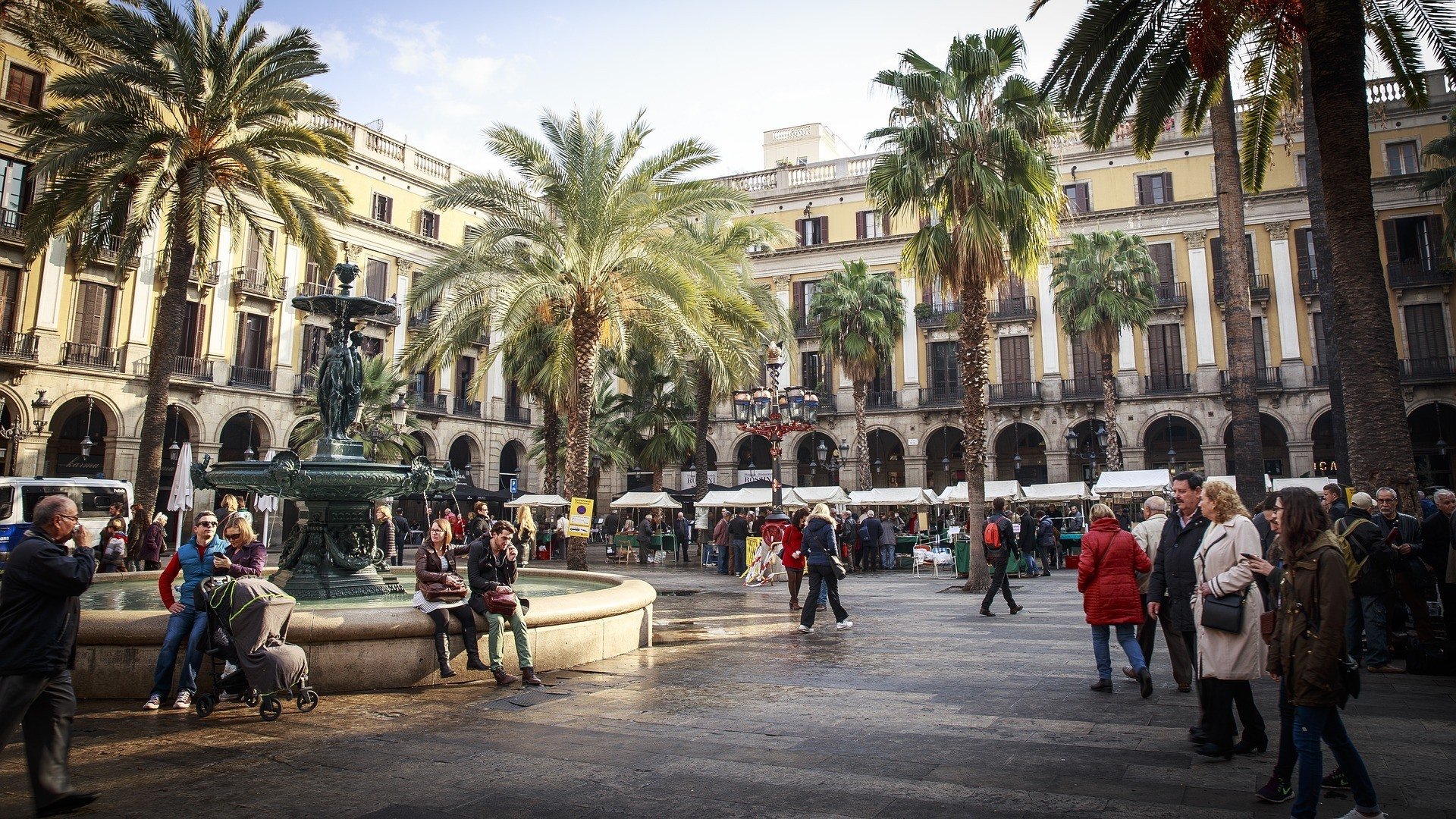
Tourism has grown RAPIDLY in Barcelona. We’re talking 25% in 4 years.
In 2012, there were 27 million visitors to Barcelona. In 2016: 34 million . It’s easy to see how the city has been affected by tourism.
Tourists have been putting so much strain on local living that the government has been trying to curb it and dilute the crowds into lesser known neighbourhoods . It’s a REAL problem that’s resulted in exhausted residents.
You might usually think that lots of tourists mean safer but that’s not the case. With increased crowds have brought increased crime.
Last year (2018) it was stated that over 25% of Barcelona residents had been a victim of crime – that’s a 19% increase on 2017’s stats. And, you guessed it, petty theft makes up the majority of that. On public transport, in shops, restaurants…
Barcelona may be going through some growing pains at the moment, between the Catalan Independence Movement and the oversaturation of tourists, but that doesn’t mean Barcelona is unsafe to visit. Barcelona is still a very modern and welcoming place that, at the end of the day, would probably prefer an open-door policy.
When it comes to interacting with the locals, honestly, the worst that you should expect is a rude Barcelonan who’s simply sick and tired of tourists. Instances of tourists being attacked in Barcelona is extremely rare and often it’s the tourist making the provocation in the first place.
Just remember to be respectful of the locals and to treat Barcelona like you would treat your own home city. Don’t think that you’re exempt from responsibilities because you’re on vacation and don’t think that your actions have no repercussions.
ALWAYS sort out your backpacker insurance before your trip. There’s plenty to choose from in that department, but a good place to start is Safety Wing .
They offer month-to-month payments, no lock-in contracts, and require absolutely no itineraries: that’s the exact kind of insurance long-term travellers and digital nomads need.

SafetyWing is cheap, easy, and admin-free: just sign up lickety-split so you can get back to it!
Click the button below to learn more about SafetyWing’s setup or read our insider review for the full tasty scoop.
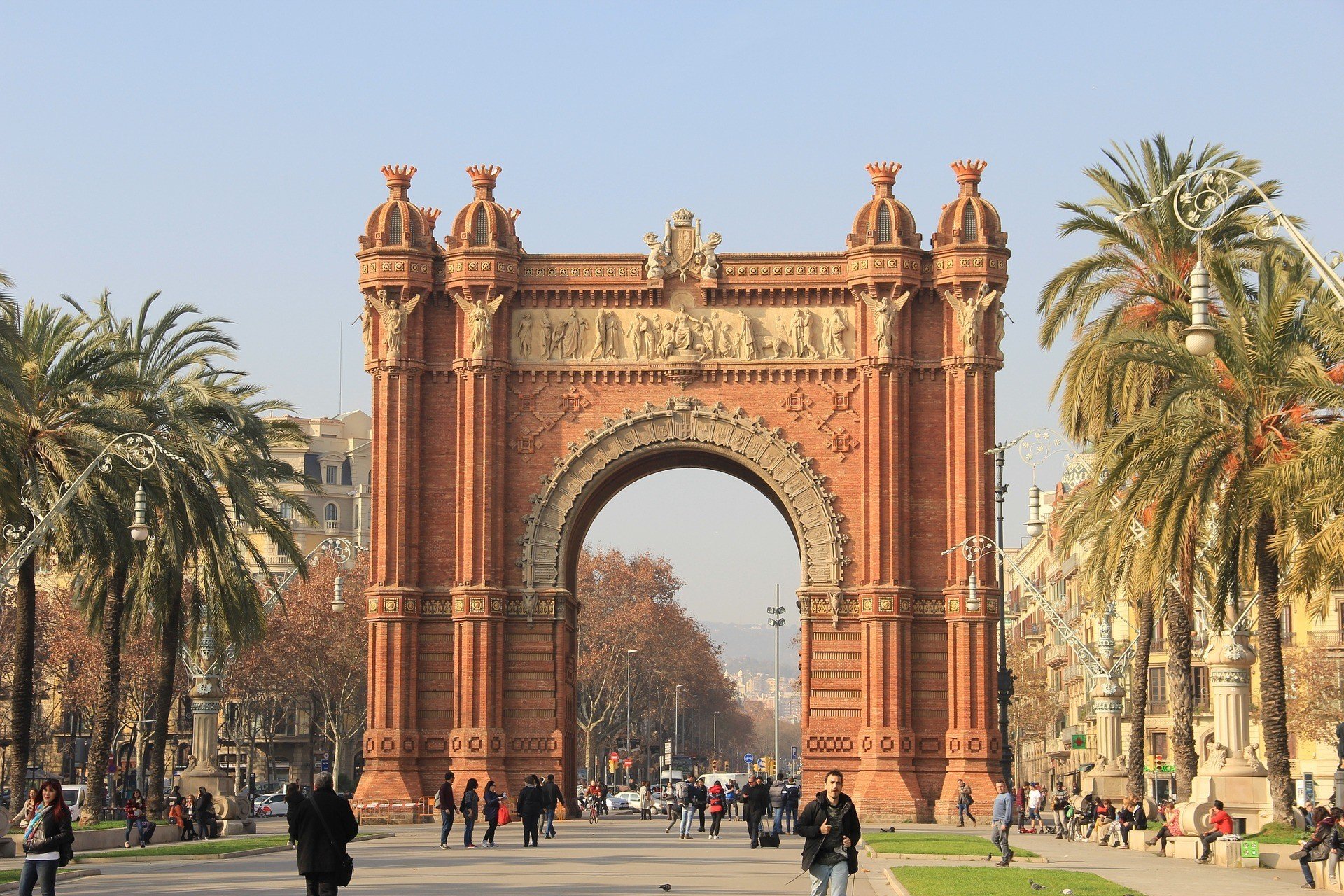
Despite the crowds, tourists, pickpockets, demonstrations – whatever – Barcelona is safe. Honestly! So many tourists visit this city each year and though they’re part of the problem, that shouldn’t stop you from going.
All you’ll to do is treat Barcelona like any other city. To help keep you in the loop, here are some of our top tips for staying safe in Barcelona:
- Steer clear of any political demonstration/protest – these have been known to turn ugly.
- Watch out for distraction techniques – people falling over in front of you, someone dropping something, overly friendly strangers, even people asking you to sign a petition; these are often precursors to a theft.
- Keep your belongings CLOSE to you – hanging bags on the back of chairs at a restaurant = NO. Don’t even leave them under your chair. Just keep them on your lap.
- Same goes for your phone – leaving it on a table is easy pickings for a snatch-and-grab job.
- Stop putting items in your back pockets – front pockets are much harder for thieves to get into. If you want ultimate protection, get a discrete money belt.
- Leaving your stuff unattended on the beach – this is one of the best ways to lose your stuff.
- Whilst you’re at it, careful when you’re swimming – there can be strong undercurrents. Check for a red flag, which means “DON’T ENTER THE WATER”
- When you’re out drinking, know your limits – it’s possible to get carried away by Barcelona’s raucous nightlife. Have fun but keep your judgment and awareness.
- Buy your own drinks and don’t leave them unattended – drink spiking happens here.
- Don’t walk around looking rich and flashy – just an advert for would-be thieves.
- Weed is decriminalised, but getting caught with drugs isn’t fun – the cops will take your stash and hit you with a fine most likely.
- Barcelona is a late night city – you’ll be mainly safe in the main areas, but you should still avoid deserted streets.
- If the police ask to see your ID… – make sure that they’re legit and then comply 100%.
- Don’t talk about Catalan independence – in fact, probably avoid politics altogether. You’re a guest in the city and you probably shouldn’t be throwing your opinions around unless getting lynched is on your Barcelona itinerary?
Whilst generally Barcelona is safe, there are definitely some things to avoid doing, specifically not taking care of your belongings. If you don’t? There’s a high chance they’ll get stolen from you.
The best thing to do here is to pay attention to your surroundings. Travel smart and don’t fall for distraction techniques. It’s all about using your common sense, we’re not going to lie.
Getting your money stolen anywhere is something that’s extremely annoying. Right? More than annoying, it’s something that can totally put a spanner in the works of your trip.
And in Barcelona – because of all the petty theft – there’s certainly a chance that you could be a victim of a simple robbery.
The best form of protection, in any situation, is prevention. When it comes to protecting your money, that means investing in a money belt.

The Pacsafe Money Belt is our best bet. It’s affordable, it looks and acts like a belt, and it’s sturdy – what more could you ask for out of a money belt!
This is a TOP choice for many reasons: it’s rugged, affordable (you’re on a budget, right?) and looks like an actual belt. Nothing odd or fancy about this one.
Wearing a money belt really is a simple way to STOP potential pickpockets in their tracks. We mean, how are your pockets going to get picked if there’s nothing in your pockets to pick in the first place? (Exactly.) All you have to do is keep a stash of cash in your money belt and that’s it.
When it comes to somewhere KNOWN for petty theft , wearing a money belt definitely, definitely pays off. No-brainer.
If you need a little more room for your passport and other travel valuables, have a look at a full-size money belt that tucks under your clothes instead.

We’re totally into solo travel as it’s an AMAZING way to see the world. There are few better ways to challenge yourself than by seeing the world on your own terms.
But if you are travelling by yourself you MAY be seen as more of a target by petty criminals. In a city like Barcelona, you’re definitely going to have to watch out for pickpockets as it really is an issue.
However, on the whole, Barcelona is safe to travel alone. Aside from the occasional thief , Barcelona is really fun, friendly and easy to visit, regardless if you’re alone or with a group.
To help improve your lone wold experience, here are a couple of things to keep in mind:
- Stay in well-reviewed accommodation in Barcelona with a good social scene. This is a good way to make some travel buddies to beat the solo travel blues. Be sure to check if the hostel’s scene is actually your flavor. No good staying somewhere that’s all about the partying if you’re about getting wasted.
- There are loads of free tours on offer around Barcelona. Bike tours, walking tours, drinking tours, eating tours; whatever you’re interested in, there’s probably going to be a tour to match it. Not only are they a good way to visit Barcelona on a budget, but tours are a good way to meet other travellers. Have a chat, make friends, make plans for tapas that night.
- Check your map before you head out. We’re not saying that you need to memorise your route 100% but know generally where you’re going and you’ll look less like a tourist. Plus you won’t have to keep getting your phone out, which just puts it at risk of getting snatched.
- Stash your cash in different places so if you DO get pickpocketed, you won’t lose everything in one go. Or better yet: wear a money belt. Like we said.
- Meet up with locals. Try Couchsurfing or research other online groups if you’re interested in getting to know a more local, more authentic side of life in Barcelona.
- And if you are interested in getting know what local life is really like, head to a chiringuito, which is a beach bar and where locals hang out. Not everyone is out in the city centre eating tapas every night.
- If you’re walking alone in the early hours around Las Ramblas, you MAY be offered drugs and/or a few hours with a lady of the evening. Just be aware that this sort of thing is likely to happen when you’re by yourself.
- Learning some Spanish is a good way to get to learn about the local area and people. And a bit Catalan wouldn’t hurt, either.
So whilst there’s this problem of petty theft in Barcelona, there’s also the problem that pretty much EVERY solo traveller faces: getting lonely. Or bored. Or both. And the best way to combat this is to meet new people.
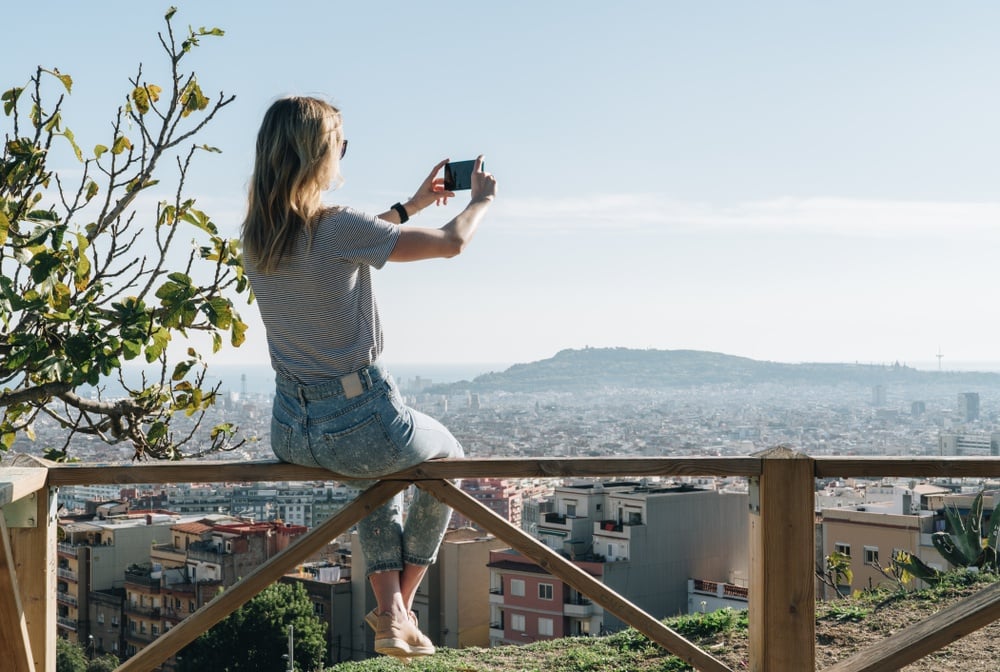
Barcelona is very safe for solo female travellers and plenty of lone women do head to this city. You’re going to meet a lot of really cool women doing the same thing as you and hearing their stories is half the fun.
Obviously, there’s more risk of travelling as a single woman; it’s a sad circumstance but true nonetheless. You’ll be seen as an easier target for theft and for overly aggressive males.
BUT the hassle is actually not too bad in Barcelona. All you’ll need to do here is stay vigilant and use your common sense.
With that in mind, here are some of our top tips for solo female travellers in Barcelona, so you can have an AWESOME time with less of the stress…
- We’ve already mentioned that Barcelona has some amazing hostels and that staying in a good one is a good way to ensure your well-being. Many hostels even offer a female-only dorm if that’s what you’d like. Staying in one of these rooms limits the chances of you being stuck with weirdos, plus you get to meet other women travelling by themselves, too.
- The bonus of staying at a good hostel is that they often have things like walking tours (great for getting to know the city AND mingling with fellow backpackers) and even bar crawls. This means getting to have fun without having to wander out every night. The more social a hostel, the more likely you’re going to have some people to explore the city with.
- It’s GENERALLY safe to walk around late at night. But it’s always best to avoid areas that lack crowds of people e.g. deserted streets, quiet alleys. Do as you’d do at home and avoid them if you’re walking around by yourself.
- We’d recommend that you take a taxi instead of walking home by yourself at night. It’s just more than likely going to be the safer option.
- Don’t be afraid to go eat at a tapas bar by yourself. You won’t need to queue if you’re just one person. You just go sit at the bar. Easy a nd delicious!
- Keep emergency contacts high on your phone. This way, you won’t have to scroll through everyone in case of an EMERGENCY. Or assign numbers to speed-dial. Saving time is pretty much always going to be the best bet in the interest of your safety.
- When you’re on the metro or on the beach, don’t let people invade your personal space. Anybody trying to get too close to you is probably trying to PICKPOCKET you. Even if you’ve got a money belt, being targeted like that isn’t nice. Move away immediately if someone seems dodgy.
- The metro is generally safe but late at night, remote metro stations and empty carriages aren’t what we’d call safe places. Definitely try your best to avoid these sorts of areas and stick to the city centre instead.
- Catcalling CAN happen and it’s up to you how you deal with it. You can react or ignore them. But honestly? We would say just walk on by and get on with your day. Not worth the hassle.
Like many Western European cities, Barcelona is safe for solo female travellers . That being said, bad stuff can happen anywhere in the world and women, unfortunately, are often more targeted than men. So do as you do at home: take care, be vigilant, stay away from people who seem WEIRD.
There’s nothing that, as a woman, is stopping you from seeing Barcelona alone. Plenty of people travel to this cool city and have an AMAZING time. So you should, too! It’s all about using your common sense. Do this and you’re bound to have a good experience.
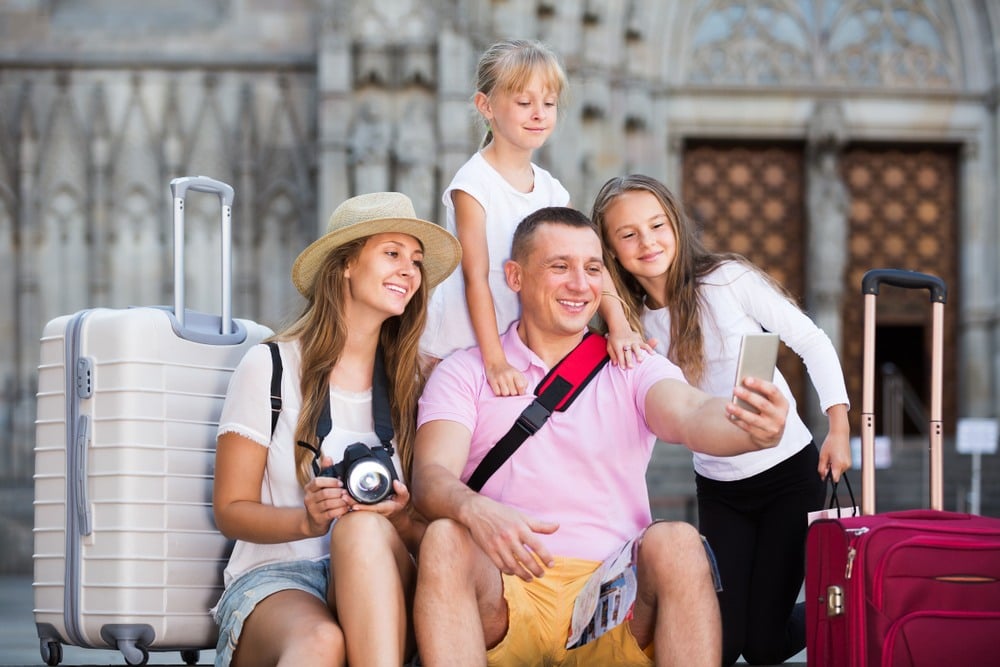
Barcelona is pretty much a wonderland for families.
There are ALL SORTS of things to explore if you’re visiting Barcelona with children in tow. From museums to theme parks, educational to fun, there’s a TON of stuff to do in the Catalan capital.
For a start there’s:
- El Born, a chilled neighbourhood that’s home to the Parc de la Ciutadella (picnic areas and the Barcelona Zoo ).
- There’s also a load of Roman history, Gothic buildings (in the Gothic Quarter ), old candy stores, magic shops, markets, and tasty Spanish food that your children should LOVE.
- And did you know that Barcelona is actually home to one of the oldest theme parks in Europe? It’s called Tibidabo and it dates back to 1899.
- That’s not to mention all the beaches. There are nine, NINE, to choose from plus a LOAD of day trips along the coast and out into nature that you can embark on.
Basically, Barcelona is a great place to take your children. Older kids are going to love the late night culture because they get to act like an adult. Younger kids will be welcomed by locals and get to play with other children in the NUMEROUS parks around town.
One thing you’ll have to do is make sure they’re covered up as the sun can get BRUTAL in Barcelona. Make sure you have suncream, and lots of it, plus sun-hats and sunglasses are basically a must.
The metro is good to take kids on, even with pushchairs and prams. The cobbled streets and sometimes crazy traffic of Ciuttat Vella can be a bit tricky to navigate.
But other than that, you’re going to be fine!
Just find some awesome accommodation for you and your family (trust us: there’s plenty of that). You all are going to have the time of your lives!
It is safe to drive in Barcelona BUT it’s a HASSLE and driving in Barcelona is expensive . Parking is also super pricey and there are also other hassles, such as…
- There are multi-lane roundabouts dotted around the city and these can be pretty stressful if you’re not used to them.
- Scams also exist. People will usher you into an empty parking space and then demand “protection money.” If you feel like you ARE being targeted for extortion, just leave and find somewhere else to park.
- Things you have to carry in the car: TWO red warning triangles, a reflective vest, a spare tyre, and necessary tools to change a tyre. You might get a hefty fine if you don’t.
- If you’re with children, they’re not allowed to sit in the front seat unless they’re above 12 years old. EVERYBODY has to wear seatbelts, of course.
- You also are NOT allowed to use your phone whilst driving. If you do it has to be completely hands-free.
Basically, driving not worth it. When you consider how good the public transit is as well, driving seems even more bothersome.
UNLESS you’re thinking of heading out on a day trip out of the city, driving around IN the city just isn’t a great option. It’s not really a good way to get around.
Stick to bicycles and public transport. Case closed.
Cycling in Barcelona
Barcelona might not be the first city that comes to your mind when you think of bicycles, but it definitely belongs on the cycle-friendly list. Since 2015, the city council has decided to go “greener”, and support this way of transportation to reduce CO2 emissions. A huge net of bike lanes has been built all over the city for the last couple of years, and it’s constantly expanding.
But is riding a bike safe? Since you can control the speed and which way you’re going a lot easier on a bicycle than a motorbike or car, this way of transport is definitely the safest. But only if you follow the rules and wear a helmet. Here are the most important ones:
- be aware of your surroundings at all time
- indicate if you want to take a turn and have lights attached to your bicycle
- don’t drive on the sidewalk – these are for people on foot
- keep a safe distance from driving cars – they might not see you coming!
Now, where do you get a bike from? Unless you’re staying long term, you can rent bikes pretty much everywhere around the city. Lots of rentals offer everything from a normal city bike to mountain bikes, and even e-bikes (you might need a license for those).
In case you want to plan your vacation ahead, you can check out this BCN map . They’ll show you every bike lane in and around the city, so you can easily get from A to B.
Uber came back to Barcelona last year (2018) after being banned for 3 and a half years.
The only thing to worry about with Uber is that it has a bit of an on-off relationship with the authorities in Barcelona. So check to make sure it’s in operation when you go. It may get kicked out again.
But, yep. Uber is safe in Barcelona.
All the things that make Uber so good everywhere else apply here. Paying in app, not needing to speak the local language, knowing what car you’ll be stepping into, being able to track your journey; all the perks that you’d expect.
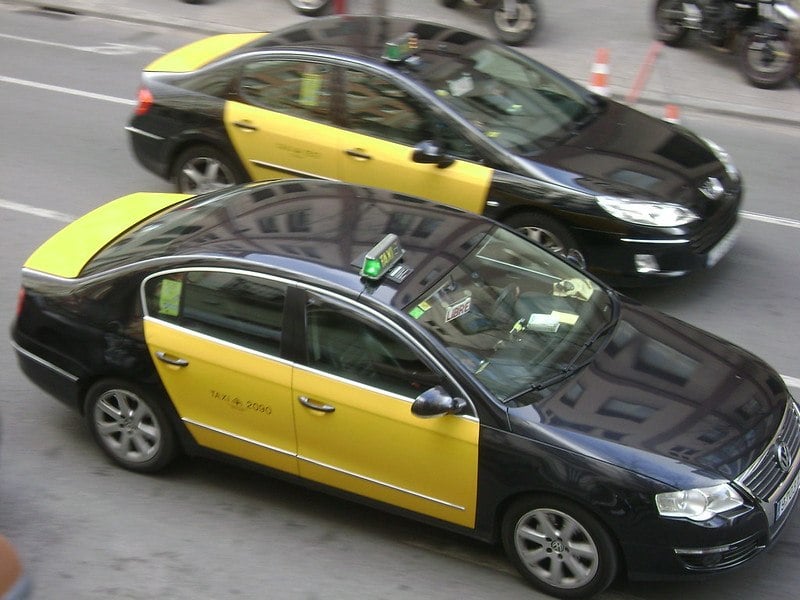
Taxis are safe in Barcelona and they’re pretty affordable, too (more so than Uber)!
They’re easy to spot; just look for the black with yellow stripes. You can find them at taxi ranks or you can just hail them in the street. Just look for the green light on top.
Just make sure you use an official taxi because getting in an unlicensed one is not only unsafe , it’s also COSTLY. You can be fined up to 600 Euros for using an unlicensed taxi service. That’s right – you. The passenger. The Barcelona government does NOT want people using unlicensed taxis (clearly).
But, yes, taxis are safe. You can even pay with a card.
Remember these points when using the Barcelona taxis:
- Double check to see that the meter ON and that the driver isn’t driving around aimlessly trying to rack that meter up. Use a maps app to see that they’re taking the quickest route. If you feel like they’ve cheated you, get the receipt for the journey and report it to the police.
- You may also find that you have to pay surcharges for things like luggage, or taking you to the airport. That’s normal.
- Taxi apps exist. There’s MyTaxi and HailoCab, both of which work pretty much like Uber .
- You might need some Spanish, or Catalan, to get you from A to B.
But our advice? Take the hassle out and get your accommodation to book you cabs when you need them. Easy.
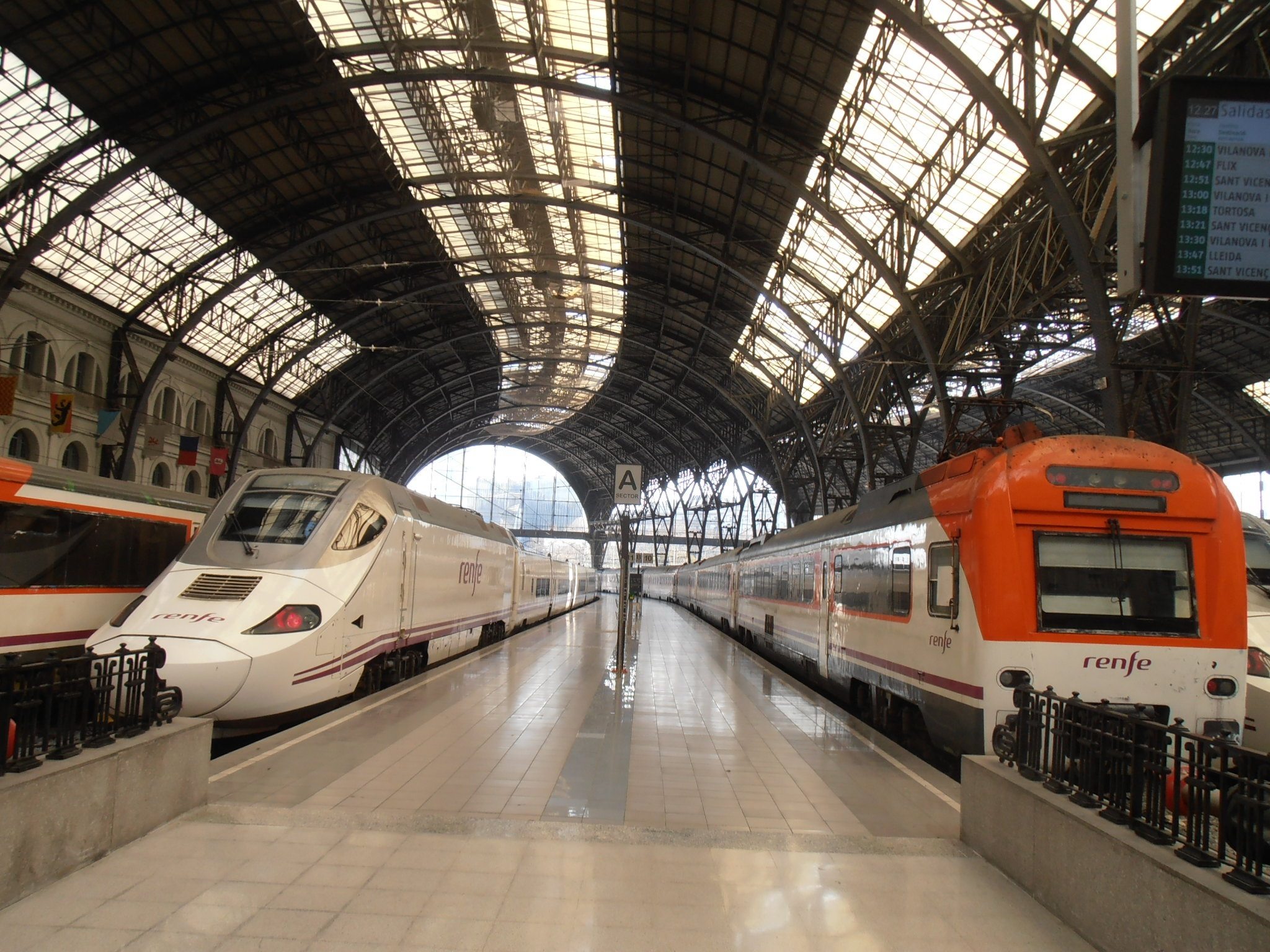
Barcelona is GREAT when it comes to public transport. There are buses, trams, metro, and even several cable cars. The bike lanes are actually pretty good as well. Best of all, it’s usually very safe.
- First things first, grab yourself a Day Pass. This is good for up to 5 days and allows you to travel easier on the buses, trams, and metro.
- The metro only runs until midnight, but you can just hop on the night bus after that.
- Though not TECHNICALLY public transport, getting around on a bicycle is a good option. It’s safe to ride a bike in Barcelona and it’s CHEAP.
- One of the most attractive things is a 72-kilometre cycling path around the perimeter of the city. As of now (February 2019), that path is not even completely finished yet; it’s THAT long.
- The buses trundle along city routes regularly. Most destinations around the city are connected by these.
- Different cable cars go to different high spots around Barcelona. One, for example, goes up to the top of Montjuic for pretty amazing views.
- Trams travel around the city, too. There aren’t MANY but some of them are super nice and offer up a quaint, scenic way to travel around the city.
- The metro is reliable and easy to use. It’s spread across 11 colour-coded lines. On a Saturday the metro runs 24 hours until Sunday morning.
- To be fair, the city is ACTUALLY quite walkable in many places…
What you’ll need to watch out for are PICKPOCKETS e specially on the metro and bus. And even MORE so at busy times, like rush hour.
It’s difficult to know if someone barging to get past you is someone pickpocketing you or just a regular person. You could have stuff stolen without even realising . You don’t NEED to be travelling during rush hour, so we’d just say avoid that particular headache anyway.
And travelling alone on empty carriages at night is not recommended , nor is being at abandoned metro stations outside the city centre.
BUT at the end of the day, public transport in Barcelona is safe and there are no HUGE problems.

There is some GREAT food to try in Barcelona. Pick up snacks from streetside vendors, get lost in the huge and historic Boqueria Market, pick up some bocadillos from a local bakery, or spend some time stopping by tapas places for a beer and a couple of tasty dishes.
To be honest, there’s not a lot to worry about as the food in Barcelona is very SAFE. After all, this is a developed city in a developed country. But if you REALLY don’t want to get sick during your trip to Barcelona (who would?), here are some tips to help you out…
- As a good rule of thumb, head to popular establishments. They’re probably so popular because they’re so GOOD. But also consider that nobody is really going to want to head back to a place that made them ill. Are they?
- Avoid tourist traps. This is Barcelona, which has a whole host of amazing restaurants to try out, but for every few good ones, there will be one not so good one. Avoid touts, who will undoubtedly be trying to get you in somewhere that’s just trying to make money.
- Seafood plays a BIG PART in the Barcelona food scene. If it smells a bit weird or tastes a little bit, either don’t eat it or stop eating it. Being ill as a result of eating bad seafood is not only really horrible – it can be dangerous too.
- If you’re out and about looking for food from a local vendor, make sure to avoid things that look as though they have been sitting around uncovered all day. This is a good way for food to get covered with germs and have flies doing the rounds all over it. If it doesn’t LOOK fresh, don’t go for it.
- Also, use your head. Does a restaurant look clean? If it doesn’t look like hygiene is a big priority, and you’re concerned about getting ill, then it might just be best to avoid.
- Do some research. There are plenty of amazing places to eat in Barcelona and if you only have a short time in the city you’ll want to make the most of it. So look online and seek out some places that really make you hungry. Maximise your time.
- Restaurants may not actually open until 8 or 9pm. So make sure you eat accordingly. No use wasting your appetite on snacks from a supermarket at 6 pm just because you couldn’t make it all the way. Fill up on a long lunch, that’s what we’d recommend.
- WASH. YOUR. HANDS. This is elementary stuff and it could keep you from getting ill. If you can’t guarantee the hygiene of the beachside restaurant you’re about to eat at, at least you can make sure you are clean.
- Traveling with an allergy? Research ahead of time how to explain your allergy. Keep in mind that store owners and restaurant staff might not know all the foods that contain allergens, so it’s helpful to know the names of some of these too. If you’re gluten-free , pick up a handy Gluten-Free Translation Card with descriptions of Celiac disease, cross-contamination risk, and local Barcelona ingredients in Spanish.
Basically, Barcelona is a bit of a foodie heaven. There’s a lot of decent stuff to try here – from pastries and other sweet treats to huge plates of steaming paella packed with seafood – all washed down with a refreshing beer, some cava or whatever other local beverage is on offer.
Food hygiene is a relative non-issue in Barcelona and, honestly, just about the ONLY places that might not be that interested in hygiene are TOURIST TRAPS. Tourist numbers in the city mean there are a lot of these. Avoid them and you’ll be fine getting full elsewhere.
The tap water is safe to drink in Barcelona and you can take it directly from the tap. Pack a water bottle, fill it when you need to, and you’re good to go.
That being said, the water is not GREAT in terms of taste. Many locals have an additional water filter installed in their kitchen although many of these same people remark that it’s kinda overkill.
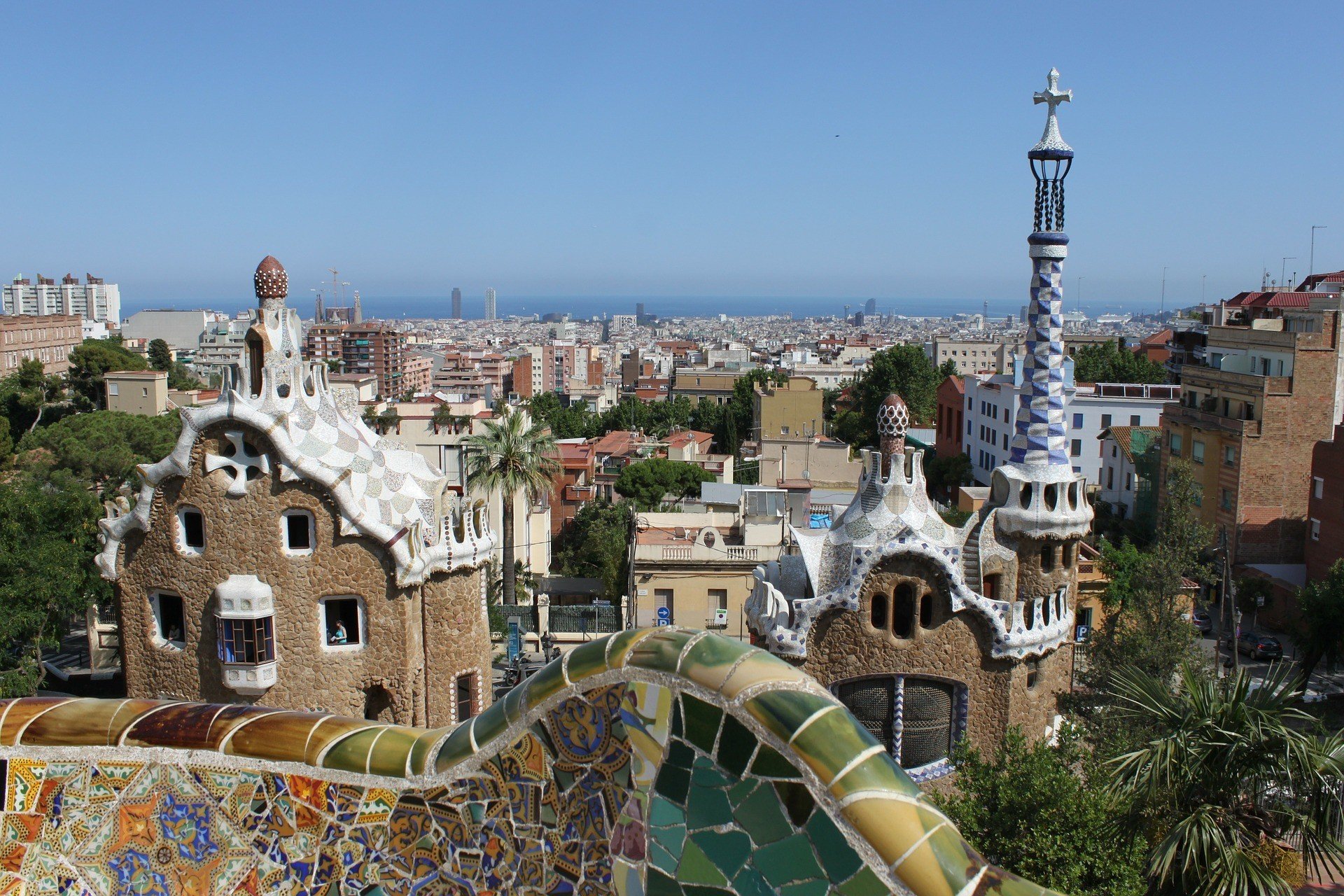
Barcelona is a popular place for expats but there ARE some things you’ll have to contend with if you decide to live in the Catalan capital:
- The cosmopolitan culture mingles with mass tourism and the crowds can simply be TOO MUCH. We are serious here.
- Whilst many of the tourists are concentrated around the Sagrada Familia or the Parc Guell, it still will feel as though they are everywhere.
- There are issues with living in Spain in general. Jobs aren’t exactly rife and salaries are low so make sure you secure a job BEFORE you go. Better yet: work for yourself.
- Things like petty crime can be super annoying. We said earlier that virtually a quarter of Barcelona residents had been victims of petty theft in the past year.
- BUT… There are some really nice places you can live in Barcelona where you can soak up the laid-back lifestyle and friendly local feeling. For example, there’s Gracia , a charming neighbourhood that’s like a city in a city, and also the cool district of El Born with its indie atmosphere and quirky mix of old and new.
For the most part, it’s safe to live in Barcelona. Do your research, learn about recent history and the Catalan independence, know that you’ll be living shoulder to shoulder with tourists almost every day, and that you’ll have to put up with the stuff that comes with it, like pickpockets…
But ultimately, Barcelona is a cool city and an awesome place to live!

A new country, a new contract, a new piece of plastic – booooring. Instead, buy an eSIM!
An eSIM works just like an app: you buy it, you download it, and BOOM! You’re connected the minute you land. It’s that easy.
Is your phone eSIM ready? Read about how e-Sims work or click below to see one of the top eSIM providers on the market and ditch the plastic .
Spain’s healthcare, in general, is TOP NOTCH and is one of the best healthcare systems in the world. (What do you expect from a country that spends around 10% of its GDP on its public healthcare?)
Spanish people are known for their long lives. The life expectancy of Spanish women is particularly high; they outlive every other nation except Japan.
And Barcelona, being a big city, has lots of healthcare options and excellent services:
- If you’ve got something minor, just head to one of the many pharmacies. You’ll often be able to get hold of medication over the counter that at home you might need a prescription for.
- Hospitals have a HIGH standard of service, care, cleanliness – everything. Public hospitals and clinics are FREE.
- Make sure you take a copy of your insurance or your European Health Insurance Card with you when you get treatment.
But other than that, it’s honestly AMAZING. You won’t have to worry about anything.
Before I list some essential Spanish (Castillan) phrases you should learn, I will preface this list by saying most of the North of Spain doesn’t actually speak Spanish as their first language.
There are 5 languages spoken in Spain: Castillan (Spanish), Catalan, Basque, Galician, and Occitan. While most of the schools teach both their regional language and Spanish, many older people – especially in smaller towns and remote areas – may not speak Spanish in Catalonia, Basque Country, Galicia, or the Pyrenees.
That being said, you can get by pretty much anywhere if you know Spanish, and you won’t have any trouble getting around Barcelona, Madrid, or other touristic areas only knowing English. Moreover, most young Spaniards people can speak Spanish and English.
Hola – Hello
Buenos Días – Good Day
Buenos Tardes – Good Evening
Buenas Noches – Good night
Como Estás – How are you? (Informal)
Vale – Castellano (Spain Spanish) way of saying okay.
Una cerveza y una tapa – One beer with a tapa
Buena Onda – Basically translates to good vibes
No entiendo – I don’t understand
Perdon – Excuse me
Sorry – Discúlpe (pardon) or lo siento (emotional)
Can you help me, please? – Me puedes ayudar, por favor?
Here are some quick answers to common questions about safety in Barcelona.
What should you avoid in Barcelona?
Avoid doing these things in Barcelona to stay safe: – Steer clear of any political demonstration/protest – Don’t leave your belongings unattended – Don’t walk around looking rich and flashy – Don’t talk about Catalan independence
How safe Is Barcelona for tourists?
Barcelona is as safe as it gets for tourists in a popular European city. Pickpocketing and petty theft is the biggest safety issue. Luckily, visitors normally don’t experience any violent crime.
Is Barcelona safe to walk at night?
In general, Barcelona is a pretty safe city to walk around in, even late at night. However, you’ll always be a bit safer in a group than by yourself. Stick with the main and popular streets and you won’t face any troubles.
What are the bad areas of Barcelona?
These districts and Barcelona should be avoided, especially at night: – Raval – Rambla de Raval Boulevard – La Mina and Sant Adrià de Besòs – Park Güell
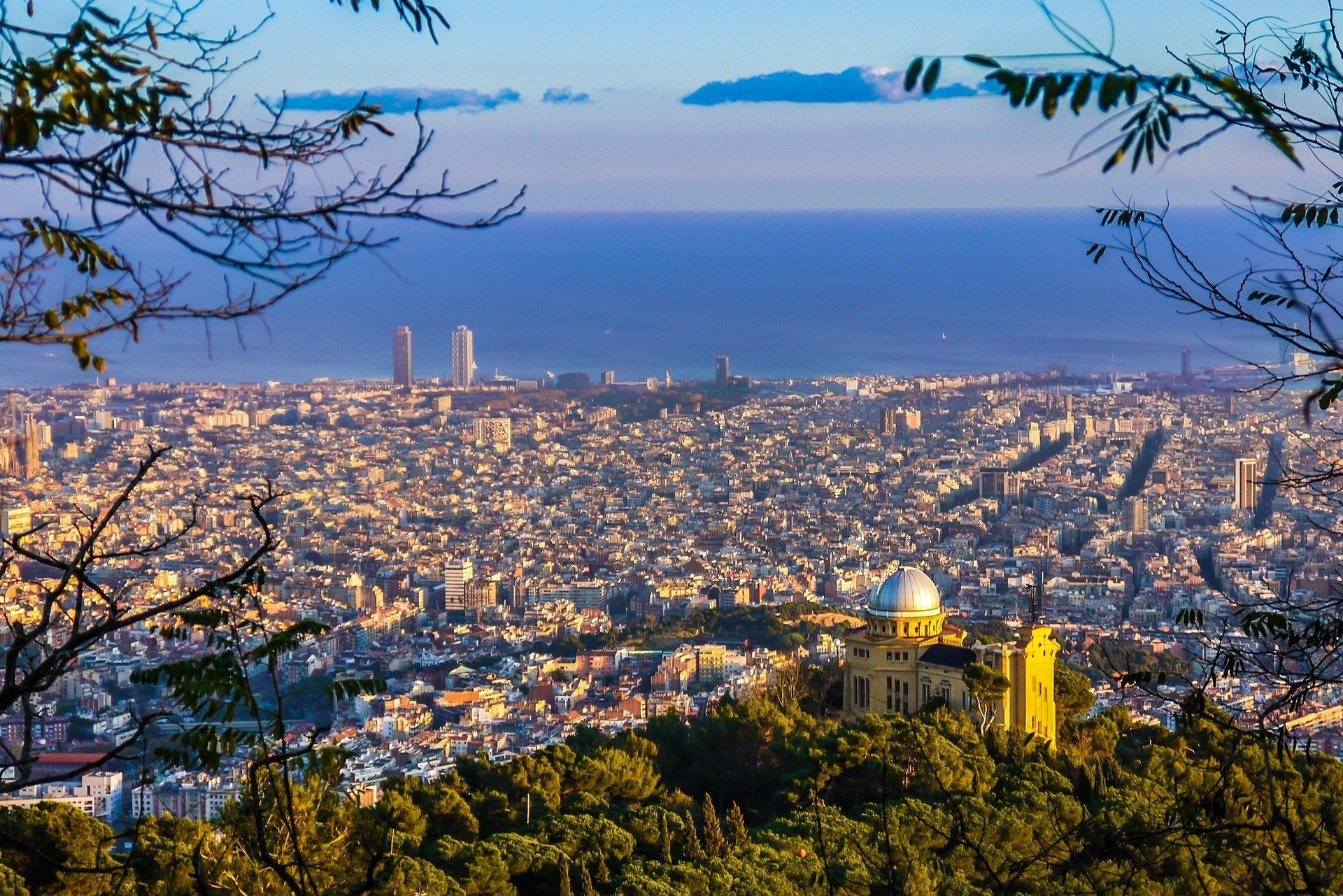
Barcelona is a super cool city. All the Gaudi architecture, all the beauty of the Gothic Quarter, the hipster-friendly hostels, the endless shops of Las Ramblas; we totally understand why anybody would want to visit.
But that’s part of the problem: everyone DOES want to visit and seemingly all at the same time. Barcelona is practically overrun with tourists. The anti-tourist sentiment is actually growing.
More tourists mean more pockets to pick as well – Barcelona has a horrible reputation with petty crime and it happens here all the time. Our advice to you would be to simply travel smart – avoid massive crowds, deserted streets at night, and anywhere else that might make you an easy target.
In all honesty, you’re going to be fine when you visit Barcelona and you will very rarely if ever be in danger. Just keep your valuables close to you and don’t walk around Barcelona like it’s a theme park (say no to parquetematización ) . Be respectful of the locals and maybe try to see parts of the city that are less well-known. There are many, many sides of Barcelona that deserve to be seen.
Disclaimer: Safety conditions change all over the world on a daily basis. We do our best to advise but this info may already be out of date. Do your own research. Enjoy your travels!

And for transparency’s sake, please know that some of the links in our content are affiliate links . That means that if you book your accommodation, buy your gear, or sort your insurance through our link, we earn a small commission (at no extra cost to you). That said, we only link to the gear we trust and never recommend services we don’t believe are up to scratch. Again, thank you!
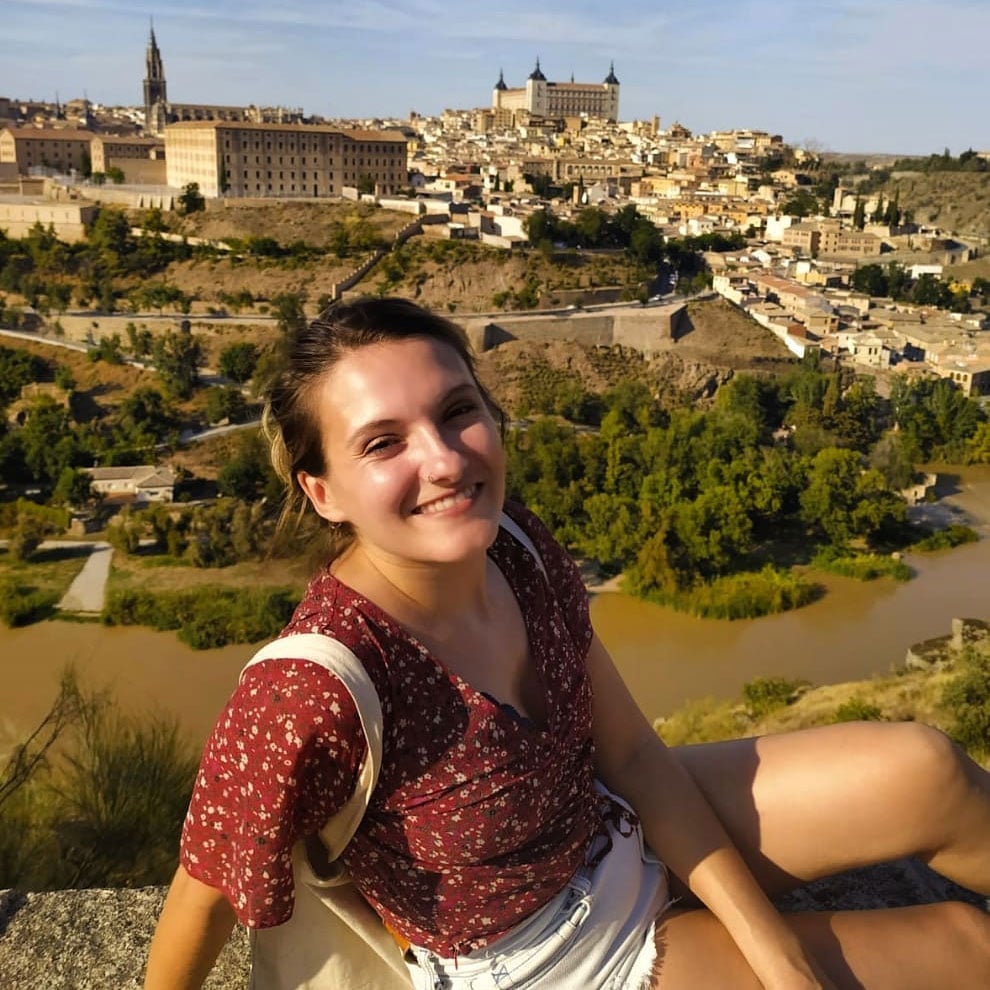
Mathilde Magnier
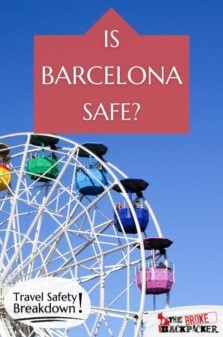
Share or save this post

I was walking along Barceloneta beach with friends 3 days ago when all of a sudden I saw a man tap a woman on the shoulder and point to a silver ring on the ground. Immediately I knew what was happening, it was the infamous distraction theft trick! The woman continued talking to the man that was behind her, while another man instantly appeared in front of her, slowly lifted her backpack off the top of the travel suitcase she had it on top of without her noticing, and calmly walked away with it. I yelled out to warn her that her bag was being stolen but she didn’t notice what I was saying until the man was already far away with her bag.
I feel bad that I did not help her but the man threatened to stab me. I wasn’t particularly concerned about him because being a large man I could probably have overpowered him as he was much smaller. However, I know these scumbags work in groups because they are too cowardly to do these things alone. There were at least 4 people in this gang because my friend saw 2 other people run away along with the man who distracted her and the man who stole her bag.
I came to Barcelona and 2008 and 2011 and it didn’t seem nearly as bad as it is now. Especially with the Catalan independence protests going on it seems like the police are thoroughly distracted and the scum and scoundrels know it. The thieves are running around stealing things with impunity. Walking around all the different neighborhoods with my friends we rarely saw any police presence. The only place I see police with any regularity is on La Rambla. Which understandably is the center of tourism and one of the most common areas that pickpockets operate, but it seems as if they are leaving other areas of the city under-policed.
Very sad. Don’t get me wrong though, I think you should still visit Barcelona. I’m from New Jersey and frequently visit New York City, which is far more dangerous than Barcelona. I actually feel safer in BCN compared to NYC most of the time. I do not want to discourage anyone from visiting Barcelona because it is such a beautiful and amazing city. The violent crime rate is still quite low, although alarmingly violent crime is also on the rise. Petty theft such as pick pocketing, stealing phones/jewelry/etc. are the most common crime occurrences.
It is still one of my favorite cities in the world but it is disappointing that the local police and government are not doing more to prevent the increasing crime.
Thanks for the timely warning Tim. This is indeed a situation to be wary of, it happens in broad daylight. Having visited BCN a number of times myself, I agree its a wonderful city and I will continue to return despite this type of activity. Vigilance is key.
I don´t feel safe anymore in Barcelona, I witnessed many things around me + family or friends robbed or assaulted. If I go out at night and then come back late, I see these young guys from abroad (you know who) around, following me and calling me.
The Catalan government doesn’t want to accept this insecurity, which is a big mistake as it getting worse day after day with now, at least one stabbed / day. I feel like it is already too late. Thanks to the mayor also.
Barcelona is not going through a particularly safe period, yet is still very safe compared to almost every other cities globally.
The real problem is: security is worse every day and, as a local, we don’t know where the bottom is (i.e. 5 murderes related to fights between gangs in July 19)
Saying that the insecurity in Barcelona is caused by the increase in tourism is unacceptable, and it would be the first city in history with that problem, therefore unlikely.
The lack of security is driven by the lack of action of our local police.
Nobody wants to know why, but our police does not seem to be allowed to act against criminal behaviour, particularly when criminals . To illustrate my point, I am attaching this link where you can appreciate the reaction of the police against a group of people selling ilegal gear on the street, who were told off by a local woman:
https://twitter.com/perdiguerosipep/status/1160298302539227136?s=12
Summarising, Barcelona is safe, but it needs a much more effective local police to deal with the uprise in violent behaviours. The statement: the cause of all problems are “tourists” or “the central government of Spain” is clearly a political manoeuvre to make local politicians look / feel good, despite of having every indicator saying that Barcelona is worse today than 10 years ago.
Thanks for your comment! It shows a very nuanced perspective on things. When we talk about insecurity increasing with tourism, we mean to say that criminal activity towards tourists is more likely in heavily touristed cities than seldom visited ones. I also agree that insecurity, in general, must be addressed by the local government, but for our fellow travelers, we recommend caution as always.
Leave a Reply Cancel reply
Your email address will not be published. Required fields are marked *
Save my name, email, and website in this browser for the next time I comment.
Notify me of followup comments via e-mail.

Is Spain Safe To Visit In 2024?
If you’re planning the trip of a lifetime and wondering is Spain safe to visit then you’re not alone. Thousands of tourists flock here every single year to enjoy everything from the best places in Spain to kayak , to ski holidays (yes, it does snow in Spain !), and city breaks.
Known for its rich history, vibrant culture, and stunning natural scenery Spain really does have something for everyone, and we have enjoyed holidays in Spain for many years, and even lived here for six months at a time for several years in a row.
From the bustling streets of Madrid and Barcelona to the beaches of the Costa del Sol and the rolling hills of Andalusia, Spain keeps calling us back!
But with any destination, safety is always a concern. As a traveler, it’s important to know the risks and take precautions to ensure your safety and enjoyment of your trip.
In this blog post, we’ll take a closer look at the question of safety in Spain. We’ll explore the country’s crime rates, natural hazards, and other potential risks that travelers should be aware of.
We’ll also share tips for staying safe in Spain, from avoiding pickpocketing to using reliable transportation and being respectful of local customs.
Adam spent several years working in the tourism industry all over Spain, so has a good idea of the kind of problems tourists can run into while traveling in Spain. We can’t wait to share everything we’ve learnt to help you make your trip all the more enjoyable.
Whether you’re planning a solo trip to Spain or a family vacation, this post will provide you with the information you need to stay safe and enjoy all that this beautiful country has to offer.
So let’s dive in and explore the question of safety in Spain.

As an Amazon Associate, we earn from qualifying purchases. We also earn from other affiliate programs. This means we may receive a small commission on products purchased through our links at no extra cost to you.
Table of Contents
Crime in spain, avoiding bad neighborhoods, riots and protests in spain, dangerous animals in spain, natural disasters in spain, travel insurance in spain, frequently asked questions, top tips for staying safe in spain, is spain safe.

Spain is generally considered a safe country to visit, with a low crime rate and a well-developed infrastructure. However, like any country, there are some safety concerns that travelers should be aware of.
Petty theft is a common problem in some areas, especially in busy tourist spots, so travelers should take care of their belongings and be cautious of pickpockets.
This is one of the biggest problems we found tourists had in Barcelona, but not something we saw regularly along the Spnish coast and beach resorts. As you would expect, you should be more cautious around majoy tourist attractions.
Additionally, travelers should be cautious when using public transportation and avoid unlicensed taxis. These are rare and usually result in nothing more than being overcharged, but it’s good practice to use licensed transport when in an unfamiliar country.
In terms of natural disasters, Spain is relatively safe, although there is a risk of wildfires during the hot summer months. Travelers should also be aware of the risks of sunburn and heat exhaustion during the summer.
We’ll look at each potential hazard in more detail below.
Spain is considered a safe country with a relatively low crime rate compared to other countries in Europe and around the world. The Spanish government takes crime prevention seriously and has implemented measures to ensure public safety.
Most crime in Spain is related to petty theft, such as pickpocketing and purse-snatching, which often occurs in busy tourist areas, public transportation, and crowded places. Tourists are advised to take basic precautions, such as keeping their belongings secure and being aware of their surroundings.
Violent crime is relatively rare in Spain, but it does occur. Most of the violent crime is related to gang activity, drug trafficking, or domestic violence. Travelers should exercise caution in certain areas, especially at night, and avoid getting involved in illegal activities.
As with any other country, travelers should take basic safety precautions, such as being aware of their surroundings, avoiding carrying large amounts of cash or valuables, and using licensed taxis or public transportation.
If you become a victim of crime, report it to the local authorities and your embassy or consulate as soon as possible.
In summary, Spain is a safe country to visit, and by taking reasonable precautions, you can minimize the risk of becoming a victim of crime.

It’s unlikely that you’ll wander into any bad neighbourhoods in Spain, as in all likelihood you’ll be sticking to the tourist areas.
Avoiding bad neighborhoods can help you stay safe and minimize the risk of being a victim of crime. Here are some tips to consider:
- Do your research: Before moving to a new area or traveling to a new city, do some research on the neighborhoods you’re considering. Look at crime statistics and news reports to get a sense of the safety level in the area.
- Be aware of your surroundings: When you’re out and about, pay attention to your surroundings. Look for signs of neglect, such as broken windows, graffiti, and litter. If a neighborhood looks run-down, it may not be the safest place to be.
- Trust your instincts: If something doesn’t feel right, trust your instincts and leave the area. Avoid walking alone at night, and if you do need to walk in a questionable neighborhood, walk confidently and purposefully.
- Stay in well-lit areas: Stick to well-lit streets and avoid alleyways or other dark areas. If you’re walking alone at night, consider carrying a flashlight or using the flashlight feature on your phone to light your way.
- Avoid displaying valuables: Don’t flaunt your valuables, such as expensive jewelry or electronics, in public. This can attract unwanted attention and make you a target for theft.
- Use transportation wisely: When using public transportation, avoid traveling alone, especially at night. Stick to busy routes and avoid deserted stops.
Remember, no neighborhood is completely immune to crime, so it’s important to always be aware of your surroundings and take precautions to protect yourself.
Spain has a long history of political protests and social unrest, dating back to the Franco era in the mid-20th century. In recent years, there have been several high-profile protests and riots in Spain.
One of the most significant protests in recent years was the “Indignados” movement in 2011, also known as the 15-M movement. The protests began in Madrid and quickly spread to other cities across Spain, with thousands of people taking to the streets to demand political and economic change.
The movement was largely peaceful, but there were some incidents of violence and clashes with police.
In 2017, there were protests in Catalonia following a controversial independence referendum. The Spanish government declared the referendum illegal and sent police to disrupt the vote, which led to clashes with protesters. There were also protests in the days following the referendum, with some turning violent.
In October 2019, protests erupted across Catalonia after the Spanish Supreme Court sentenced several Catalan politicians and activists to prison for their role in the 2017 independence referendum. The protests were initially peaceful but turned violent in some areas, with clashes between protesters and police.
More recently, in February 2021, there were protests in Madrid and other cities across Spain after rapper Pablo Hasél was arrested and sentenced to prison for his lyrics, which were deemed to glorify terrorism and insult the monarchy. The protests turned violent in some areas, with clashes between police and protesters.
Overall, protests and riots in Spain are not uncommon, but they are usually contained and do not escalate into widespread violence.
The Spanish government generally allows peaceful protests to take place, but takes a strong stance against violent protests and riots.
If you find yourself caught up in a protest then leave at the earliest opportunity and follow any police guidance immediately. You’re unlikely to encounter any problems, but in a foreign country it’s always best to urge on the side of caution.

Spain is home to a variety of wildlife, including some dangerous animals that visitors and locals should be aware of. Here are some of the most notable dangerous animals in Spain:
- European adder – This venomous snake is found throughout Spain, particularly in mountainous areas. Its venom can cause swelling, pain, and even paralysis, so it’s important to be aware of your surroundings when hiking or walking in nature.
- Iberian wolf – This large carnivore is found in parts of northern Spain, and while they typically avoid humans, they can be dangerous if provoked or cornered.
- Spanish scorpion – The Mediterranean countries, including Spain, are home to several species of scorpions, some of which can be venomous and potentially dangerous to humans.
- Wild boar – These large animals are found throughout Spain and can be aggressive if threatened, particularly if they are with their young.
- European bison – While these large herbivores are not typically aggressive, they can be dangerous if they feel threatened or cornered.
- Mediterranean jellyfish – These jellyfish can be found in coastal waters in Spain and can deliver a painful sting that can be dangerous for people with allergies or other health conditions.
- Brown recluse spider – This venomous spider is not native to Spain but has been spotted in some areas. Its venom can cause severe tissue damage and even death in some cases.
It’s important to remember that encounters with dangerous animals are rare in Spain, and many can be avoided by taking simple precautions, such as staying on designated hiking trails, keeping a safe distance from wildlife, and wearing protective clothing and footwear.
If you do encounter a dangerous animal, it’s best to stay calm and move away slowly and carefully.
Honestly though, Spain really isn’t somewhere I’d be worried about dangerous animals.
Spain is generally a safe country in terms of natural disasters, but there are still some risks that visitors and locals should be aware of. Here are some of the most notable natural disasters that can occur in Spain:
Earthquakes
Spain is located on the Iberian Peninsula, which is not a highly seismic region, but it is not immune to earthquakes. The most significant earthquake in recent history was the Lorca earthquake in 2011, which caused significant damage and several fatalities.
Spain can experience flash floods during periods of heavy rainfall, particularly in coastal areas and river valleys. In 2019, severe floods in eastern Spain caused significant damage and several fatalities.
Spain has a high risk of wildfires during the summer months, particularly in rural and forested areas. In 2020, several large wildfires burned in different parts of Spain, causing significant damage to wildlife and habitats.
Spain can experience prolonged periods of drought, particularly in the south and east of the country. In recent years, droughts have had significant impacts on agriculture and water resources.
Tropical storms
While rare, Spain can be affected by tropical storms, particularly in the Canary Islands. In 2020, the tropical storm Delta caused significant damage in the Canary Islands and on the Spanish mainland.
Overall, while natural disasters can occur in Spain, the country is generally well-prepared to respond to them and visitors should not be overly concerned. It’s always a good idea to stay informed of weather conditions and follow any instructions from local authorities during natural disasters.

Travel insurance is highly recommended when traveling to Spain, as it can provide coverage for a variety of unexpected events, such as medical emergencies, trip cancellations or interruptions, lost or stolen belongings, and more.
When purchasing travel insurance for Spain, it’s important to ensure that the policy covers the specific activities you plan to engage in, such as hiking, sailing in Spain , water sports, or winter sports.
It’s also important to check if the policy includes coverage for pre-existing medical conditions, as some policies may have restrictions or exclusions.
Some factors to consider when choosing a travel insurance policy for Spain include the level of coverage, the deductible or excess, and the overall cost of the policy. It’s also important to read the policy documents carefully and understand the terms and conditions, including any exclusions or limitations.
We use Safety Wing for our travel insurance cover and have been impressed with their service. They have a great reputation among frequent travelers and offer well priced cover.
In addition to purchasing travel insurance, it’s also a good idea to carry a European Health Insurance Card (EHIC), which provides access to state-provided healthcare in Spain. The EHIC is free for citizens of the European Union, the European Economic Area, and Switzerland.
Overall, travel insurance is an essential investment for anyone traveling to Spain, as it can provide peace of mind and financial protection in the event of unexpected events.
Book your travel insurance well in advance of your vacation
Here are some of the questions we get asked most frequently by travelers to Spain.
Is It Safe To Travel In Spain At Night?
In general, Spain is a safe country to travel in at night, but as with any destination, there are certain precautions that travelers should take to ensure their safety.
In larger cities, it’s important to be aware of your surroundings and avoid poorly lit or deserted areas, particularly in the early hours of the morning. It’s also a good idea to avoid walking alone at night, especially in unfamiliar areas.
In the big cities there tends to be lots of people around late into the night in the main tourist areas, but places that are less well lit like the beach in Barcelona are a little more prone to crime.
Public transportation in Spain is generally safe to use at night, but it’s important to be aware of your belongings and keep an eye out for any suspicious behavior. Taxis are widely available in Spanish cities and are a safe option for transportation at night.
In terms of accommodation, it’s important to choose a reputable hotel or hostel in a safe area. Some accommodations may have limited reception hours or require guests to be buzzed in at night, which can provide an extra layer of security.
Overall, while Spain is generally safe to travel in at night, it’s important to take precautions and use common sense to ensure your safety.
By being aware of your surroundings, avoiding risky areas, and using reliable transportation, you can have a safe and enjoyable trip to Spain.
Is Barcelona City Safe?

Barcelona is generally a safe city, but as with any large city, it’s important for visitors to take precautions to ensure their safety.
Pickpocketing and other forms of theft can occur in busy tourist areas, particularly in crowded places such as the Gothic Quarter and Las Ramblas.
It’s important to be aware of your belongings and keep them close to you, especially in areas with large crowds. Avoid carrying valuables such as expensive jewelry and large amounts of cash.
It’s also important to be aware of your surroundings, particularly at night. While violent crime is relatively rare in Barcelona, it’s important to stay on well-lit and busy streets, and avoid deserted areas or poorly lit alleyways.
When using public transportation, stick to licensed taxis which are common and widely used in Barcelona as a form of transport.
In general, if visitors take basic safety precautions, Barcelona can be a safe and enjoyable destination. It’s important to be aware of your surroundings and keep your belongings close to you, but visitors can still experience the city’s rich culture, architecture, and cuisine with ease.
Is Spain Friendly To Tourists?
Yes, Spain is generally a friendly and welcoming country for tourists. We have always been met warmly by locals and this is one of the things we love most about traveling here.
Spanish people are known for their hospitality and love of food, wine, and socializing, and they are often eager to share their culture and traditions with visitors.
In tourist areas, you’ll find many locals who speak English and are happy to help with directions or recommendations for restaurants, attractions, and activities.
Spanish people are generally patient with tourists, and are happy to help visitors who make an effort to speak a little Spanish.
How Safe Is Spain For Female Travelers?

Spain is generally a safe destination for female travelers and I never experienced any threatening or unwanted behaviour, but as with any destination, there are certain precautions that women should take to ensure their safety.
In general, women traveling alone or in small groups should exercise caution when walking alone at night or in deserted areas, particularly in larger cities like Madrid and Barcelona. It’s also important to be aware of your surroundings and avoid poorly lit or deserted areas, particularly in the early hours of the morning.
Spain is known for its party scene, and any problems we saw in the tourist industry tended to involve large amounts of drugs and alcohol. Try to stick to a safe limit when drinking just as you would on any night out, and avoid illegal drugs here.
In general, if female travelers take basic safety precautions, Spain can be a safe and enjoyable destination.
Here are some top tips for staying safe in Spain:
- Be aware of pickpocketing: Pickpocketing is common in busy tourist areas, so keep your valuables secure and be aware of your surroundings. Avoid carrying large amounts of cash and keep your wallet in a front pocket or a secure bag.
- Stay on well-lit and busy streets: Avoid deserted areas or poorly lit alleys, especially at night. Stick to well-lit and busy streets where there are other people around.
- Use reliable transportation: Taxis are widely available in Spanish cities and are a safe option for transportation at night. Be sure to use licensed taxis and avoid getting into unmarked vehicles.
- Be respectful of local customs: Spain is a relatively conservative country, and it’s important to dress appropriately and be respectful of local customs and traditions.
- Stay alert on public transportation: Be aware of your belongings and keep an eye out for any suspicious behavior when using public transportation.
- Choose reputable accommodation: Choose a reputable hotel or hostel in a safe area.
- Stay informed about local events: Keep up-to-date with local news and events, especially during times of political unrest or public demonstrations.
Conclusion: Is Spain Safe To Visit?

As you can see, Spain is generally a safe country to visit. As with any destination, there are certain precautions that travelers should take to ensure their safety, such as being aware of pickpockets in busy tourist areas, staying on well-lit and busy streets, and using reliable transportation.
Overall, Spain is a popular and welcoming destination for tourists, with plenty of attractions, activities, and cultural experiences to enjoy.
Spanish people are known for their hospitality and love of food, wine, and socializing, and visitors are likely to feel welcomed and safe during their trip.
However, it’s always important to stay informed about local news and events, especially during times of political unrest or public demonstrations.
By taking basic safety precautions and using common sense, you can have a safe and enjoyable trip to Spain and it’s unlikely you’ll experience any problems.
- Europe in December
- The best things to do in Miravet
- Siurana in Spain
- Sant Carles de la Rapita
Similar Posts

Europe In December: 33 Awesome Places To Visit In 2024

The Best Places In Spain To Go Kayaking And Canoeing 2024

111+ Couple Travel Quotes For Instagram 2024

Is Madrid Worth Visiting In 2024? 20 Awesome Reasons

A Cheap Getaway-Spending £78.97 on 3 nights in Spain

Sant Carles De La Rapita-The Ultimate Guide 2023
- Search Search Hi! We’re Emily, Adam and Tiny Cat, liveaboard sailors travelling the world on our 38ft sailboat and writing about it as we go. We hope we can inspire you to live the life you’ve always dreamed, whether that’s exploring the world or living a more simple way of life in a tiny home. Find out more. Patreon
- Privacy Policy
Travel Safe

Spring time is here! Spain is filled with plans for you
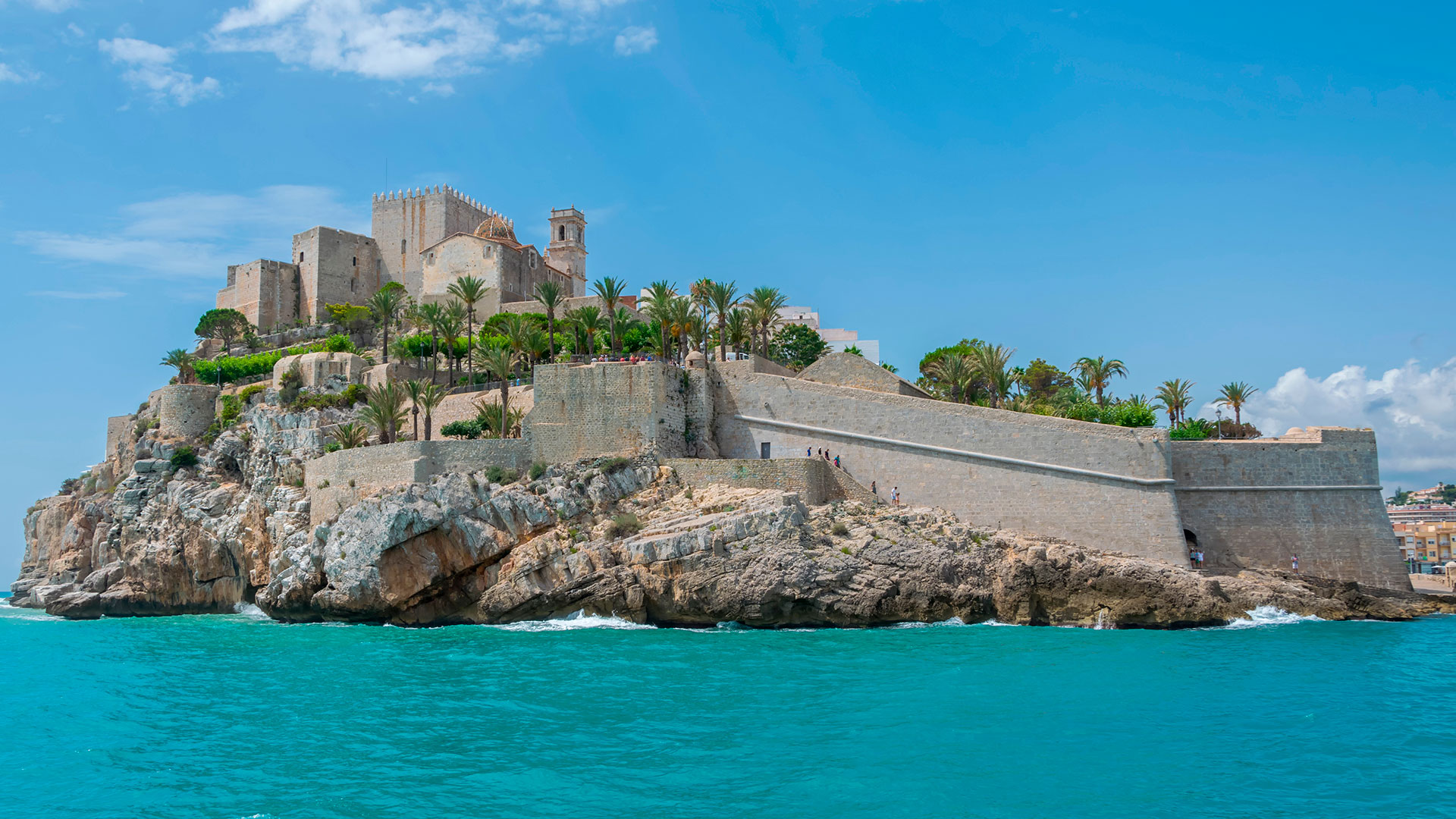
Visit fairytale castles in Spain's most beautiful towns

15 spectacular blossoms to experience up close
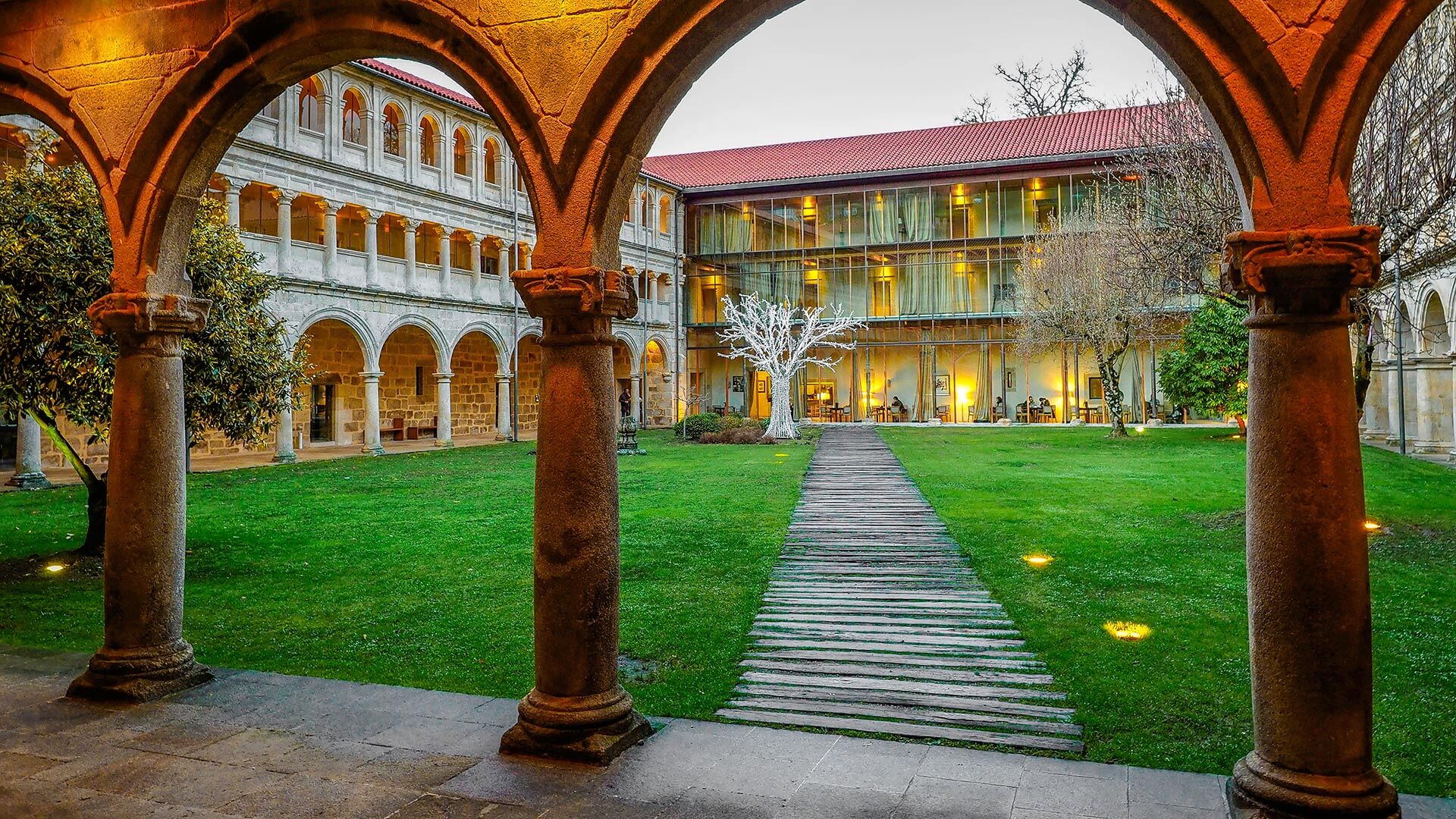
Route of the Monasteries in the Ribeira Sacra
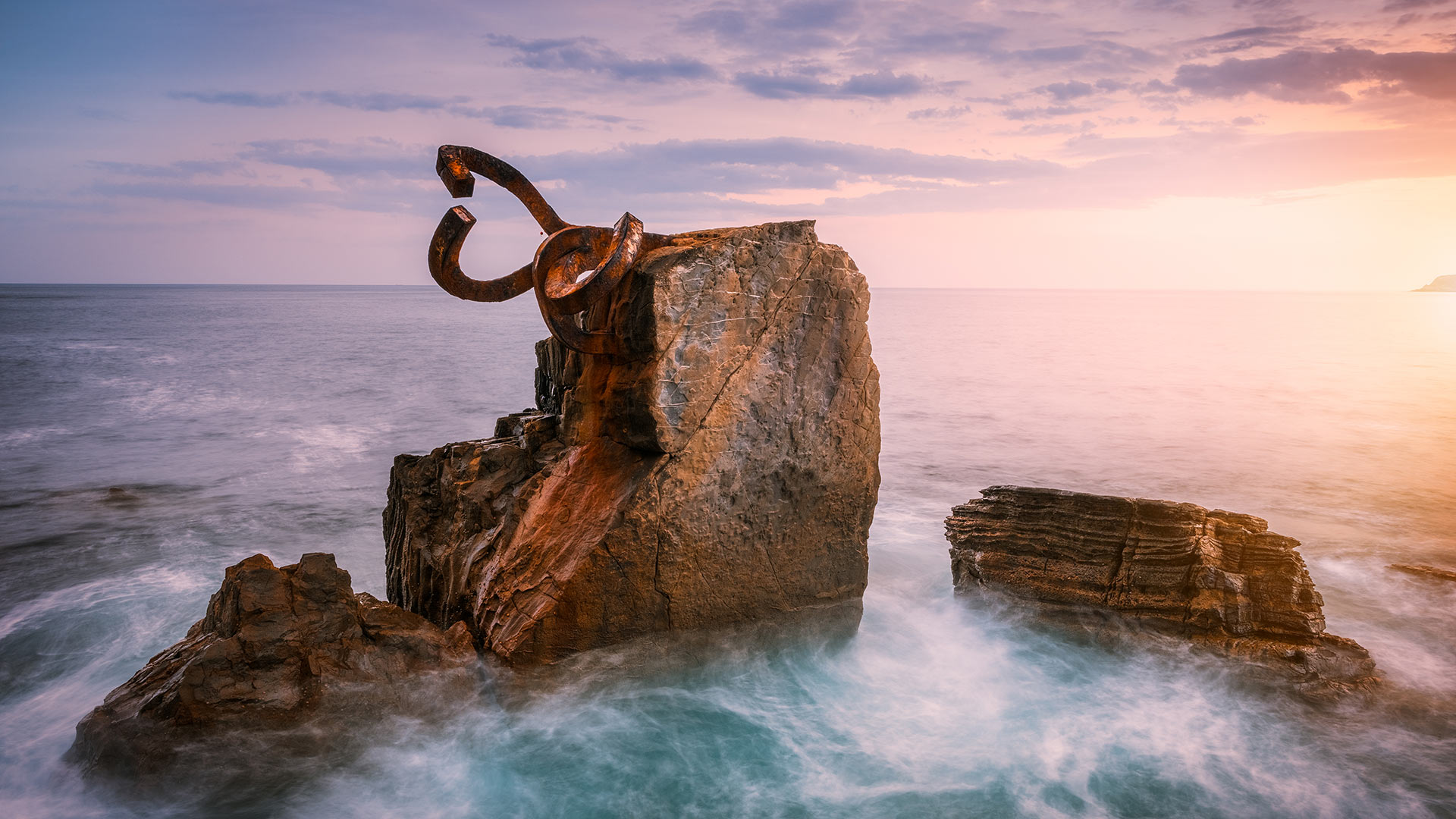
Chillida, 100 years of the universal Basque artist

Start the route with the best music festivals
Discover our destinations
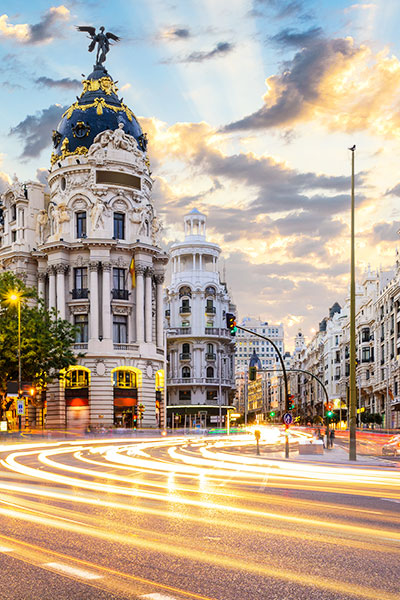
The capital city with a thousand options
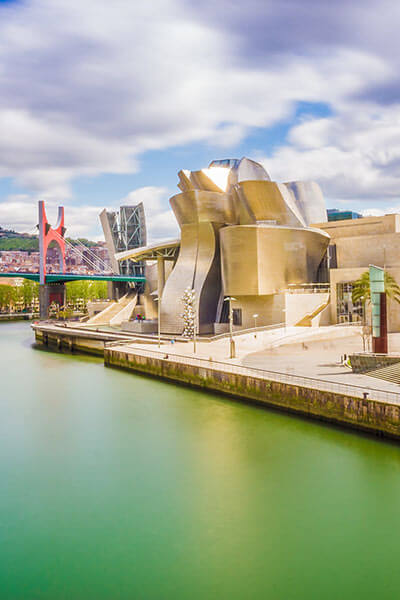
One of Spain’s most avant-garde cities
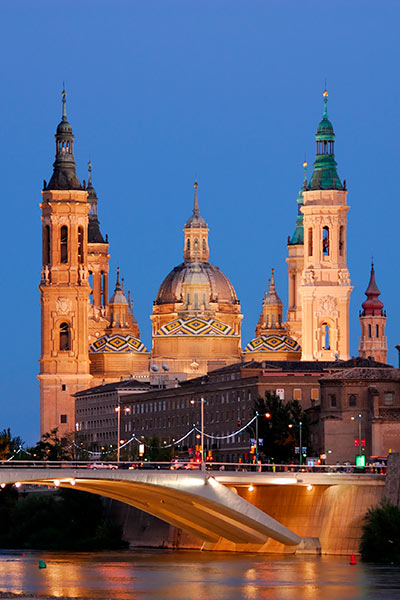
A great city with lots to discover
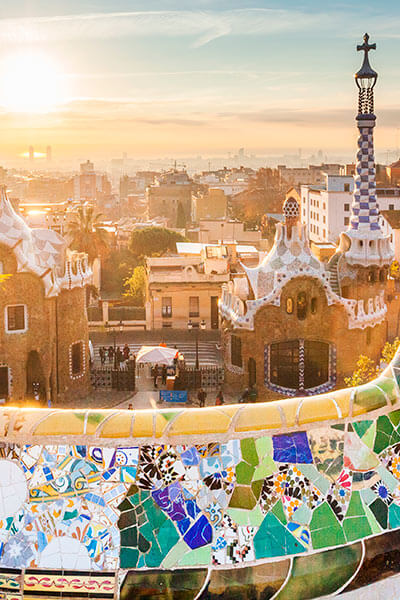
A cosmopolitan vibe
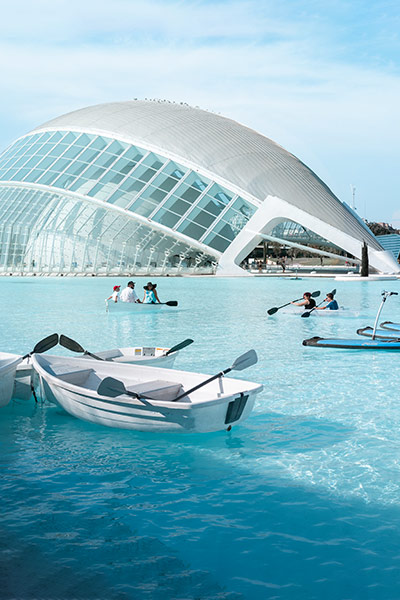
The essence of the Mediterranean
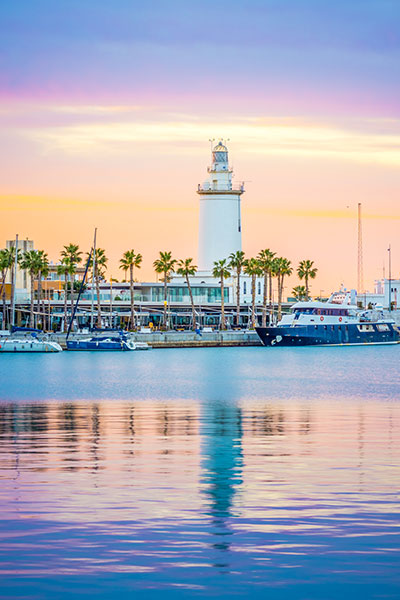
The capital of the Costa del Sol is reinventing itself
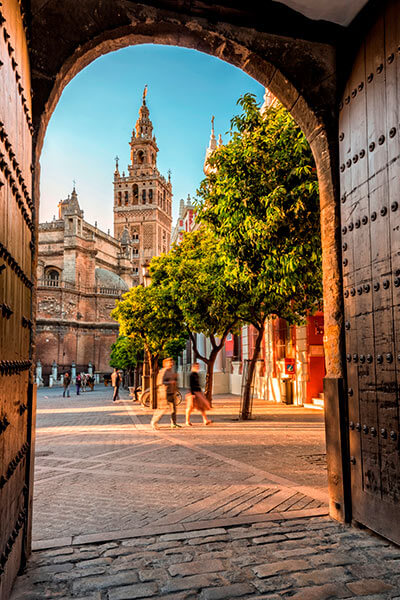
An inspiring destination
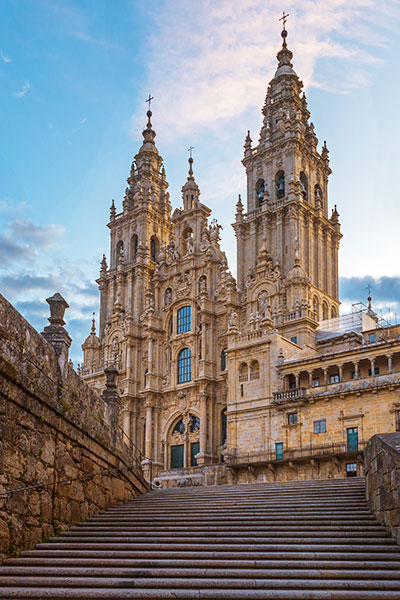
The final destination of St. James’ Way
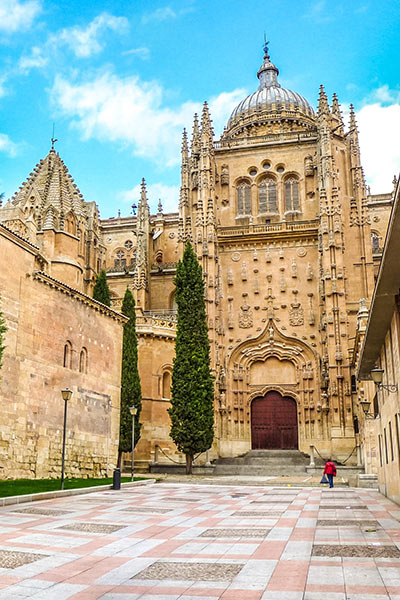
The Golden city of a thousand legends
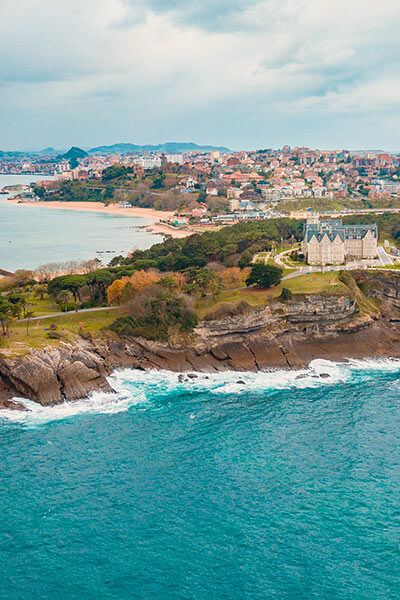
Ideal for a getaway
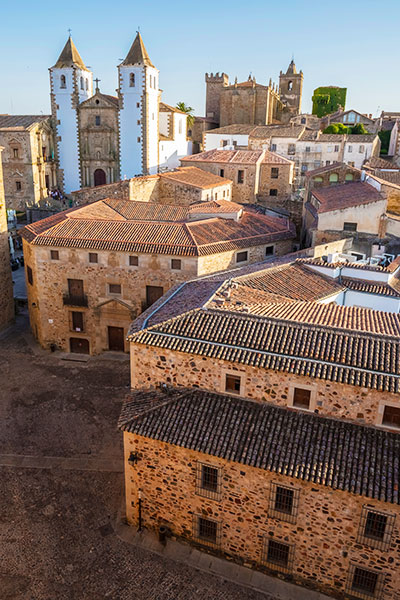
A picturesque medieval setting
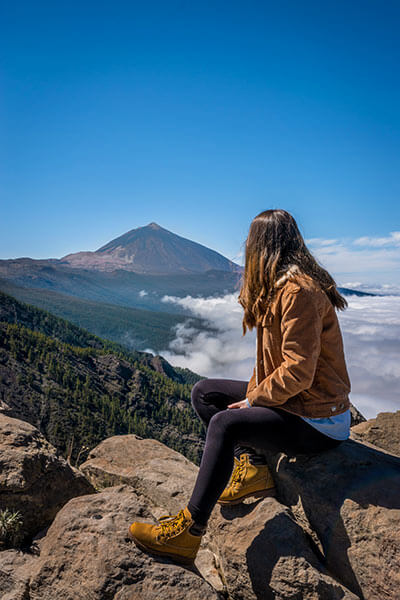
European sunshine capital
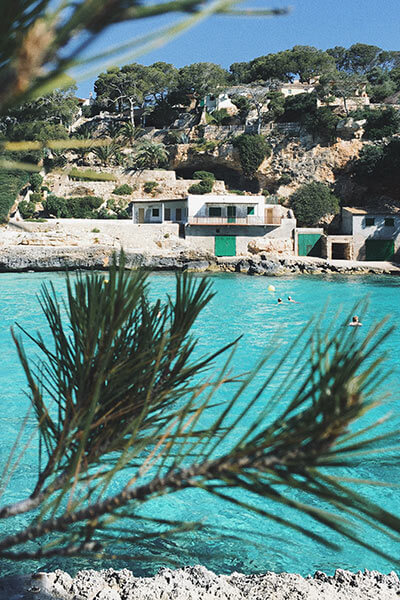
Idyllic coves, beautiful sunsets...
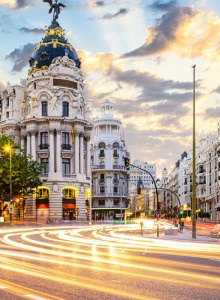
Santiago de Compostela
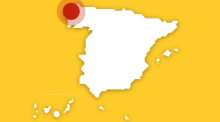
Canary Islands
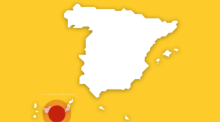
Balearic Islands
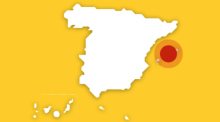
Not to be missed
Choose the travel plan you like the most to make your stay in Spain unforgettable

Holiday ideas in Spain, depending on how and with whom you travel
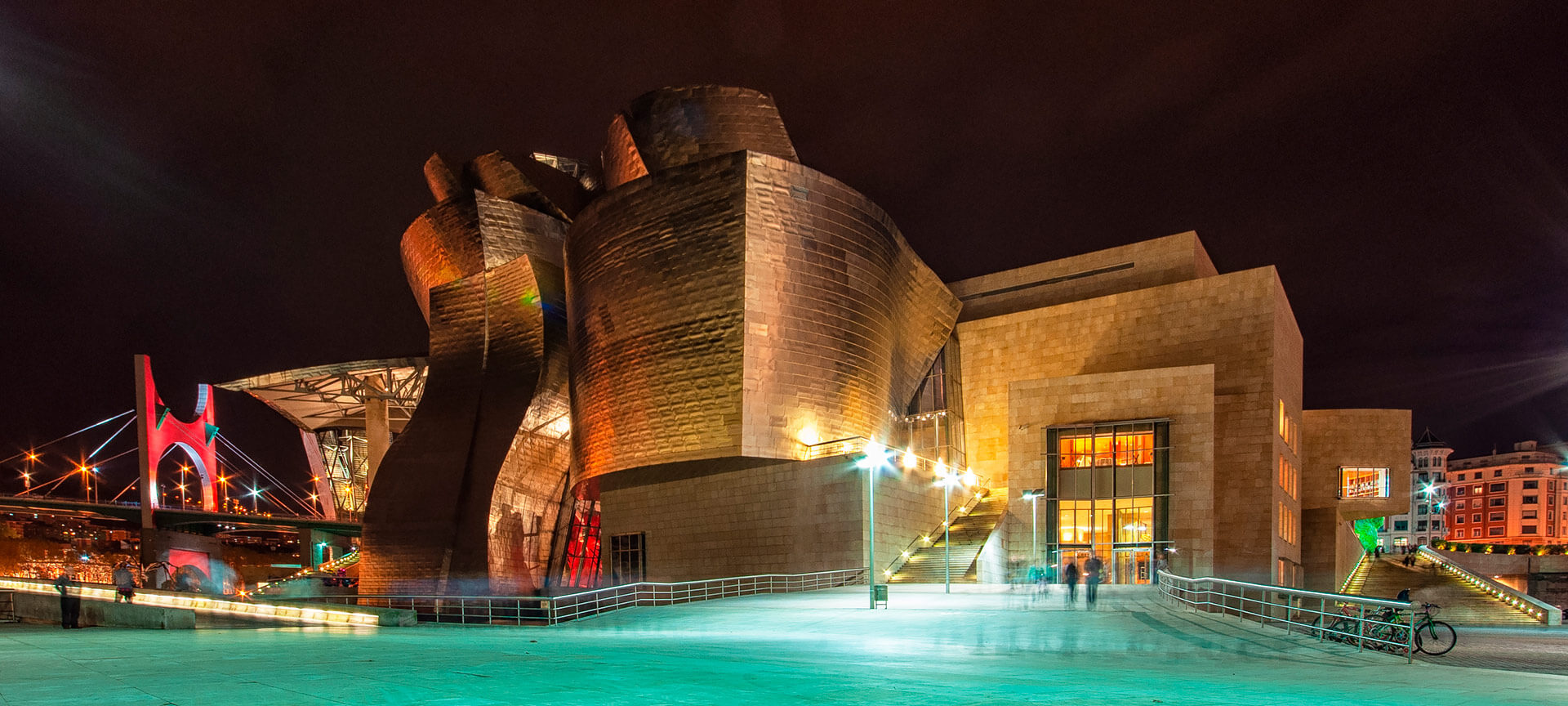
Museum Day is coming! Here are some ideas to make the most of it
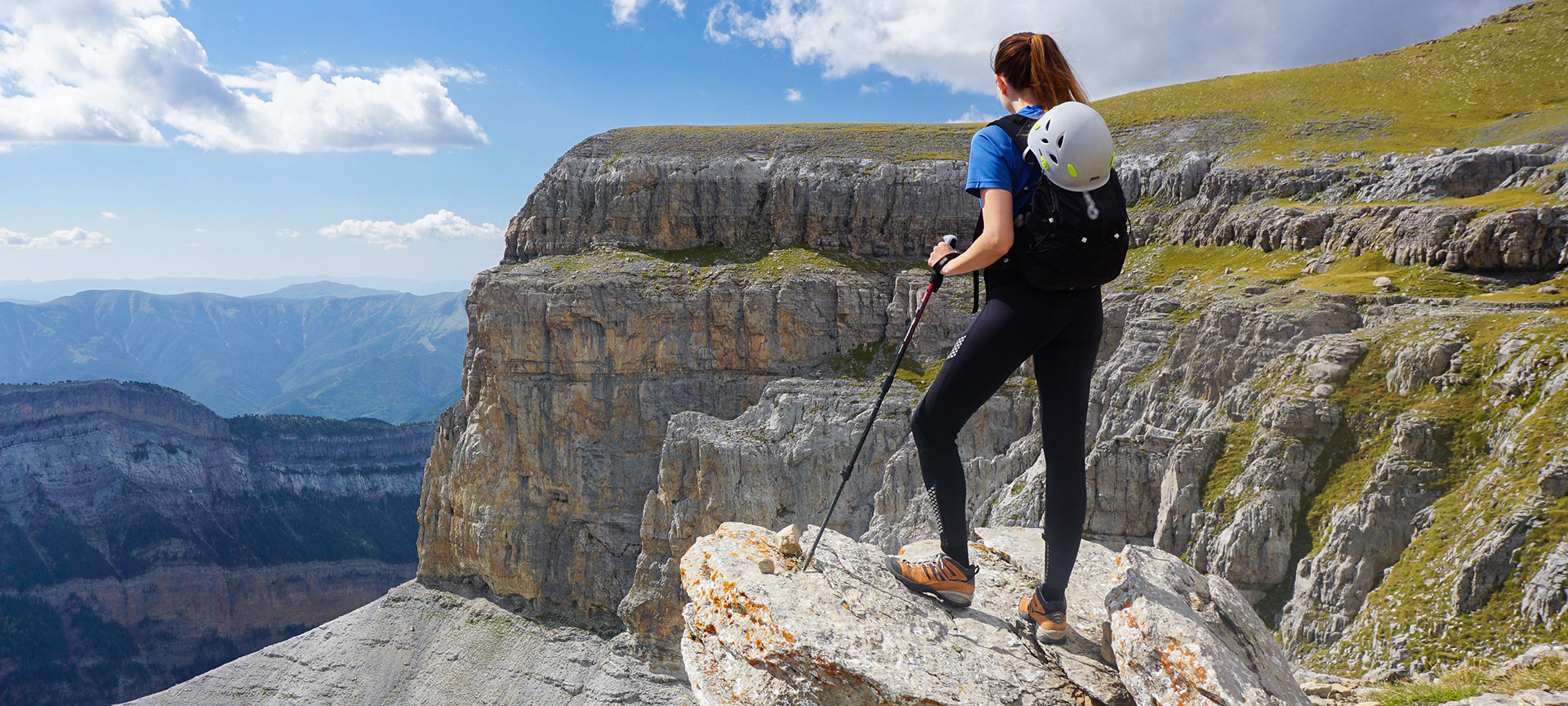
Sport and adventure
Come for a multi-adventure outing! Do you dare?

Urban tourism
Cordoba: the city with four visits to places considered as World Heritage sites, packed with festivals in May
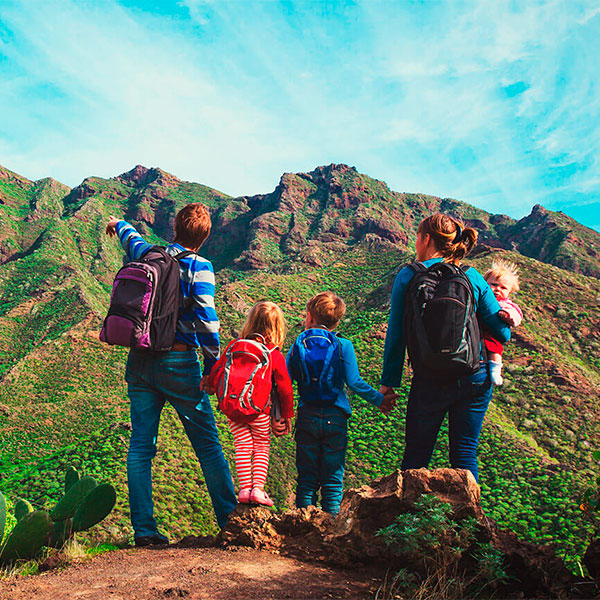
Prepare a family getaway to the countryside

Other ideas for your trip
Do you want some more suggestions for your holidays?

Most popular spain.info TikTok videos
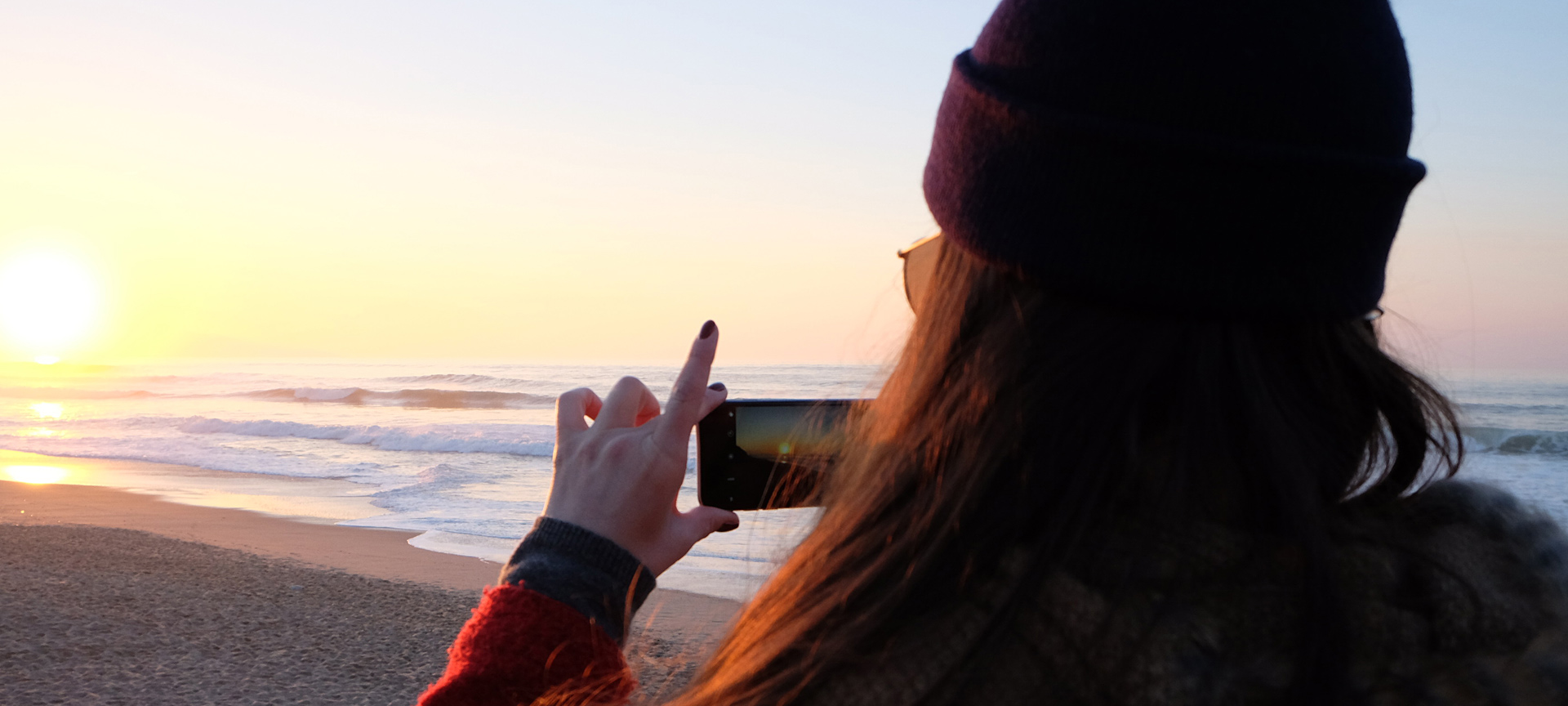
Our 10 most-liked photos on Instagram
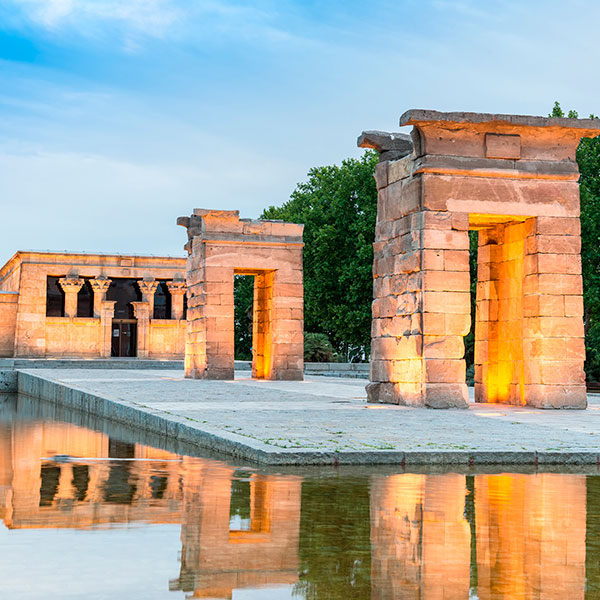
Rediscovering Madrid and Barcelona

Magical natural places in Spain
Are you sure you want to delete this route?

Route planner
Create your own plan for your trip to Spain with a route to suit your requirements
Enjoy the best events
Exhibitions, festivals, festivities... Don't miss a thing!

16 March 2024 - 03 May 2024
Cherry Blossom Festival

22 April 2024 - 05 May 2024
Tennis: Madrid Open

03 May 2024 - 05 May 2024
International Comic Fair
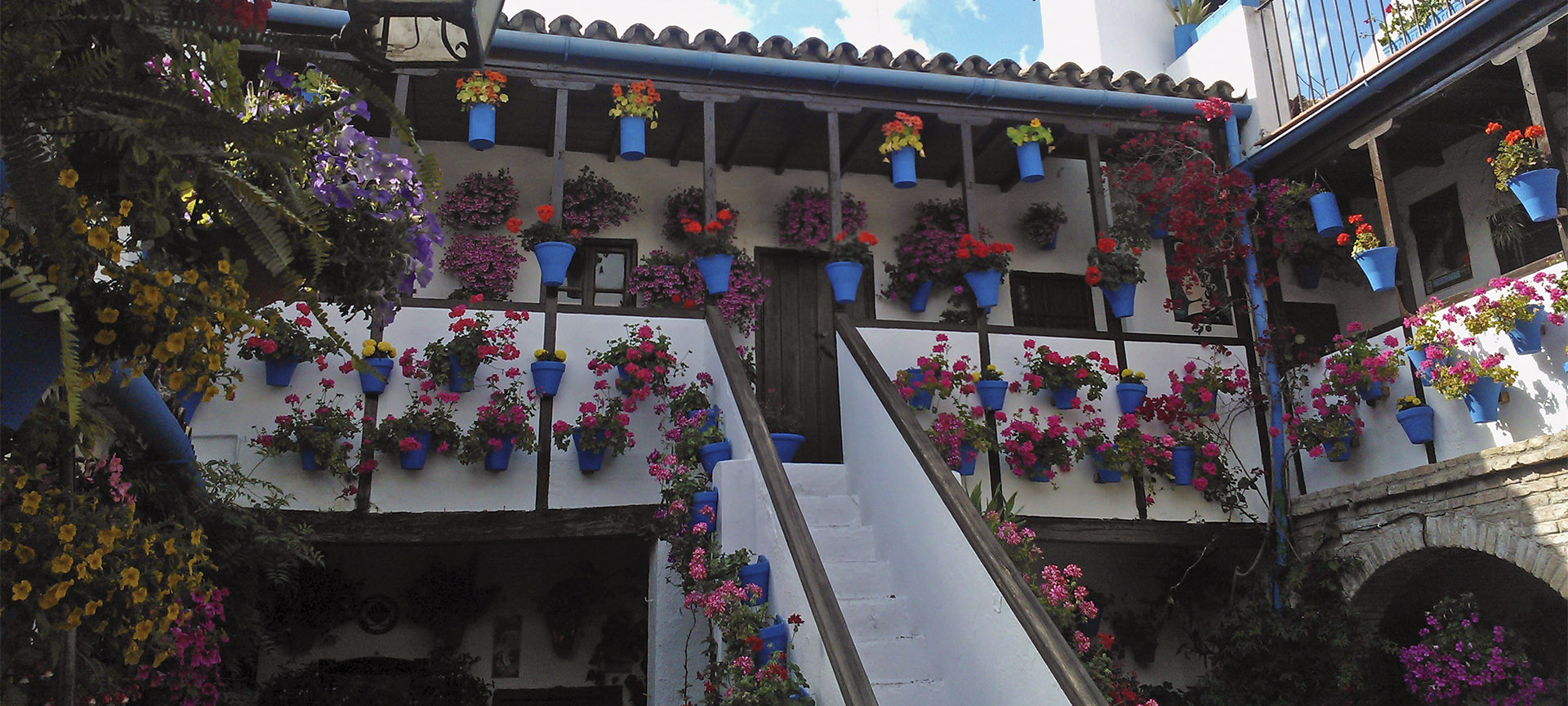
02 May 2024 - 12 May 2024
Festival of the Courtyards in Cordoba
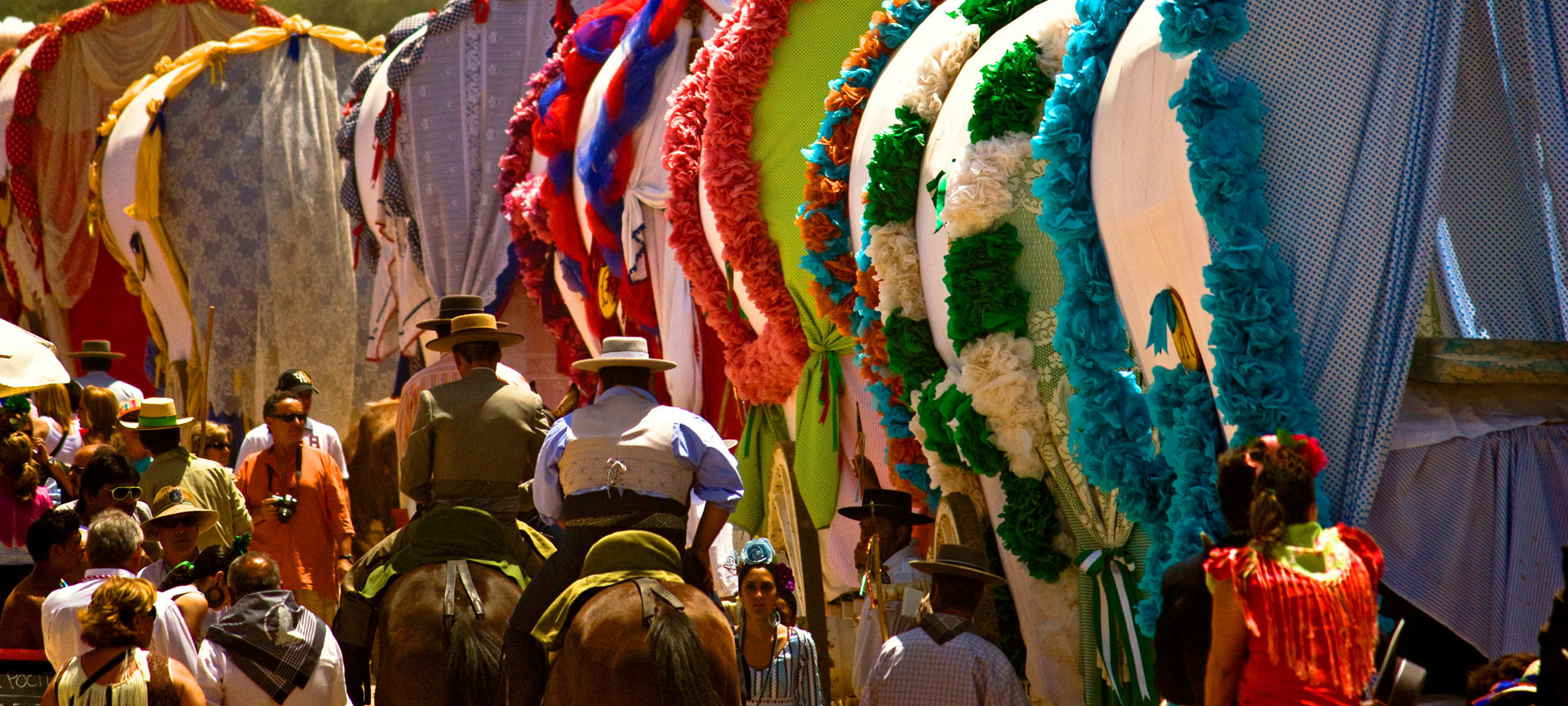
17 May 2024 - 20 May 2024
Pilgrimage of El Rocío
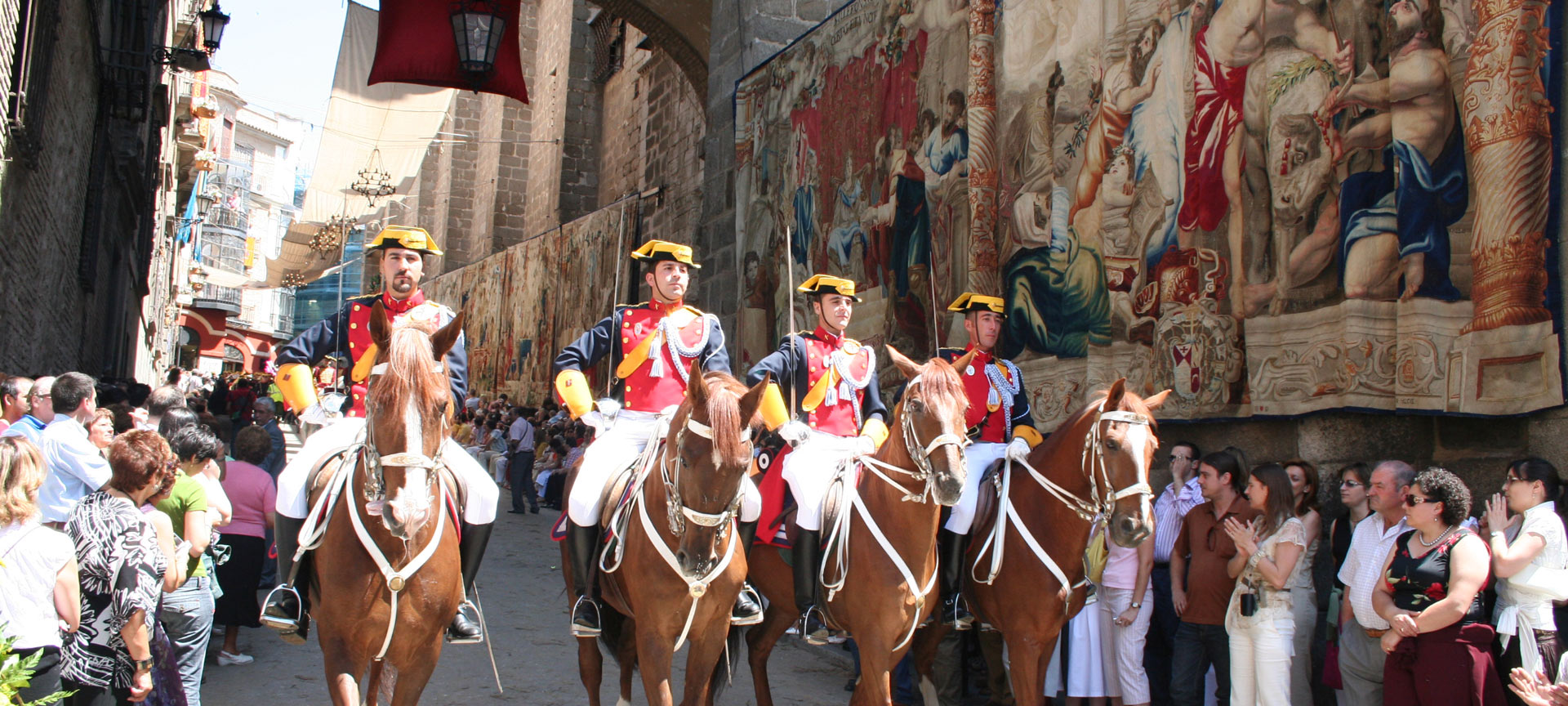
30 May 2024
Corpus Christi in Toledo
All the useful information you need.
Trip advice to get the most out of your holidays
The weather in Spain
Today in: Cuenca
How to get there
How to get around, practical information.

Book your experience
Thousands of activities thought out for you
#visitSpain
Share the best of Spain on our networks
The best ideas for travelling around Spain
Subscribe to receive monthly information with unique travel plans


US issues level 3 travel advisory to China amid safety concerns. Here's what to know
Are you thinking about traveling to China to visit or study abroad? The U.S. government suggests reconsidering your trip for now.
According to the U.S. Department of State , traveling to China is under a level 3 travel advisory , warning Americans to reconsider. The State Department has four warning levels. The fourth is “Do not travel.”
Is it safe to travel to China right now?
The U.S. is asking Americans to reconsider traveling to China due to various reasons, including concerns about health and safety, such as the prevalence of contagious diseases like COVID-19, as well as political tensions or security risks in certain regions.
As of April 12, there are some specific areas that the U.S. is asking people to reconsider travel to. Those areas include:
- Mainland China due to the arbitrary enforcement of local laws, including exit bans and the risk of wrongful detentions.
- Exercise increased caution when traveling to the Hong Kong SAR due to the arbitrary enforcement of local laws.
- Reconsider travel to the Macau SAR due to a limited ability to provide emergency consular services.
Additionally, the U.S. government may issue travel advisories based on factors like civil unrest, natural disasters, or other hazards that could affect travelers' well-being.
Americans detained in China
Mark Swidan — a man from Houston, Texas — has been detained in China for over 10 years on drug charges. According to The Texas Tribune , Swidan was detained in China in 2012 while on a trip looking for materials for his home and business in Houston. Chinese authorities arrested him after his driver and translator were found in possession of drugs. The driver blamed Swidan, who is accused of trafficking and manufacturing methamphetamine.
A review of Swidan’s case said there were no drugs on him or in his hotel. Last year, the Republic of China’s Jiangmen Intermediate Court denied Swidan’s appeal and upheld his death penalty with a two-year suspended death sentence.
Other Americans considered wrongfully detained include Chinese American businessman Kai Li from Long Island, N.Y., and California pastor David Lin.
What countries have a Level 3 travel warning?
- Trinidad & Tobago
- El Salvador
- South Sudan
- Democratic Republic of the Congo
- Papua New Guinea
- Saudi Arabia
What countries have a Level 4 travel warning?
- Afghanistan
- Central African Republic
- North Korea (Democratic People's Republic of Korea)
- Burkina Faso
Traveling abroad? Here are some safety tips
U.S. citizens are encouraged to enroll in the State Department’s free Smart Traveler Enrollment Program and to prepare contingency plans for emergencies.
Safety tips if you're traveling outside the U.S.:
- Don't travel alone.
- Be aware of your surroundings.
- Keep a low profile.
- Try not to be flashy.
- Avoid going to places at night, especially by yourself.
This article originally appeared on Austin American-Statesman: US issues level 3 travel advisory to China amid safety concerns. Here's what to know

7 Safe Towns I Solo Traveled To In Southern Europe
Solo travel is best when safety is guaranteed. Fortunately, many towns in Southern Europe, which I've visited personally, offer that!
- Barcelona offers a vibrant nightlife and amazing architecture for solo travelers to explore safely in Southern Europe.
- Ibiza is not just about parties; it also has stunning villages, historic sites, and tranquil spots for solo female travelers.
- Valletta in Malta is a small but mighty city teeming with museums, bars, and day trip opportunities for solo female visitors.
It might be intimidating to travel alone for the first time, especially if you're a woman. However, there are steps travelers can take to make their first solo trip memorable, one of which is choosing safe towns to visit, which beautiful Europe offers an abundance of.
I have been traveling alone for the past five years, and Europe is by far my favorite continent to see on my own. I love traveling alone around Europe for a variety of reasons, including the remarkable differences between each nation, the amazing food, the rich history, the stunning architecture, and the sheer number of other female solo travelers I encounter, yet safety is my priority.
Fortunately, there are plenty of fantastic and safe towns and cities in Europe for solo travelers , both in the Northern and Southern parts of the continent. However, its Southern region is truly special, offering not only safety but gorgeous Mediterranean summers and beaches, along with historic towns, rich cultures, and stunning landscapes. Here are my top recommendations for safe towns for solo travelers in Southern Europe!
10 Reasons Why This Less Visited Country In Europe Is Perfect For Solo Travelers
7 barcelona, spain, safety index: 48.44.
A fantastic European destination I have explored as a solo traveler is Barcelona. When traveling alone to the Catalonian capital, you can immerse yourself in the city's vibrant nightlife, discover hip neighborhoods as well as incredible streets in Barcelona , and marvel at its world-famous architecture.
Despite being a popular travel destination, Barcelona offers opportunities to customize your trip and make it truly special by veering off the beaten path. One of my favorite spots in Barcelona is Tibidabo , a nearby hill where I enjoyed the breathtaking views of the city from Sky Walk .
Explore this renowned and safe Spanish city, which combines urban life, beach vibes, and a vibrant museum scene. Barcelona is often associated with Southern Europe due to its climate, Mediterranean coastal location, and cultural characteristics.
If you have an extra day, I recommend you to visit PortAventura Park where I had the time of my life!
6 Ibiza, Spain
Safety index: 56.26.
The Balearic Islands of Spain (Majorca, Menorca, Ibiza, and Formentera) are renowned for their breathtaking scenery, often considered among the most stunning in the world. These Mediterranean islands are characterized by their beautiful beaches, picturesque fishing villages, and spectacular natural surroundings. While all of these islands offer excellent options for solo travelers in Southern Europe, Ibiza stands out as one of the best choices.
Ibiza is well-known for its exceptional nightlife, featuring bars and beach parties, making it a fantastic option for lone travelers looking to socialize. However, Ibiza is not solely about parties. The island boasts gorgeous villages, historical attractions, stunning shorelines, and tranquil locations away from the bustling bars.
For those seeking a health-focused vacation, Ibiza is an ideal destination for practicing yoga due to its popularity in the area. Additionally, visitors can enjoy plenty of other fun activities in Ibiza such as trekking, boat cruises, and relaxing on the beach. With its diverse offerings and a focus on safety, Ibiza has everything to enchant any solo traveler.
5 Valletta, Malta
Safety index: 63.13.
One of the safest cities in Europe for solo female visitors is Valletta. With so much to see and do, Valletta may be small but it's mighty in terms of attractions. This stunning city is teeming with solo-friendly activities and is situated on the small island of Malta.
Firstly, there are numerous museums and art galleries in Valletta, with the Upper Barrakka Gardens being highly recommended. The city is also full of cocktail bars and clubs, offering plenty of opportunities to enjoy its vibrant nightlife. A great choice among them is Kamy , one of Valletta's finest bars!
Additionally, Valletta offers several day trips. During my visit, I took a boat to the Islands of Gozo and Comino to experience the authentic flavor of Malta, including incredible sights and activities such as the Blue Lagoon.
Whether you wish to stay in Valletta or venture further afield, it is the ideal location for female visitors. Even when traveling alone, I felt safe, comfortable, and welcomed by the locals.
Backpackers Guide To Western Europe: 10 Best Cities For Solo Travelers
4 kotor, montenegro, safety index: 73.16.
One of the best towns in Southern Europe for solo female travelers is Kotor, Montenegro. Not only is it a highly safe city, but it also has excellent transportation links to neighboring cities around the Bay of Kotor . Buses provide cheap and regular transportation from Kotor to nearby Perast and other seaside cities like lively Budva.
On the other hand, the old town of Kotor is quite walkable and safe for solo travelers who want to spend their entire vacation there. The major form of transportation is walking, as driving is not allowed inside the ancient town's medieval walls.
I climbed up to Kotor Fortress for the most breathtaking panoramic vista across Boka Bay. The Walls of Kotor , which have stairs leading to the summit, and the Ladder of Cattero , which climbs the mountain by switchbacks, are the two options available. The trek took me half an hour to an hour each way, and the views from the summit were amazing!
This trip was a perfect solo journey because I met other genuine hikers along the route. In addition to hiking, I explored Kotor's intriguing ancient town, discovering hidden treasures in its streets. Solo travelers can also sign up for a guided walking tour to meet other travelers and learn about this charming southern European town.
3 Sorrento, Italy
Safety index: 76.47.
The Amalfi Coast is a popular vacation spot with lots to offer ; it is currently one of Europe's most sought-after travel destinations and has emerged as one of Italy's most popular vacation places in recent years. If you are traveling alone, I would strongly advise staying in Sorrento. It is the ideal little town in Southern Europe from which to explore the Amalfi Coast, feeling genuine and far safer than nearby Naples.
Sorrento offers lots of unique things to do and see and is well-known for its cute little roads, recognizable pastel-colored homes, and cliffside location offering spectacular views of the surrounding countryside. This town is also known for producing high-quality Limoncello, a strong lemon-flavored liqueur that is typically drunk as a digestif following a meal.
Sorrento is also home to beaches, charming marinas, aromatic lemon orchards, and ancient attractions like the historical Chiesa di San Francesco . Eating at one of Sorrento's many restaurants that serve delicious Italian food while taking in views of the sea that has turned dusk into night is an experience not to be missed.
10 Undiscovered Travel Destinations In Europe To Visit In 2024
2 zagreb, croatia, safety index: 78.03.
On my trip to Zagreb, Croatia's capital, I was pleasantly surprised, mainly because I hadn't heard much about it before. However, I thoroughly enjoyed my few days spent exploring the city and getting lost in its charm. Zagreb offers plenty to see during a visit and is an excellent place to base oneself for a few days and quickly feel like a local, so don't be too quick to overlook it.
Some of the finest museums in this region of Europe can be found in Zagreb, and visiting them solo is enjoyable, safe, and entertaining. One outstanding example is the Selfie and Memories Museum , which features selfie stands that allow you to fully immerse yourself in the experience. In other news, the Selfie and Memories Museum has also recently opened its doors in Dubrovnik and operates year-round.
Furthermore, Zagreb is a compact city, with most of its attractions easily accessible on foot. I explored all the city's renowned attractions on my own, including Lotrščak Tower , Grič Tunnel , Zagreb Cathedral , and the city's largest square, Ban Jelačić Square .
1 Crete, Greece
Safety index: 82.92.
Greece was unquestionably on my bucket list for a sun-kissed escape to a Southern European island. However, I used to worry about how lonely it might be to travel alone to a Greek island—except for Crete!
Naturally, solo travel has numerous positive effects on my spirit and mind, but my first concern when traveling alone is safety. Nobody likes to feel anxious and worried about their well-being while on vacation. That's why I adore visiting Crete! The island's robust police presence helps prevent crime every day, making Greece, in general, a secure place for women to travel alone.
Crete, one of the largest and safest Greek islands, offers plenty to do and is quite popular among solo travelers. I had no trouble navigating on my own, even at night. With its breathtaking beaches, medieval cities, hiking trails, and wine-tasting opportunities, Crete is a wonderful destination that is sure to keep you entertained.
Ukraine-Russia war latest: Fighting 'intensifies in eastern Ukraine as troops fall back'; UK estimates 450,000 Russian losses since war began
Gen Oleksandr Syrskyi says his troops have taken up new positions west of Berdychi, Semenivka and Novomykhailivka in order to conserve their forces while armed forces minister Leo Docherty tells the UK Defence Journal tens of thousands have deserted Russian's military since February 2022.
Sunday 28 April 2024 18:30, UK
- Fighting intensifies in eastern Ukraine as troops fall back
- UK minister estimates 450,000 Russian losses since war began
- Tajikistan citizens warned not to travel to Russia
- 'Well-provisioned' Ukrainian troops could prevent Russian advances
- Russia destroys 17 drones launched by Ukraine
- Explained : Why is Chasiv Yar the next target for Russia?
- Your questions answered: Will Ukraine launch another spring offensive?
- Listen to the Sky News Daily above and tap here to follow wherever you get your podcasts
- Live reporting by Emily Mee and, earlier, Lauren Russell
As we've been reporting, Russia has been pushing forward in Ukraine's eastern Donetsk region.
Ukrainian military officials say their troops are falling back to new positions in at least three places along the frontlines.
But they are facing public criticism about the transparency of their military updates.
Ukrainian military blogger Myroshnykov and Ukraine's DeepState monitoring group, which updates daily changes in frontline positions, both say the updates have been unrealistic.
DeepState shared a video on social media of a Russian soldier being killed in a drone strike in the village of Soloviove, arguing such footage was being used to mask a bigger picture.
"You can watch with pleasure forever the video of a Russian [soldier] being torn to pieces, but nearby there is another location that requires attention: Muscovites calmly moving around the village, keeping it under control.
"The [Ukrainian] Defence Forces inflict fire damage on them, and one can repeat at least a billion times that two-thirds of the village is under the control of the Ukrainian military, but the picture of reality is completely different."
It appeared to be referring to a statement from Nazar Voloshyn, a spokesperson for Ukraine's military in the east, who also said the nearby village of Ocheretyne was still two-thirds controlled by Ukraine.
However, DeepState says it believes Russian troops have been in control of the centre of Ocheretyne for at least three days.
The site accused some military spokespersons of incompetence last week.
Police have arrested a 57-year-old Russian on suspicion of murder following the killings yesterday evening, German news agency dpa reported.
The two Ukrainians were 23 and 36 years old, and lived in the southern German county of Garmisch-Partenkirchen.
They were killed at a shopping centre in the village of Murnau in Upper Bavaria.
The names of the victims and suspect have not been released due to German privacy rules.
It is not clear if the men knew each other.
More than one million Ukrainian refugees fled to Germany following Russia's invasion of Ukraine in 2022.
Donald Trump's stance on Ukraine is "not as black and white as some people think", the Polish foreign minister has said.
The former US president, who is running for election again this year, has said he will not commit to providing Ukraine with defence assistance.
Republicans aligned with Mr Trump were also the reason behind a six-month delay to aid for Ukraine.
But foreign minister Radoslaw Sikorski said in an interview with the Axel Springer media company that Mr Trump had sent Ukraine anti-tank missiles before Russia's invasion "when others were not doing it".
He was referring to Javelin anti-tank missiles supplied by the US in 2018.
Mr Sikorski also said Mr Trump was "right in urging us all in Europe to spend more on defence".
He said he "did not hear any protests from Trump" once the $61bn aid package for Ukraine was approved.
"So, I hope that candidate Trump has seen that this opposition to helping Ukraine is not actually popular in the United States, that it is harming his chances [to be re-elected]," he added.
Earlier we reported that a top Ukrainian general said troops had fallen back from three villages in the east of the country.
We can now bring you more from Oleksandr Syrskyi, the chief of Ukraine's armed forces, about the situation on the ground.
Mr Syrskyi said the Donetsk region (in the east) remains one of the hottest sectors of the frontline as Russia continues its offensive.
He described the situation in the eastern cities of Pokrovsk and Kurakhove as "the most difficult one" now.
Russia is reportedly using up to four brigades (anywhere from an estimated 8,000 to 32,000 personnel) to conduct assault operations in the direction of both the cities, which lie west of Avdiivka, which was captured earlier this year.
Mr Syrskyi said the situation is changing "dynamically" on the frontline as a result.
Meanwhile, Mr Syrskyi said the situation in the south also remains "intense" as Russia tries to advance near the village of Krynky in Kherson.
It also wants to advance towards the villages of Robotyne and Verbove villages in Zaporizhzhia.
Since 2023, there's been a record 30% increase in Russian men aged 31-59 with disabilities, the UK's Ministry of Defence says.
In data provided by the MoD, there were 2.17 million Russian men aged 31-59 with disabilities, up from 1.67 million the year before.
It said the increase may be down to a growth in military casualties.
Two people have been injured after Russian strikes in the cities of Kupiansk and Vovchansk, local authorities have said.
A 52-year-old was taken to hospital for treatment after being injured, the military administration in Kharkiv said.
Meanwhile, a 36-year-old woman was trapped under rubble and was given medical care after being rescued.
Both cities are in the region of Kharkiv with Vovchansk close to the Russian border and frontline, while Kupiansk is crucial for logistics.
Fighting in eastern Ukraine has worsened, with troops falling back to new positions in at least three places along the frontlines, Ukraine's top general has said.
Oleksandr Syrskyi said in a statement on the Telegram messaging app that his troops had taken up new positions west of the villages of Berdychi, Semenivka and Novomykhailivka in order to conserve their forces.
All three villages are in the Donetsk region of Ukraine.
Mr Syrskyi said Russian troops "achieved certain tactical successes in these areas, but could not gain operational advantages".
Earlier, we reported that the Russian defence ministry claimed that they had taken the village of Novobakhmutivka which is in the same region.
Ukraine has not commented on the claim.
Led by a 68-year-old commander known as Grandpa, Ukraine's Steppe Wolves unit, is made up of volunteers who are considered too old to fight - but still want to.
Staying behind the frontline, the mobile artillery unit use truck-mounted rocket launchers, take orders from field commanders and work with other troops, contributing to the war effort despite lacking official support from the military.
"We... get by thanks to the pension fund," commander Oleksandr Taran said.
The unit also depends on donations, in order to repair faulty rounds and capture weapons from the enemy.
Mr Taran said his unit has been attempting to officially join Ukraine's armed forces to directly receive ammunition - and salaries - but has so far been unsuccessful.
Younger men who have been ruled unfit to fight have also joined Mr Taran's unit.
Estimates by the UK's minister for the armed forces say 450,000 Russian military personnel have been killed or wounded in Ukraine.
Leo Docherty told the UK Defence Journal that in addition to those killed, tens of thousands of people have deserted the Russian military since the start of the war in February 2022.
He said he did not know the number of personnel that were killed serving in Russian private military companies like the Wagner Group.
Turning his attention to estimates on weapons, Mr Docherty said over 10,000 Russian armoured vehicles, including nearly 3,000 main battle tanks, 109 fixed wing aircraft, 136 helicopters, 346 unmanned aerial vehicles, 23 naval vessels of all classes, and over 1,500 artillery systems have been destroyed, abandoned or captured by Ukraine in over two years.
The bodies of two people have been discovered in the Tisa River near Ukraine's border with Romania, Ukraine's state border guard reported.
"Despite the lowering of the water level in the Tisa, it is extremely dangerous to swim across it, especially at night," a statement by the border guard said.
"Sharp stones, roots, tree debris, and the swift and cold stream can pose danger to life and health."
The identities of the individuals are yet to be released.
Since the beginning of the war in Ukraine, a total of 24 people have died trying to cross the river, according to the border guard.
Law enforcement agencies have uncovered nearly 400 criminal networks that help individuals evade military service by helping them flee abroad, according to Andriy Demchenko, a spokesperson for the state border guard service.
Be the first to get Breaking News
Install the Sky News app for free


IMAGES
COMMENTS
Reissued with obsolete COVID-19 page links removed. Exercise increased caution in Spain due to terrorism and civil unrest.. Country Summary: Terrorist groups continue plotting possible attacks in Spain.Terrorists may attack with little or no warning, targeting tourist locations, transportation hubs, markets/shopping malls, local government facilities, hotels, clubs, restaurants, places of ...
Written by Travel Safe Team. Safety Index: 83. * Based on Research & Crime Data. User Sentiment: 62. * Rated 62 / 100 based on 13 user reviews.
2. Being cashless is common. Card is king in Spain. The main tourist hubs such as Madrid, Barcelona, San Sebastián and Ibiza are generally credit card-friendly destinations. In fact, you could go cashless for days and pay for your meals, drinks, taxis and bus fares without a problem using a credit or debit card.
Yep, Spain is absolutely safe to visit.. Tourism is the third biggest sector after business and banking. In 2017 Spain was the 2nd most visited country in the world, racking up 82 million tourists.That's HUGE. And a massive chunk of that number are British visitors, making up almost 19 million of the total.. Needless to say, Spain is accustomed to tourists and has been since the 1960s.
In the 2020 Global Peace Index, Spain ranks 38 out of 163 countries when it comes to safety and peace in the country. In Europe overall, Spain ranks 25 out of 36 countries. Violent crime is rare, and Spanish locals are usually very accommodating to tourists. However, street crime and scams are a growing issue, particularly in Barcelona.
Spain has suffered greatly from Covid-19, with a high number of cases and deaths. The Omicron coronavirus variant caused a peak in Spain earlier in 2022, but cases have since dropped. Spain is ...
Road travel. If you are planning to drive in Spain, see information on driving abroad and read the RAC guide. In 2021 there were 1,508 road deaths in Spain (source: Department for Transport). This ...
1. Pro-independence protests in Catalonia. With intermittent protests around Catalonia throughout the last few years, you may wonder if it's safe to travel to Barcelona. A few years ago, a pro-independence majority government in Catalonia had a referendum to separate from Spain. Spain constitutional court declared that this vote was illegal.
Living in Spain. Travelling to Spain. FCDO travel advice for Spain. Includes safety and security, insurance, entry requirements and legal differences.
The Safe Tourism Plan aims to promote a safer environment for tourists visiting Spain and permanently increase security in tourism areas. It features, for example, the Foreign Tourist Service (SATE), which helps and assists people who have been victims of a crime or offence, in their own language. Click on the following links to watch the video ...
Call us in Washington, D.C. at 1-888-407-4747 (toll-free in the United States and Canada) or 1-202-501-4444 (from all other countries) from 8:00 a.m. to 8:00 p.m., Eastern Standard Time, Monday through Friday (except U.S. federal holidays). See the State Department's travel website for the Worldwide Caution and Travel Advisories.
If your travel plans in Spain include outdoor activities, take these steps to stay safe and healthy during your trip: Stay alert to changing weather conditions and adjust your plans if conditions become unsafe. Prepare for activities by wearing the right clothes and packing protective items, such as bug spray, sunscreen, and a basic first aid kit.
Spain is generally a safe place to visit, according to trustworthy sources. According to CNN, Spain is one of the top countries for expats, and when a place is good for residents, it's bound to be safe for tourists too. InterNations' 2023 rankings crowned Málaga, Valencia, and Alicante as some of the best places for living the good life ...
The Safe Cities Index Report released by the Economist Intelligence Unit in 2017, actually ranks Madrid and Barcelona in the 12th and 13th position of the 60 safest cities in the world. Madrid went up 13 places, and even Barcelona moved up 7 places since 2015, despite the terrorist attack that took place in 2017.
Coastal waters can be dangerous. Always obey warning flags at beaches, lakes and rivers. The main warning flags used in Spain are: Green: calm waters, swimming is allowed. Yellow: agitated waters, swimming with precautions is recommended. Red: dangerous waters, swimming or entering the water is forbidden.
Generally, Spain is a safe to place to visit. However, given that Spain is filled with travelers the country also attracts a lot of pickpockets. Locals say they tend to strike in crowded places like bus and train stations. Our locals recommend keeping your extra cash, credit cards, and passport locked in your hotel safe.
September 22, 2021. Spain has always been one of the most popular travel destinations for tourists from all around the globe. Last year Spanish borders were closed for a good amount of year, and countless tourists missed their opportunity to see one of Europe's most visited countries. In recent months, the situation has stabilized, and ...
Travel Safety Spain. Latest articles. Spain Driving in Spain: Tips & Advice for Safer Road Travel. With its rich culture, diverse landscapes and stunning coast, Spain is fantastic to explore safely by car. Spain 4 Essential Tips for Safe Solo Travel for Women in Spain. Ladies, listen up. Here are our top tips for women traveling solo around ...
Authorities have stopped some attacks. The national terrorism alert for Spain is 'high'. Always be aware of possible threats. Take official warnings seriously. Demonstrations and strikes can occur and disrupt transport. Sometimes, protesters clash with police. Avoid unrest. Watch out for bag snatching, pickpocketing and theft from cars in large ...
Barcelona is a late night city - you'll be mainly safe in the main areas, but you should still avoid deserted streets. If the police ask to see your ID… - make sure that they're legit and then comply 100%. Don't talk about Catalan independence - in fact, probably avoid politics altogether.
Travel insurance is highly recommended when traveling to Spain, as it can provide coverage for a variety of unexpected events, such as medical emergencies, trip cancellations or interruptions, lost or stolen belongings, and more. When purchasing travel insurance for Spain, it's important to ensure that the policy covers the specific ...
New Zealanders in Spain are encouraged to register their details with the Ministry of Foreign Affairs and Trade. If you enter Spain on a Spanish or other non-New Zealand passport, your access to consular assistance may be limited. Read our advice on dual citizenship here. Travel tips. Travel to Europe; Abolition of border controls in Europe
Tourist information about Spain: art, culture, museums, monuments, beaches, cities, fiestas, routes, cuisine, natural spaces in Spain | spain.info ... Prepare for your trip in advance with our useful information on entrance requirements, money, safety, healthcare, opening times, etc. ... Choose the travel plan you like the most to make your ...
According to the U.S. Department of State, traveling to China is under a level 3 travel advisory, warning Americans to reconsider.The State Department has four warning levels. The fourth is "Do ...
A fantastic European destination I have explored as a solo traveler is Barcelona. When traveling alone to the Catalonian capital, you can immerse yourself in the city's vibrant nightlife, discover hip neighborhoods as well as incredible streets in Barcelona, and marvel at its world-famous architecture.. Despite being a popular travel destination, Barcelona offers opportunities to customize ...
WHO welcomed Mr Javier Padilla Bernáldez, Spain's Secretary of State for Health and his delegation on 23 and 24 April 2024 to discuss joint global health priorities. Amongst others, Spain focus is on universal health coverage and health systems strengthening; pandemic response and emergency medical teams; organ and tissue transplantation; malaria and other tropical diseases; and polio.
The Russian defence ministry says it destroyed 17 Ukrainian drones, while Ukraine claims Shahed-131/136 type drones launched by Russia caused damage to a hotel and heat-generating infrastructure.